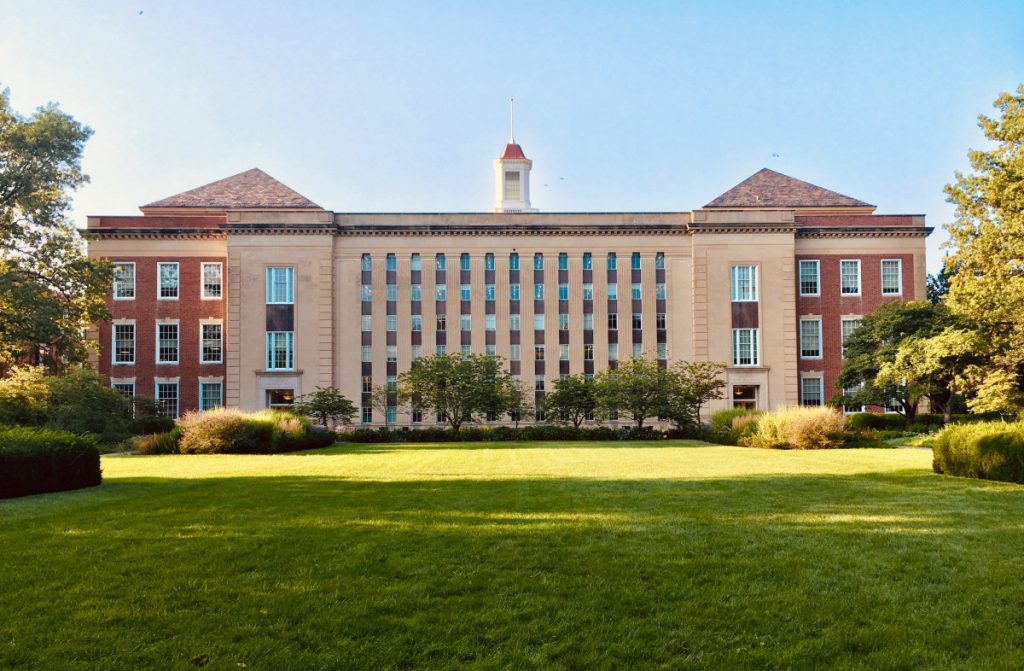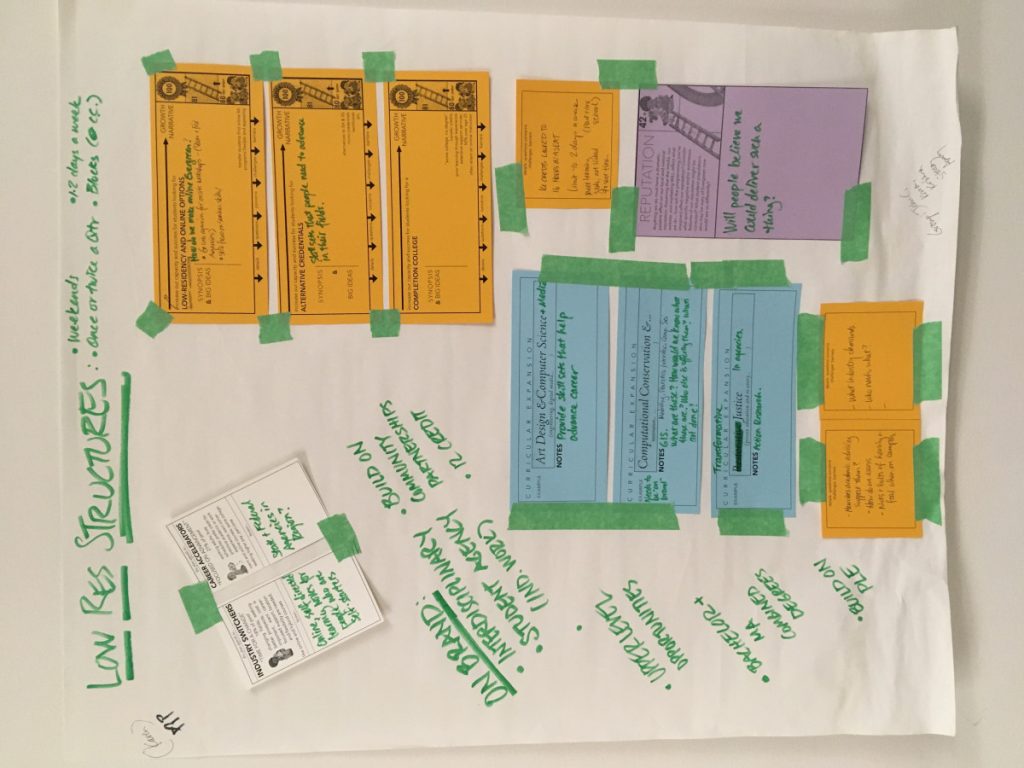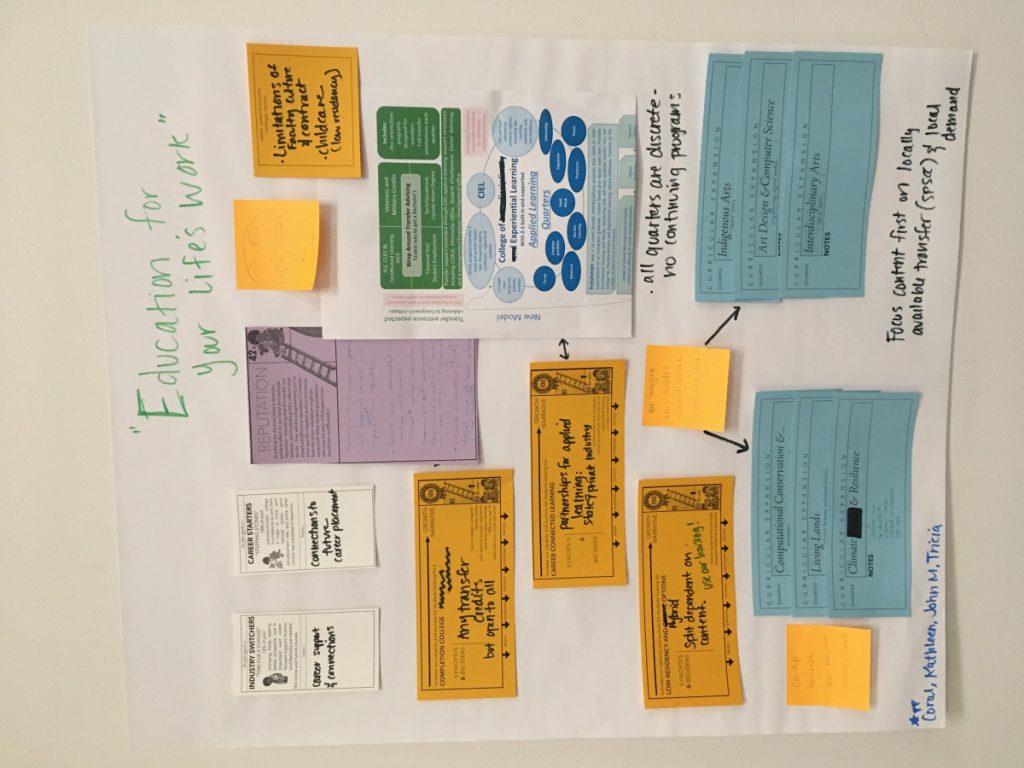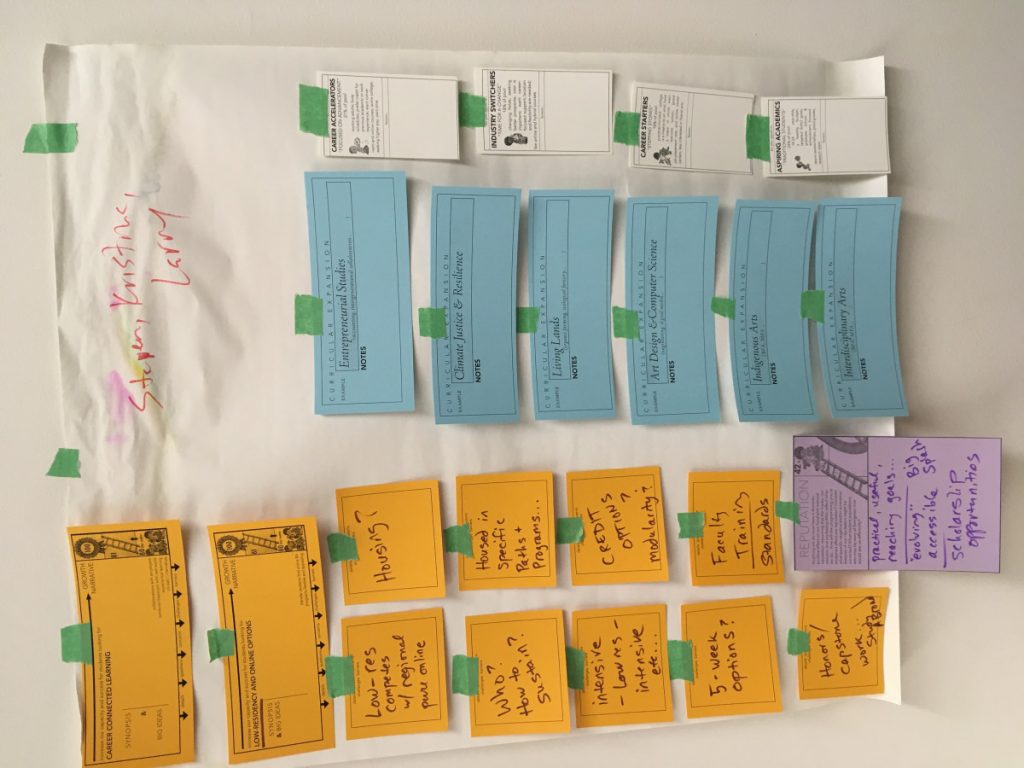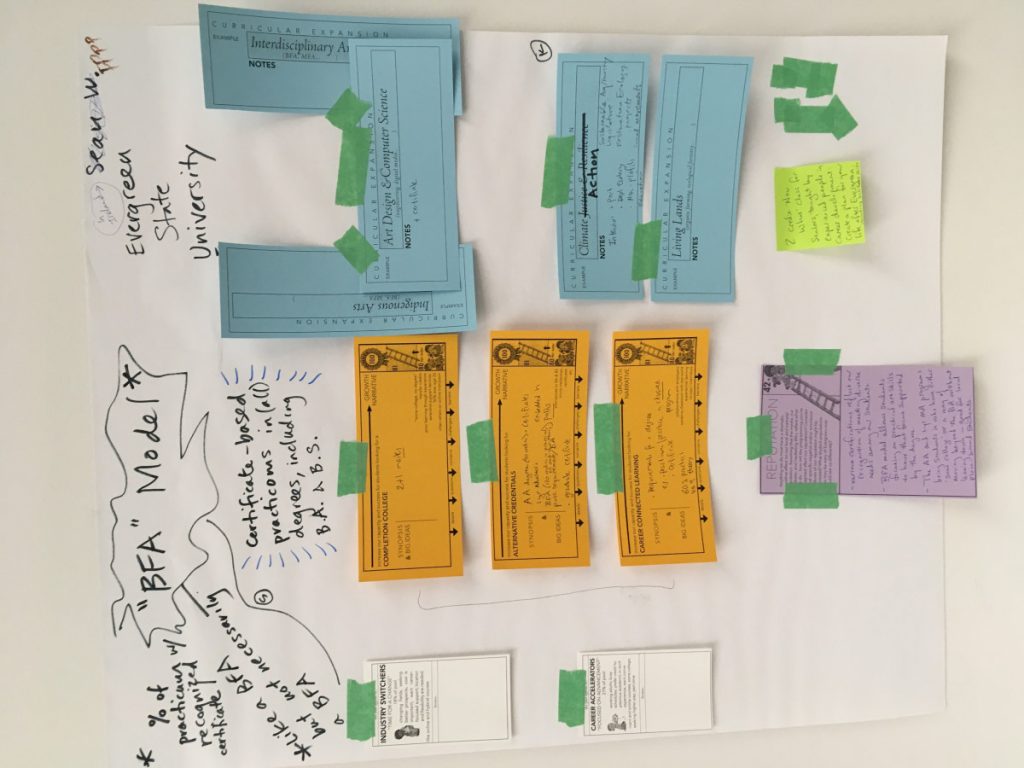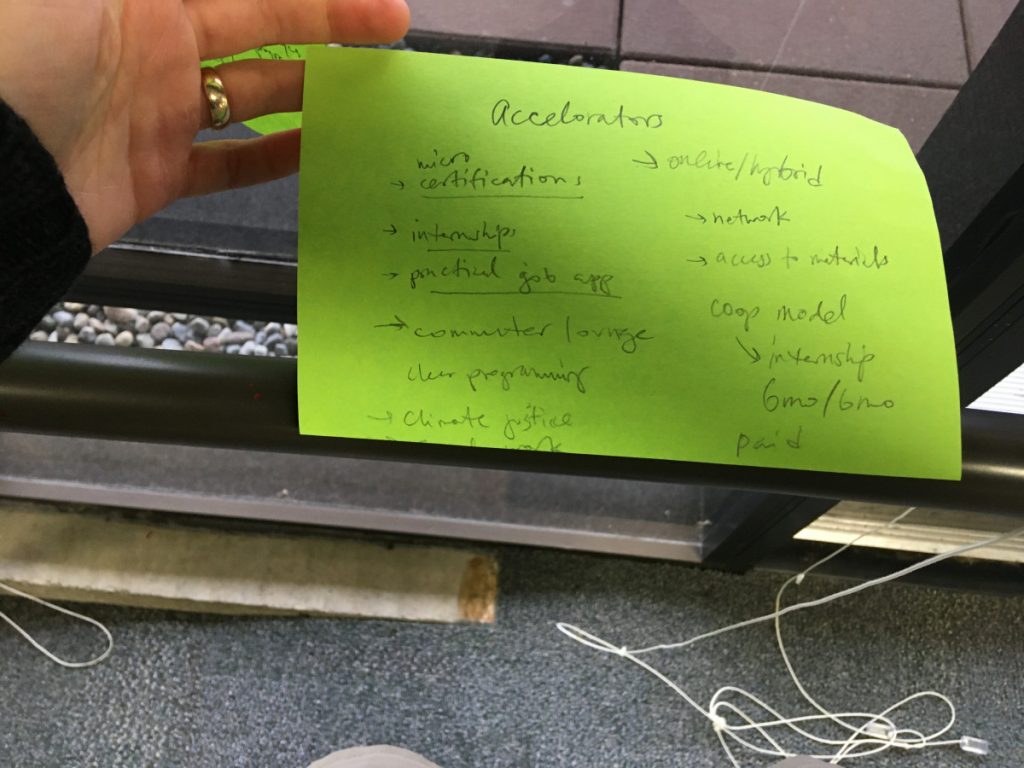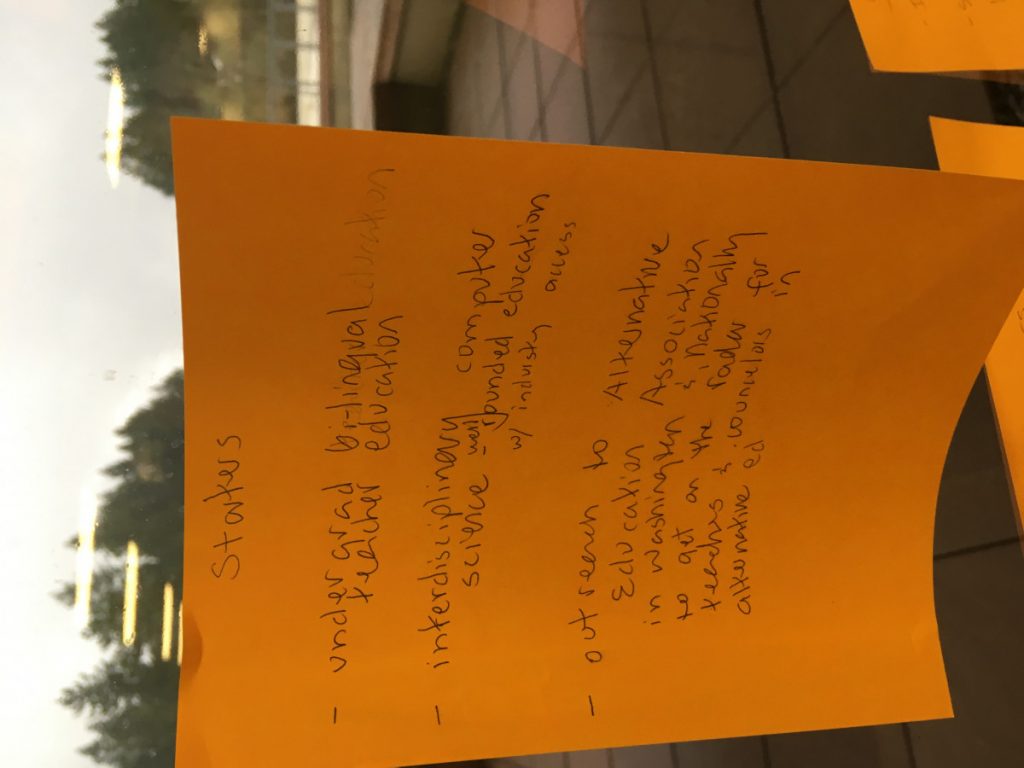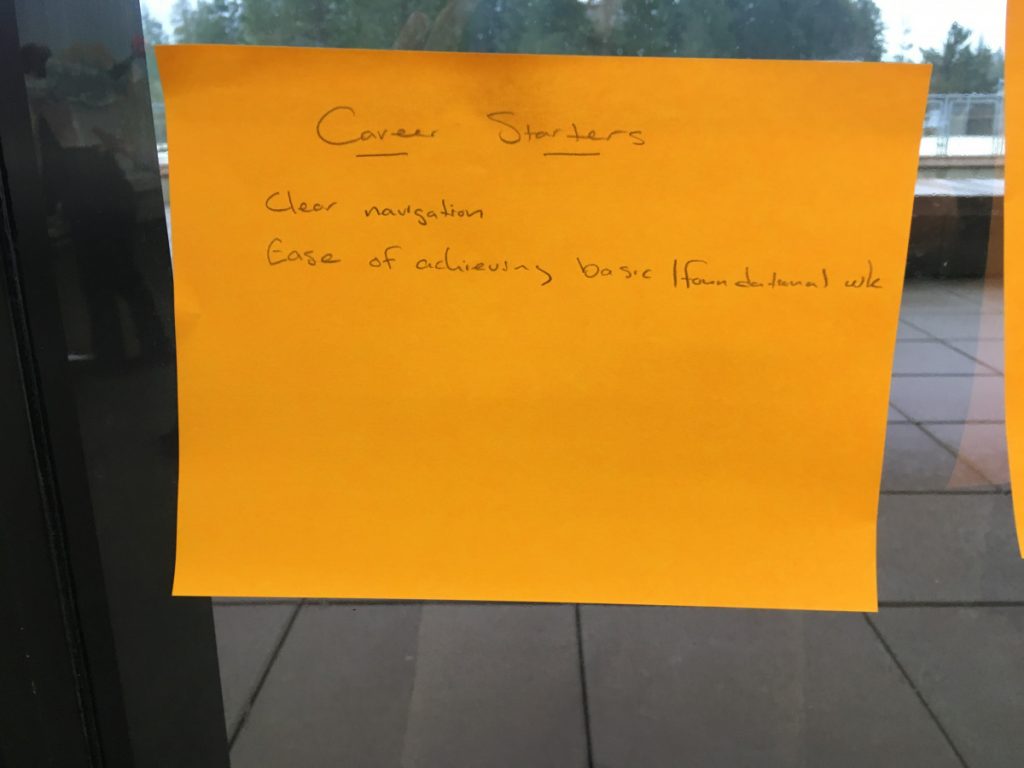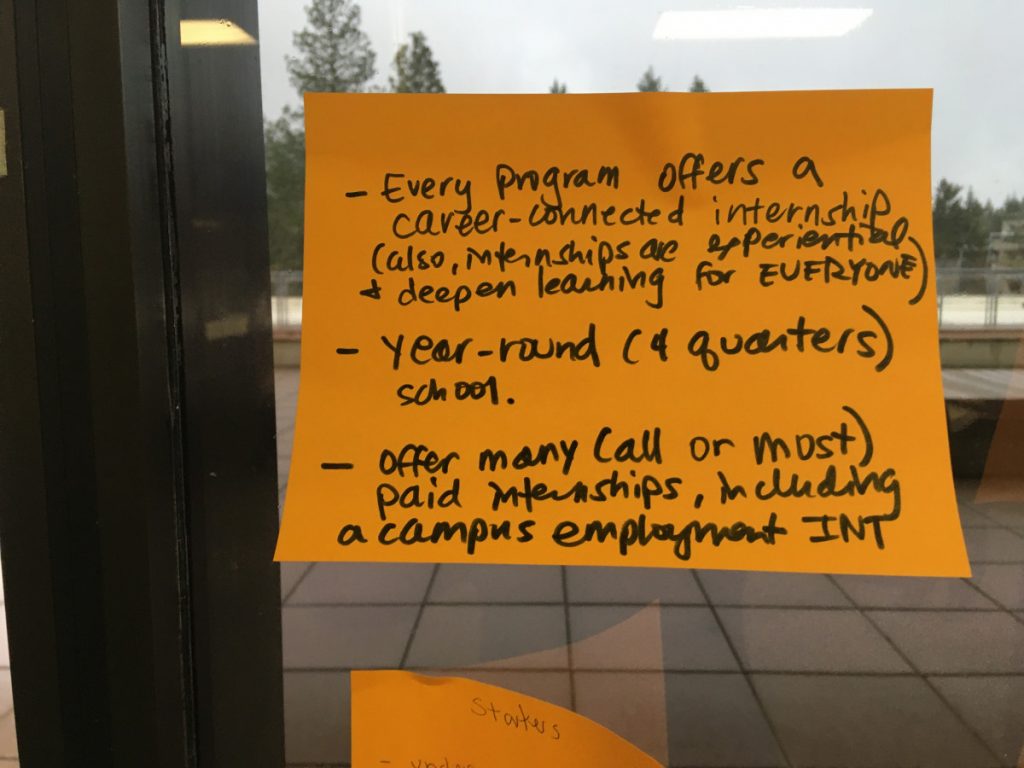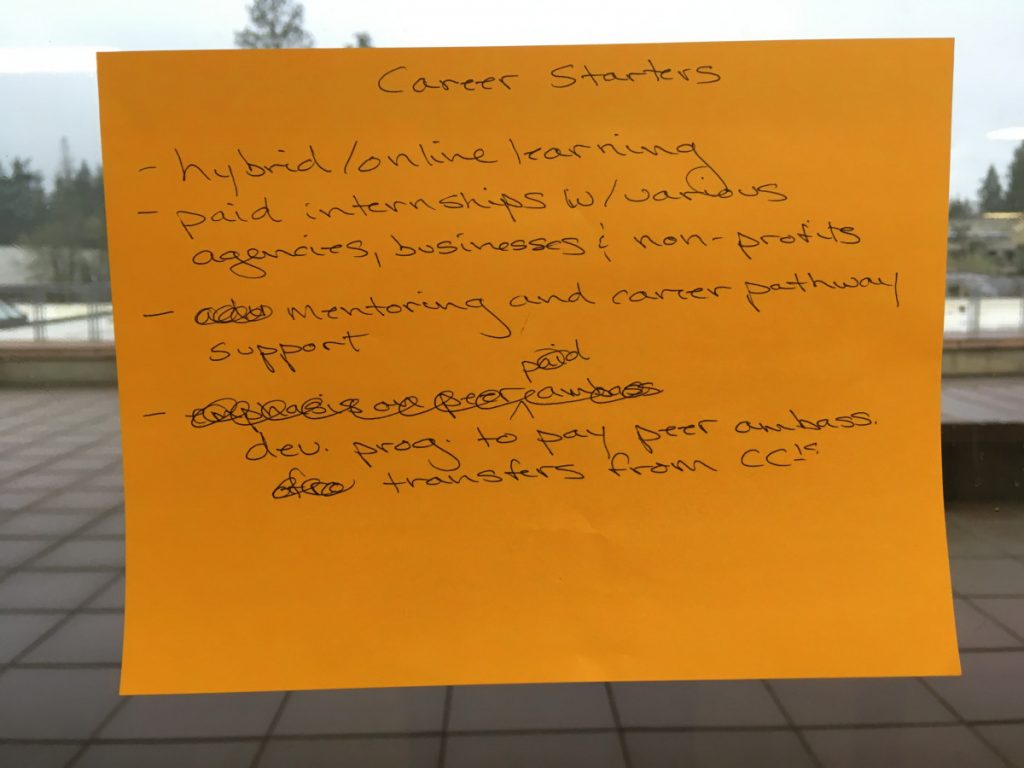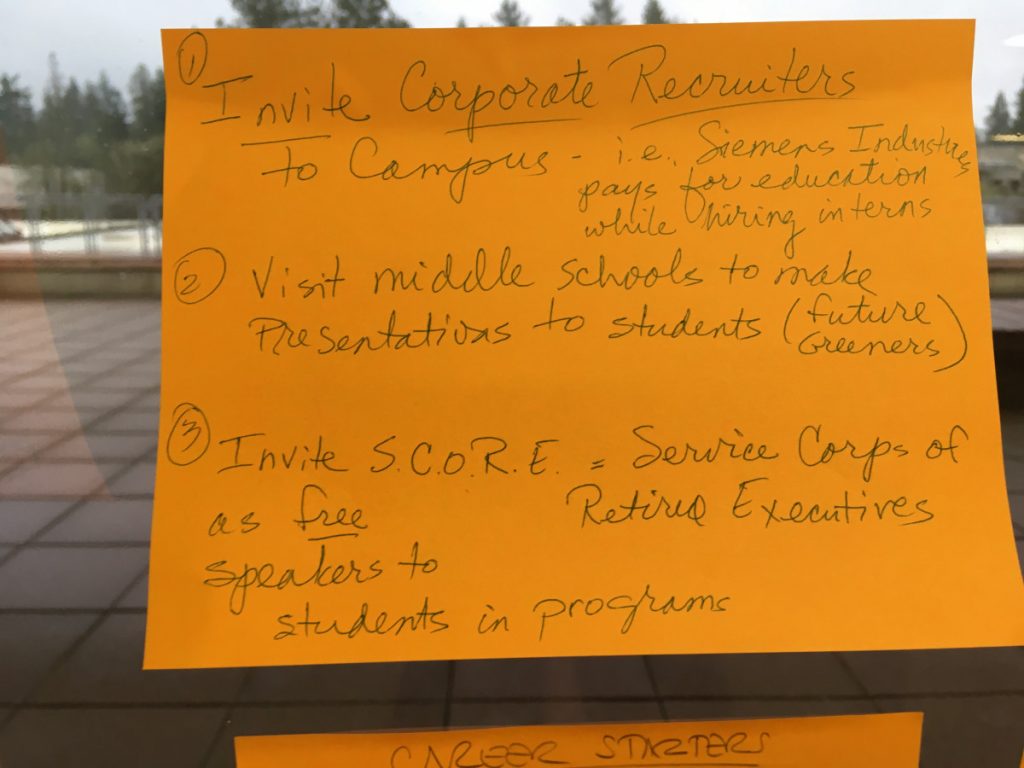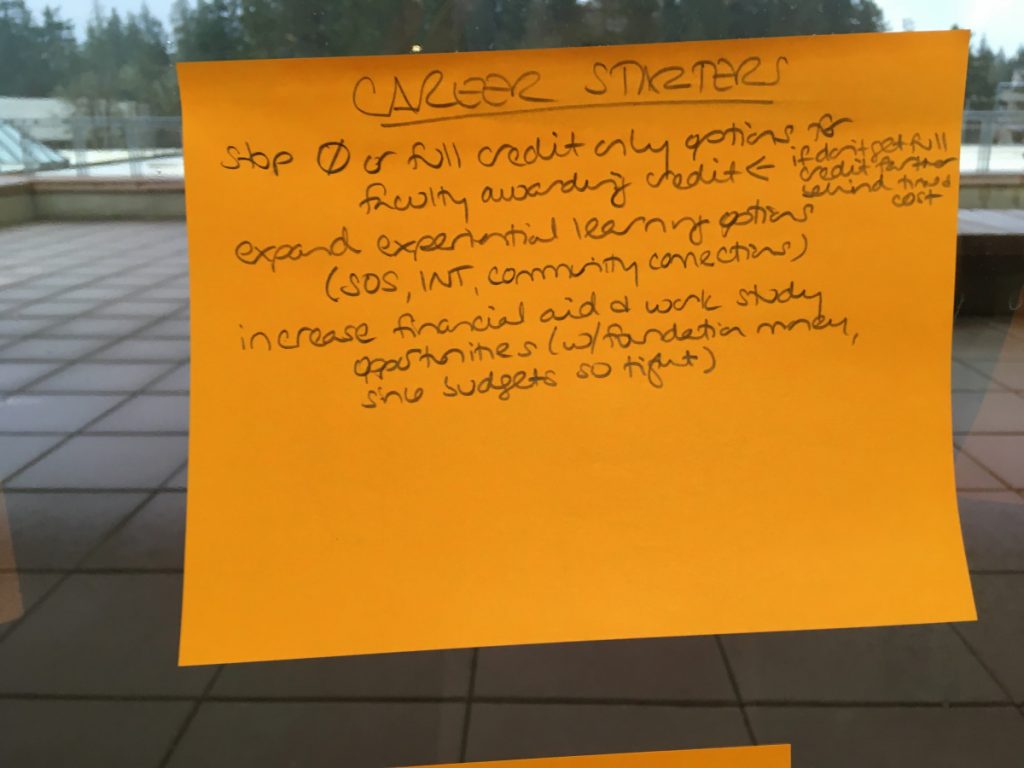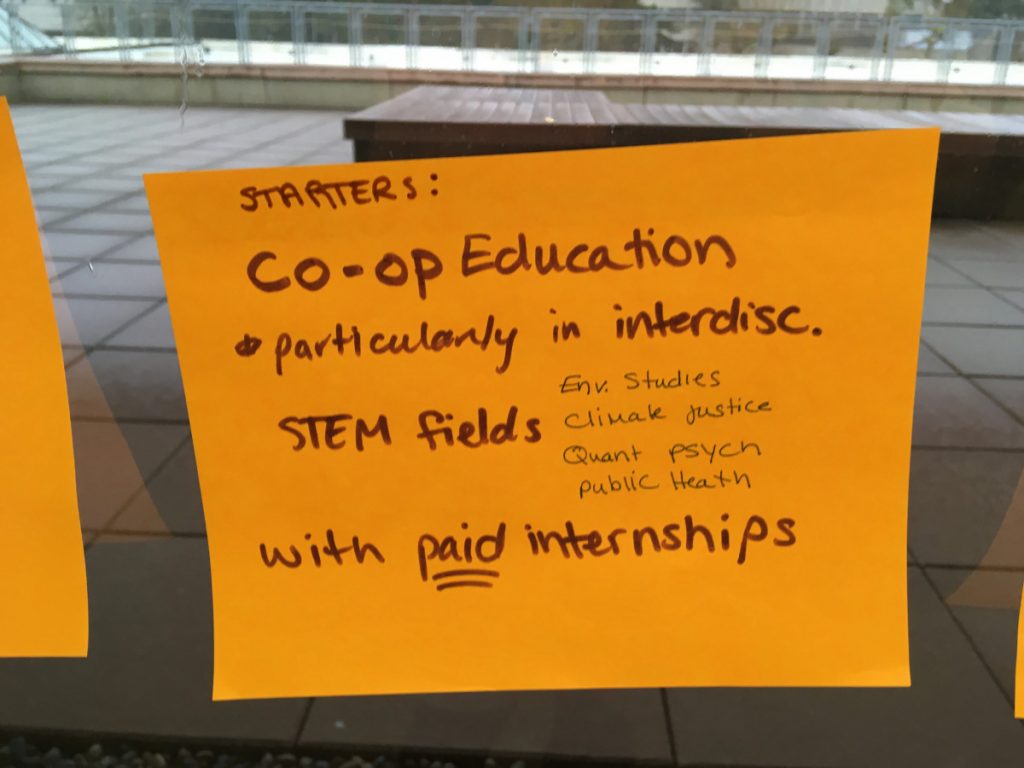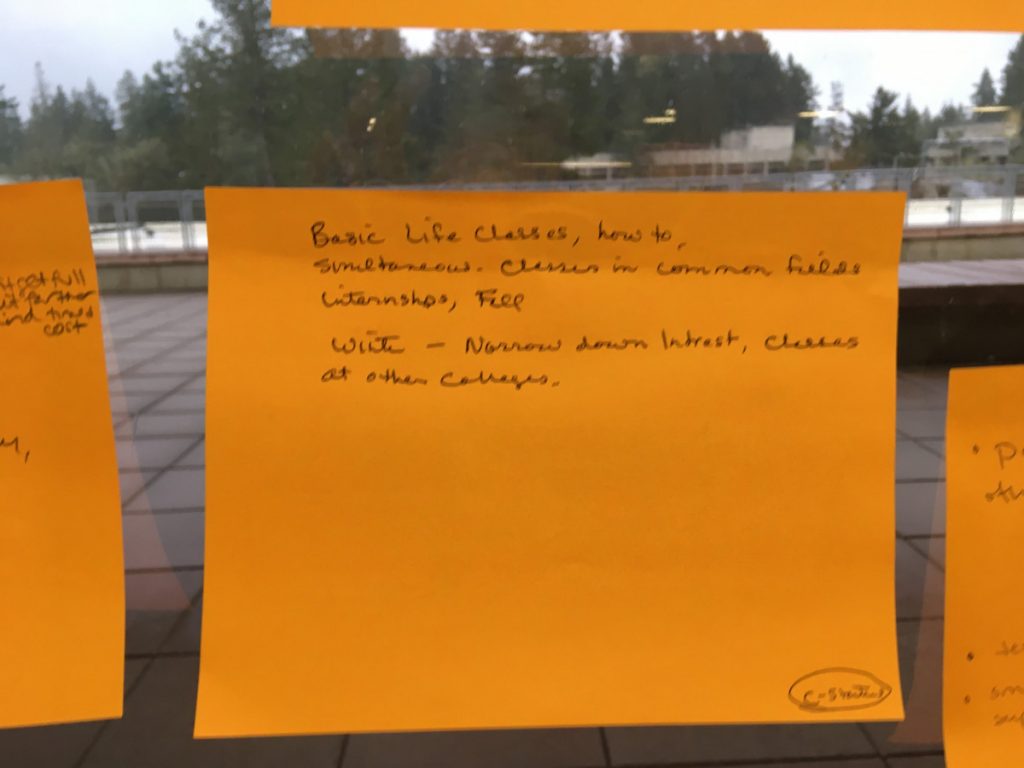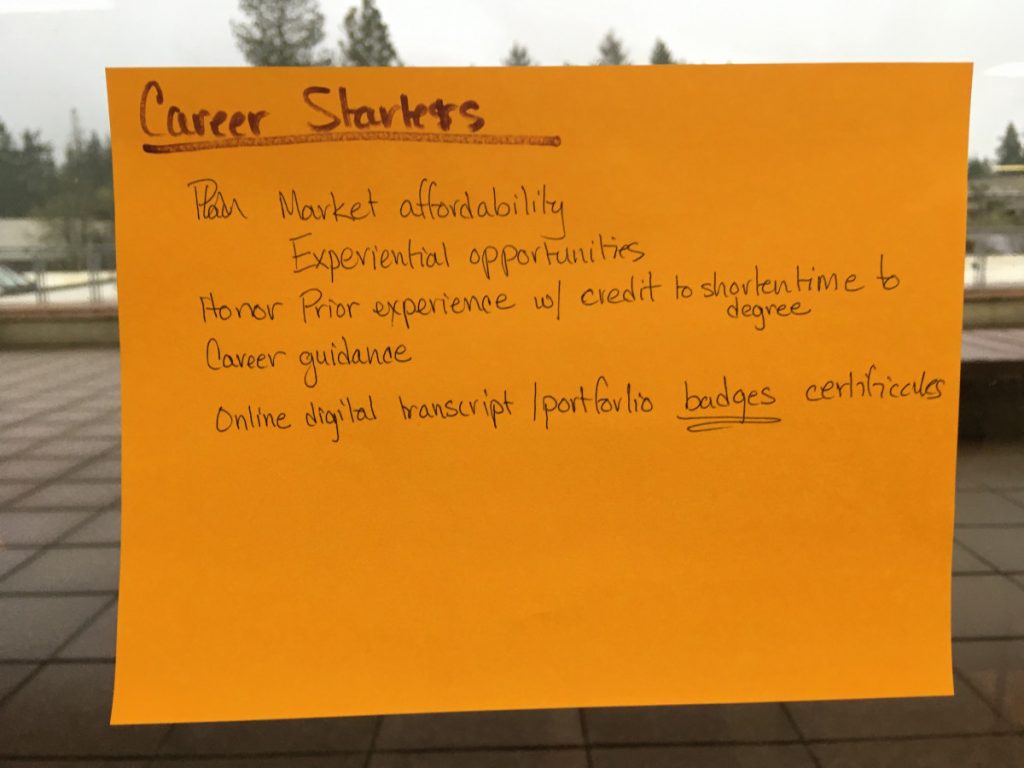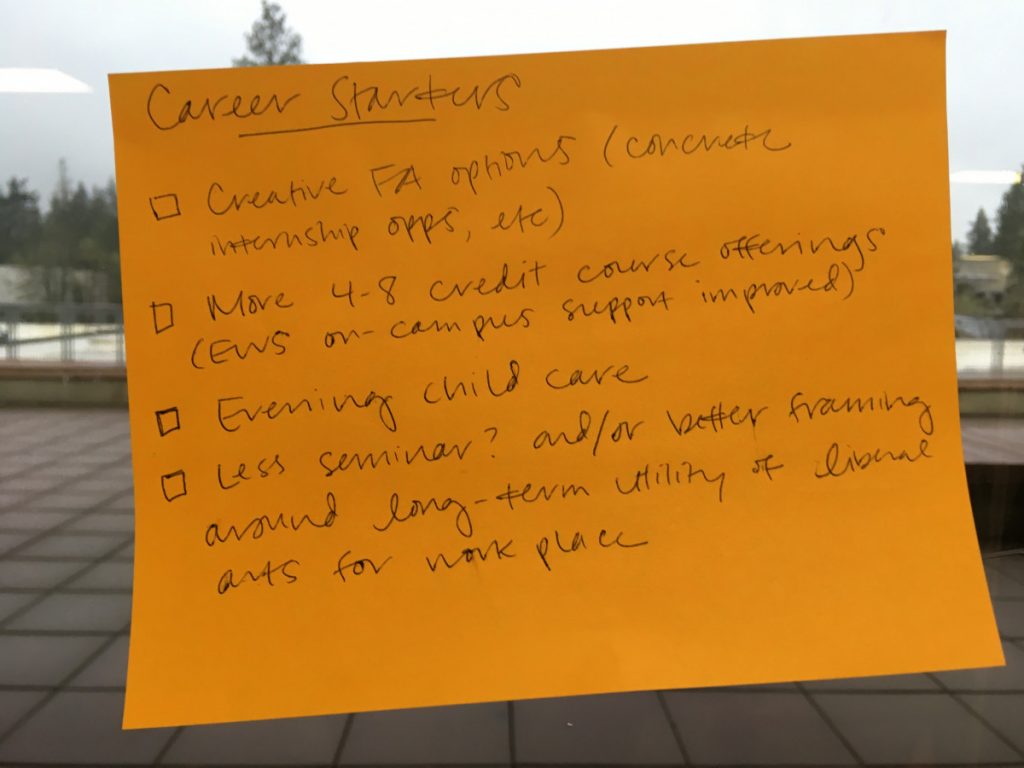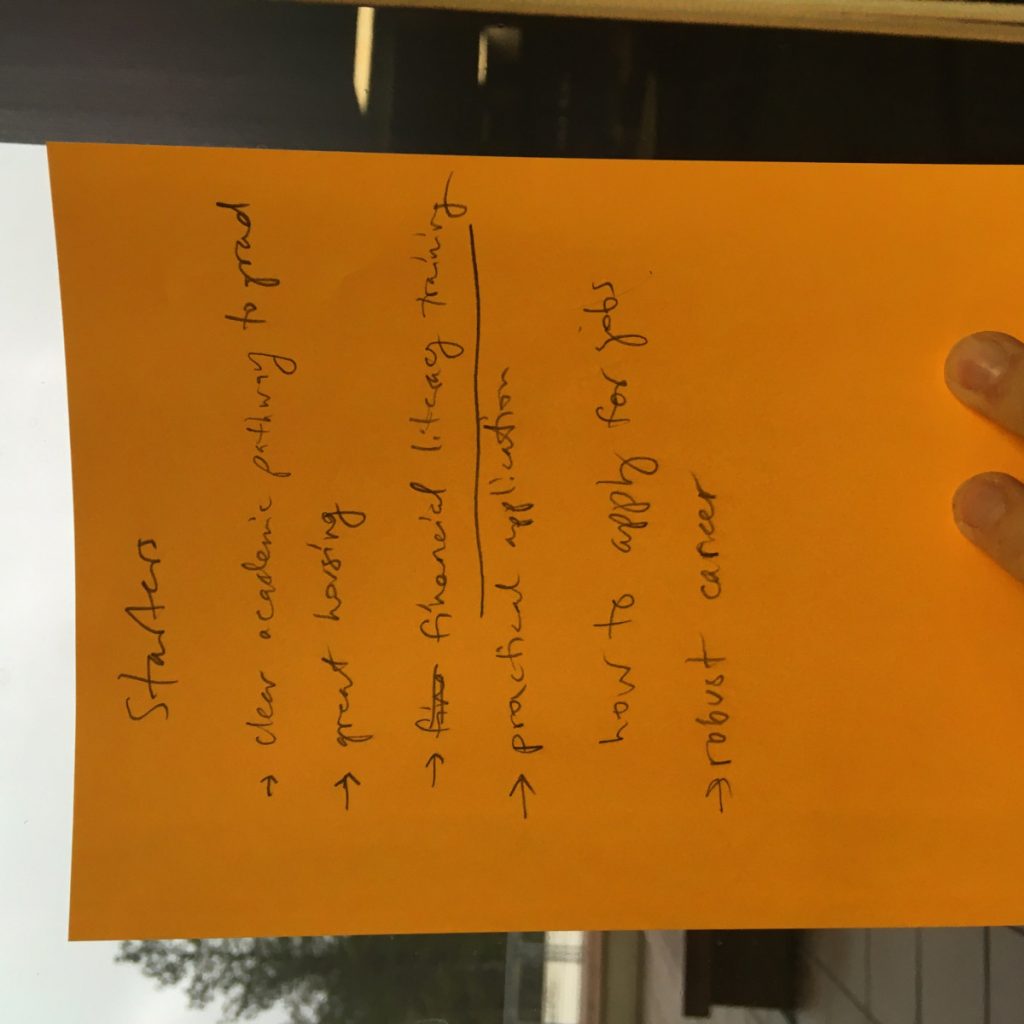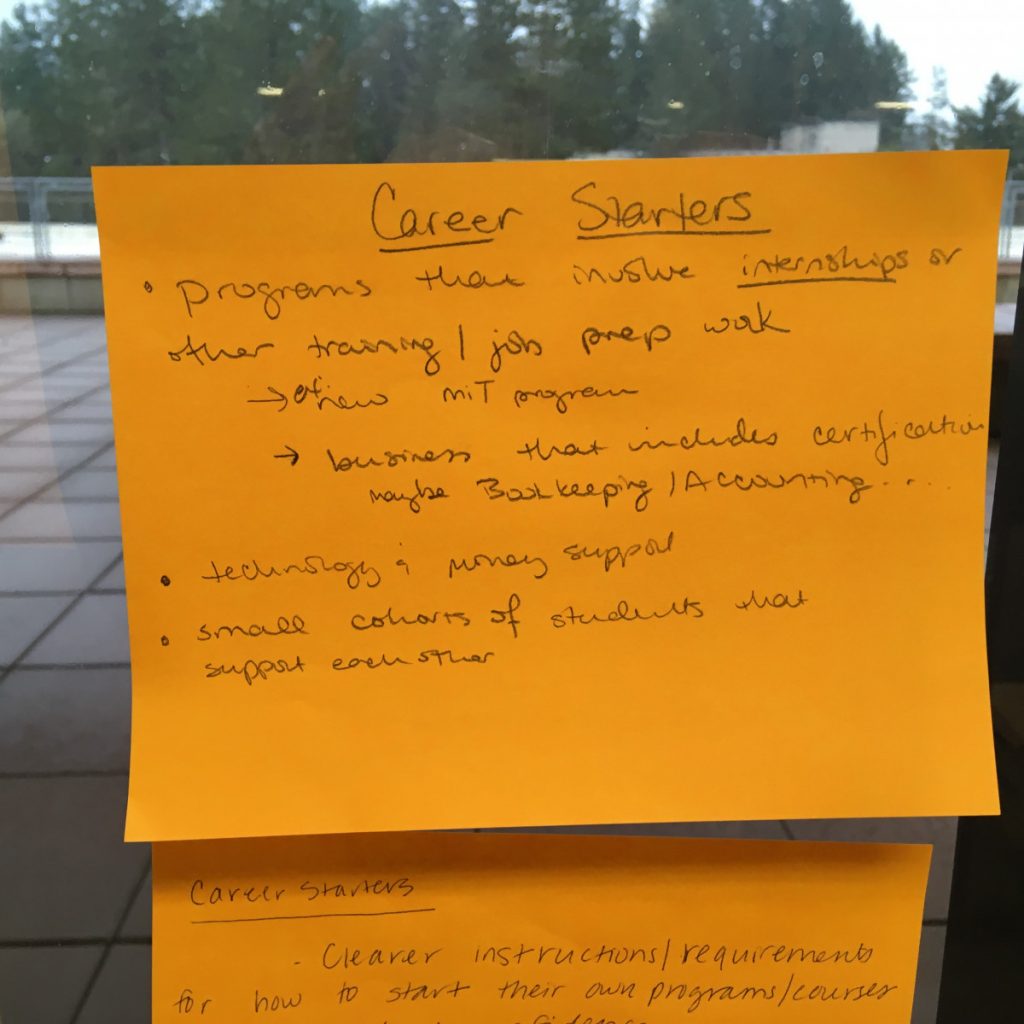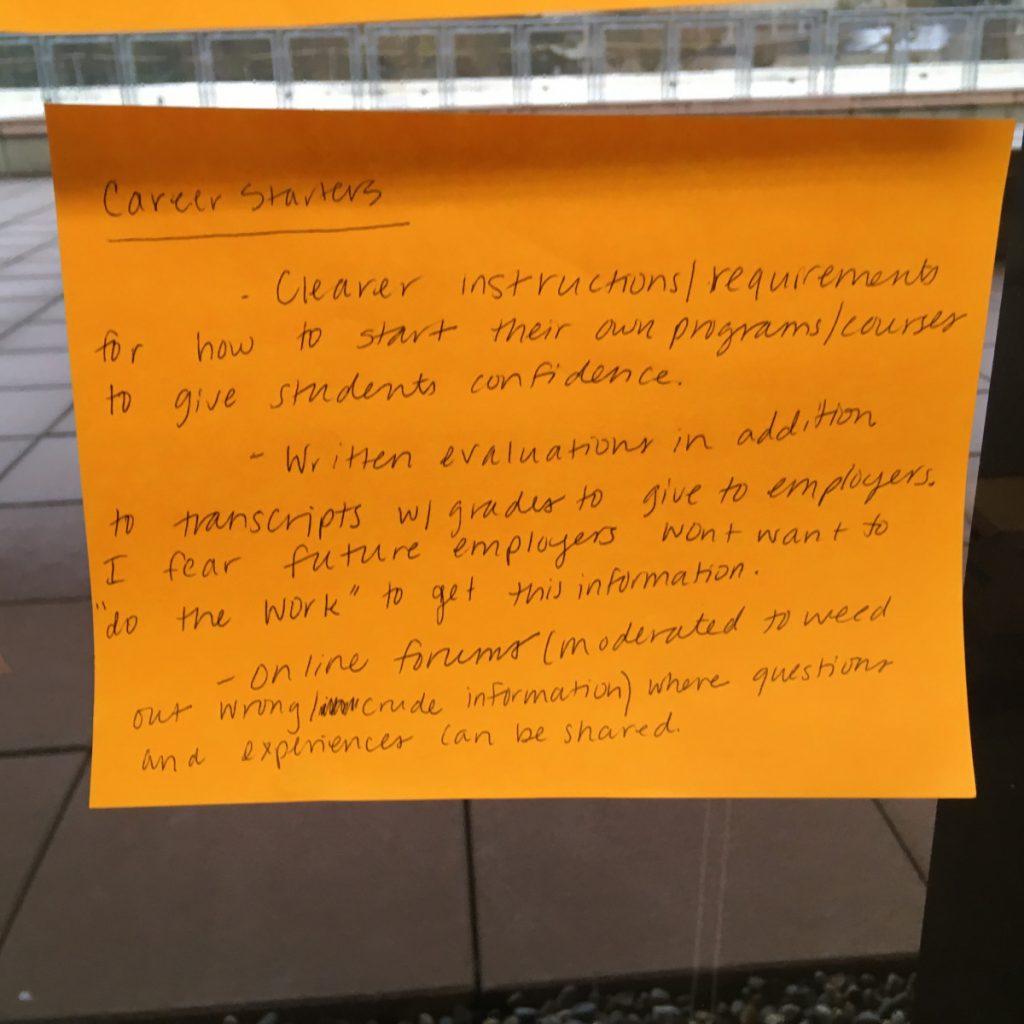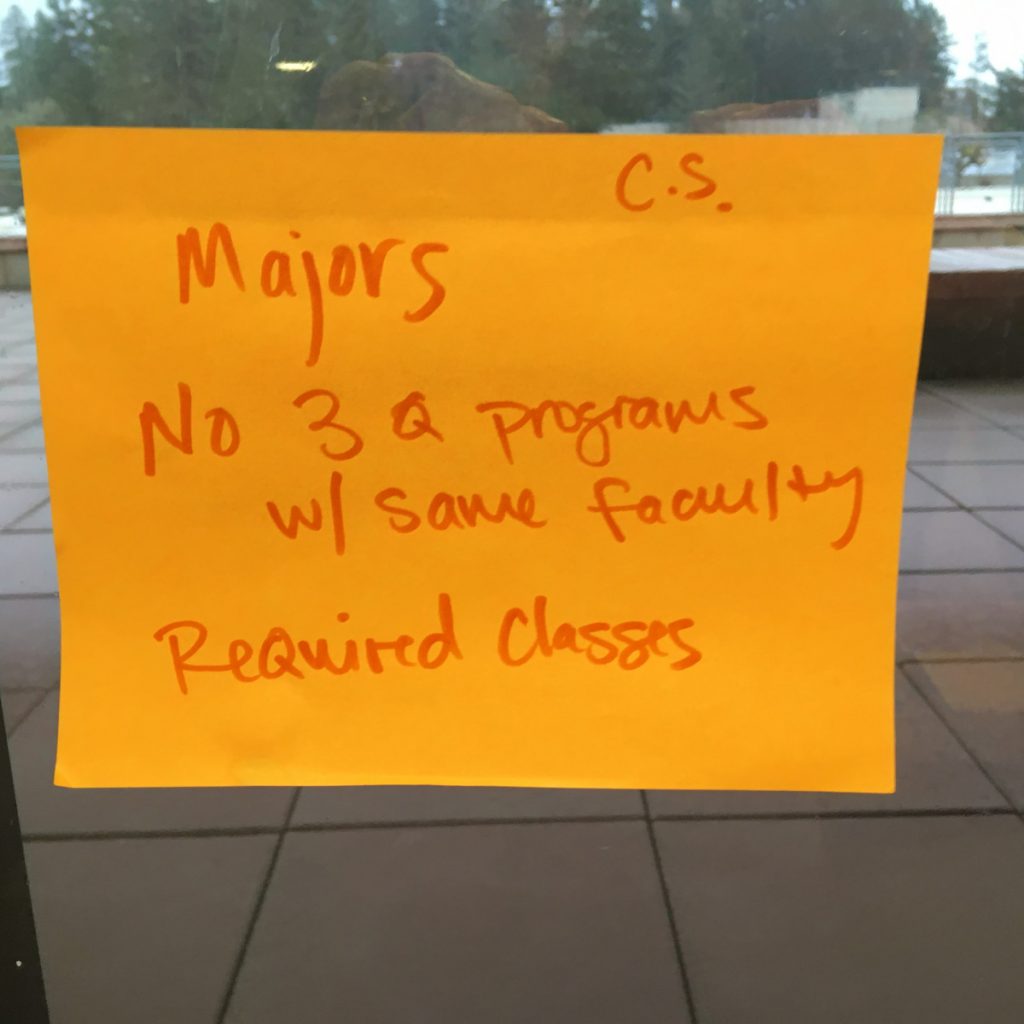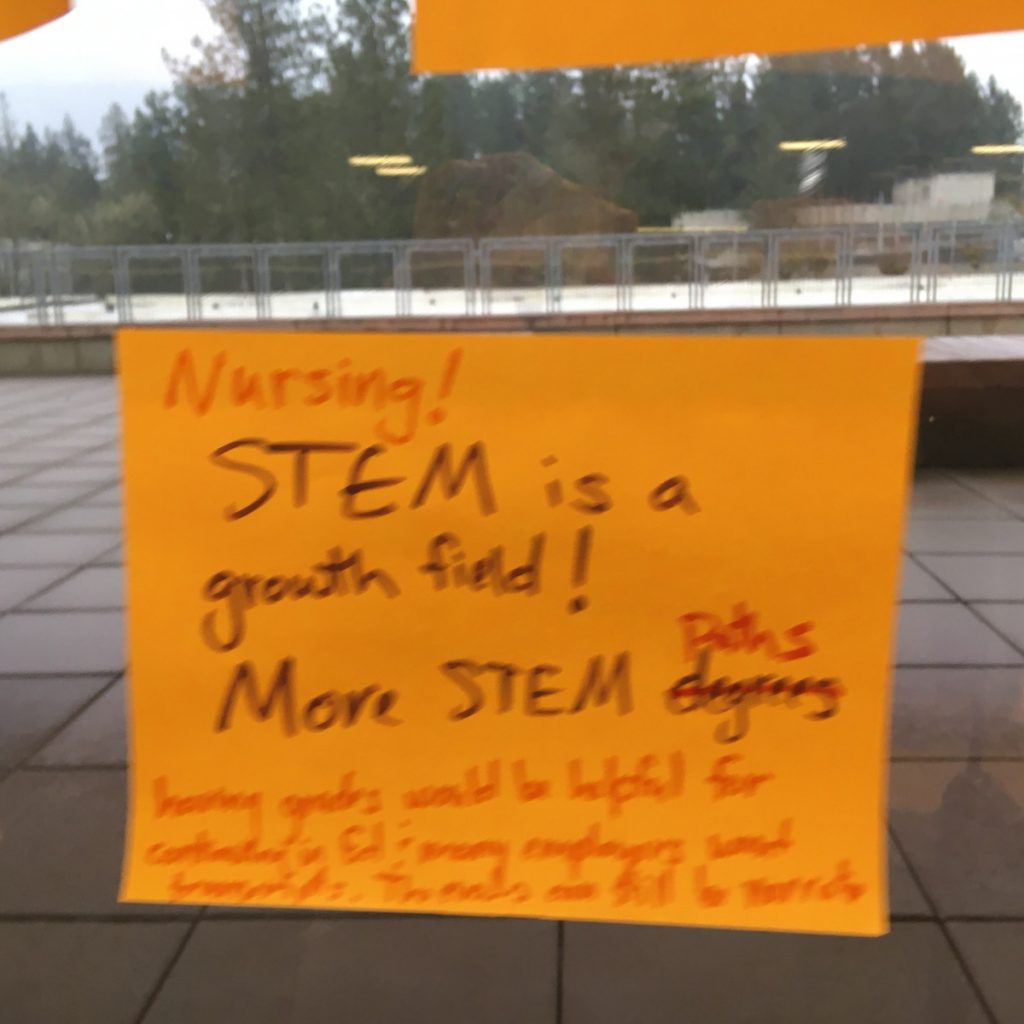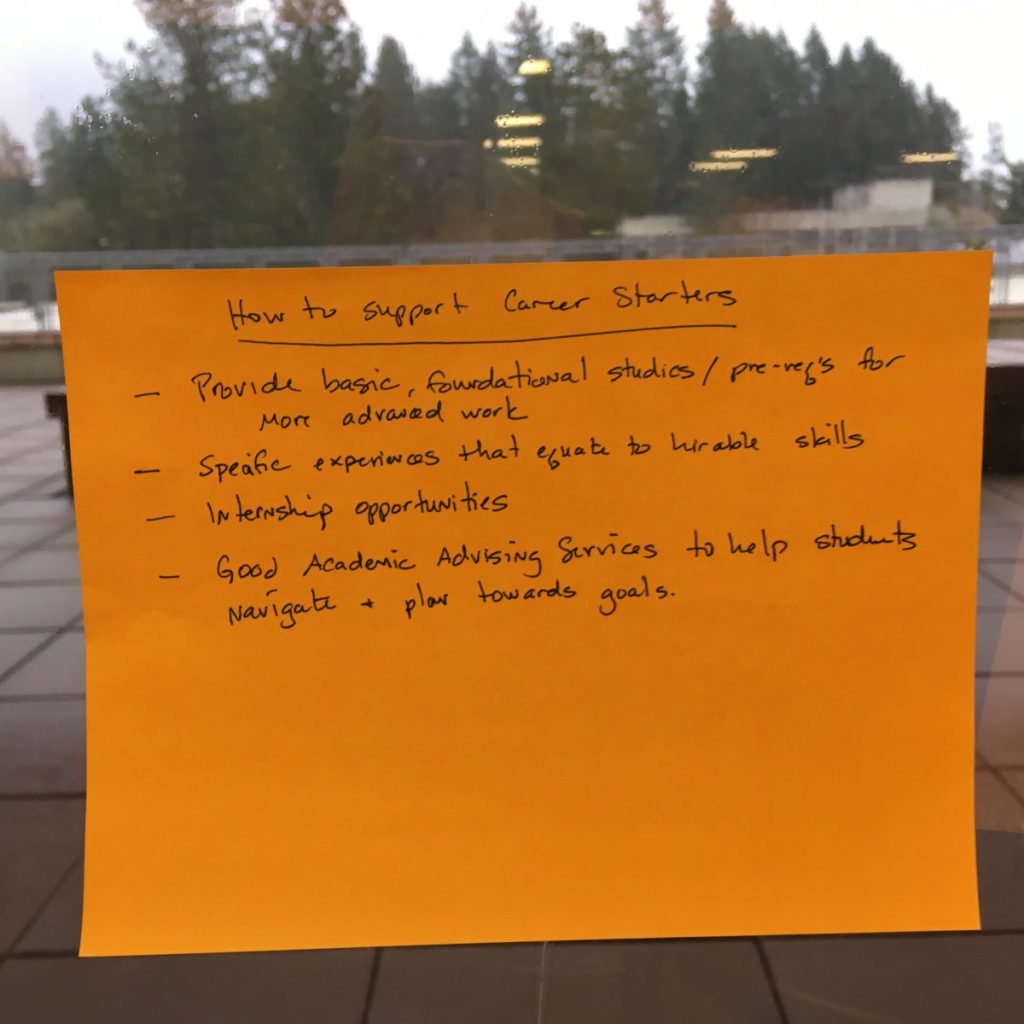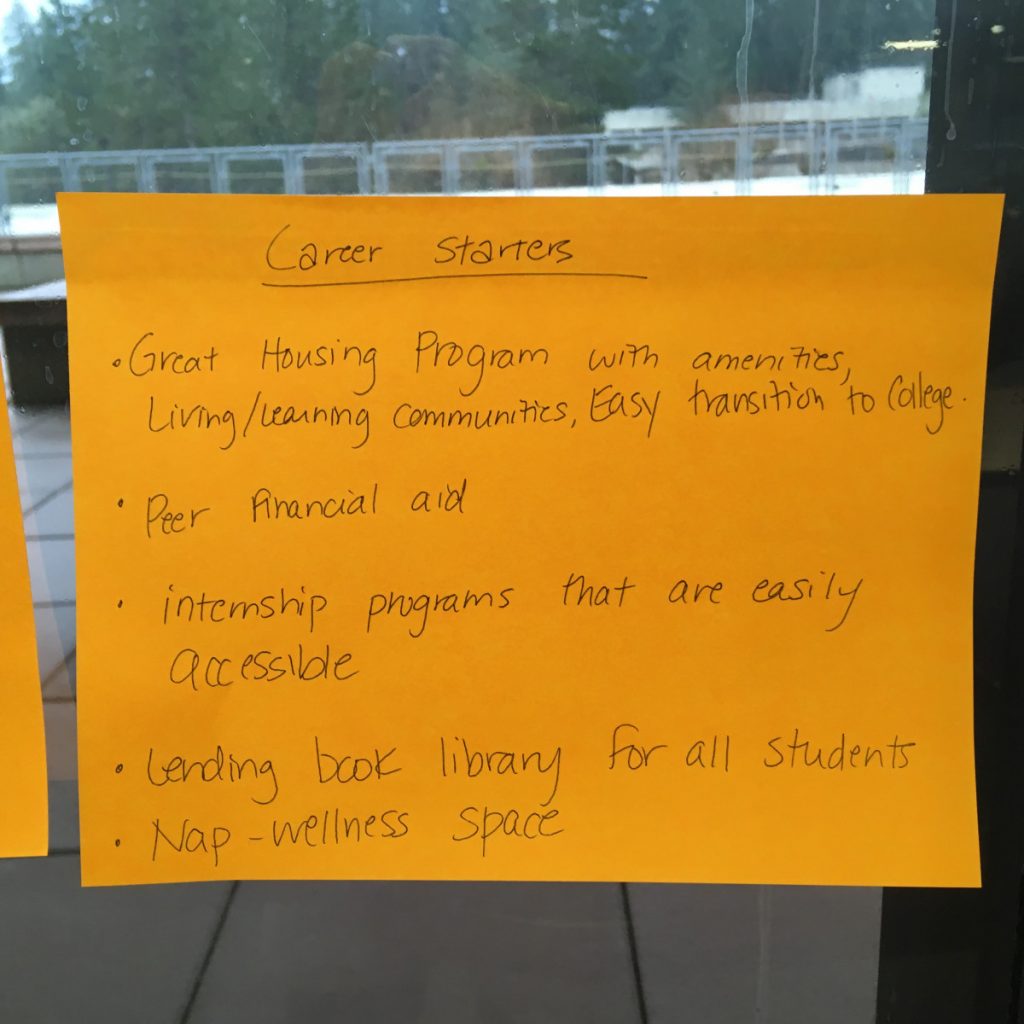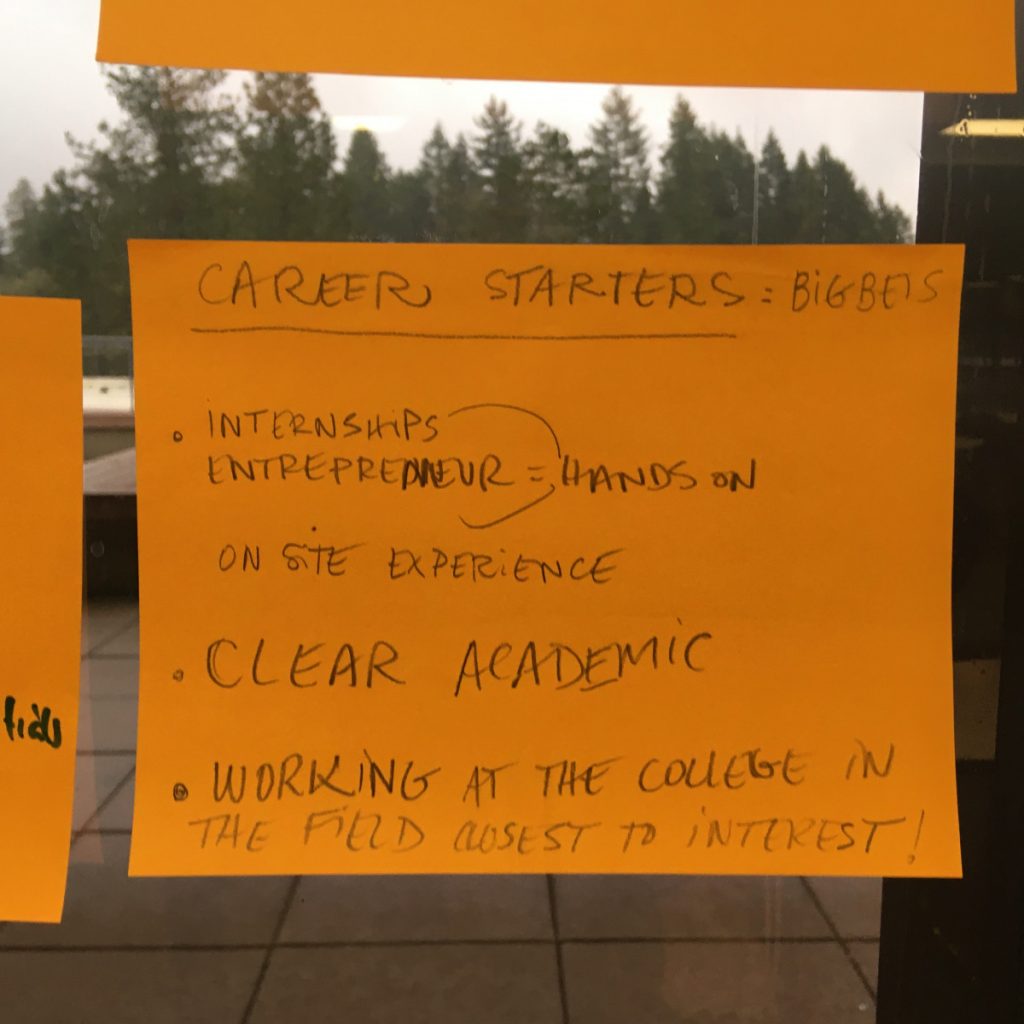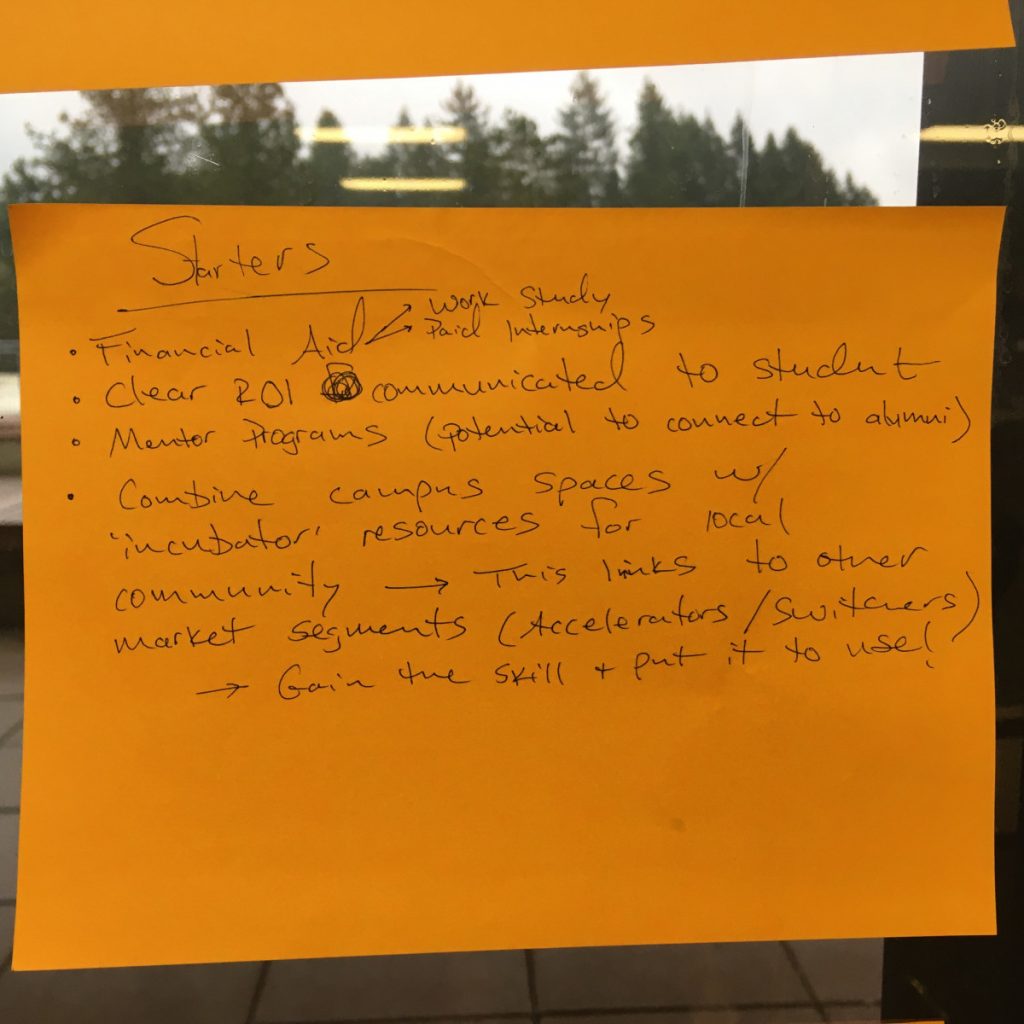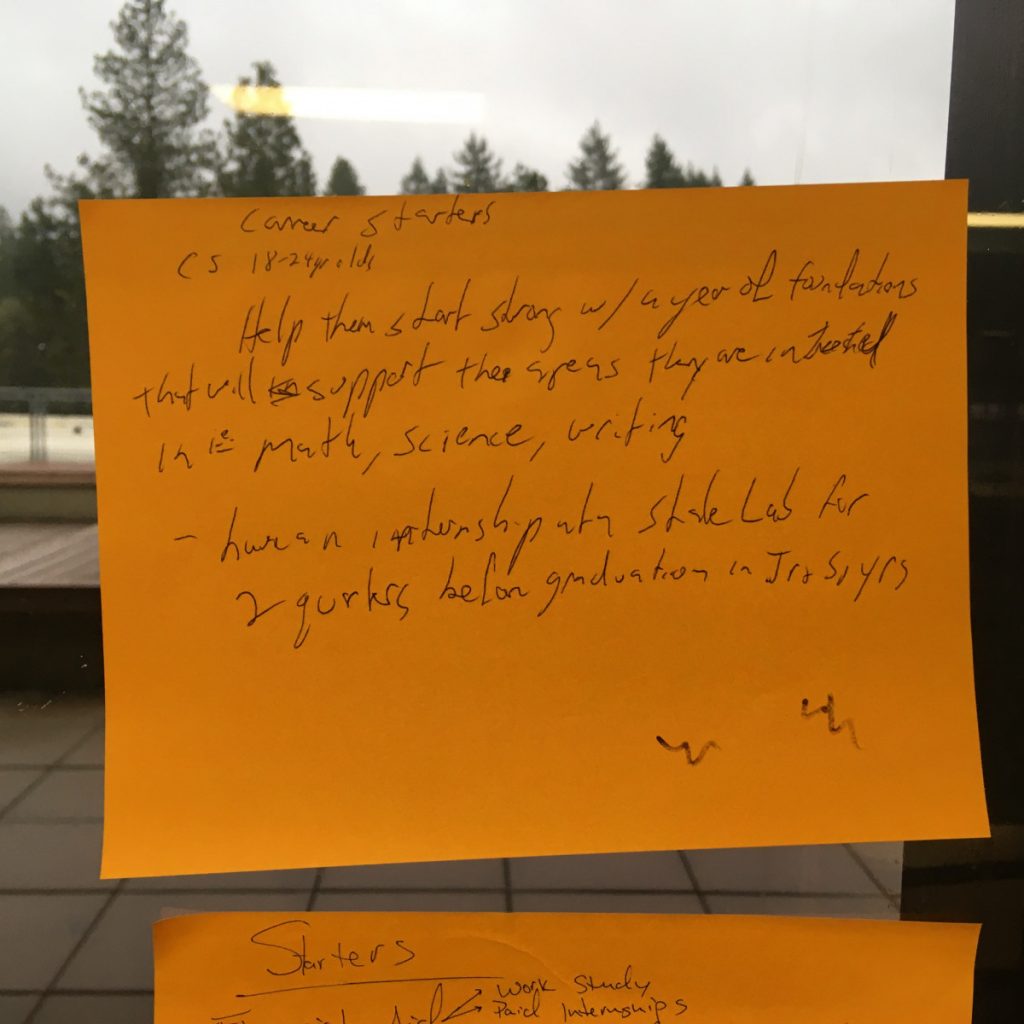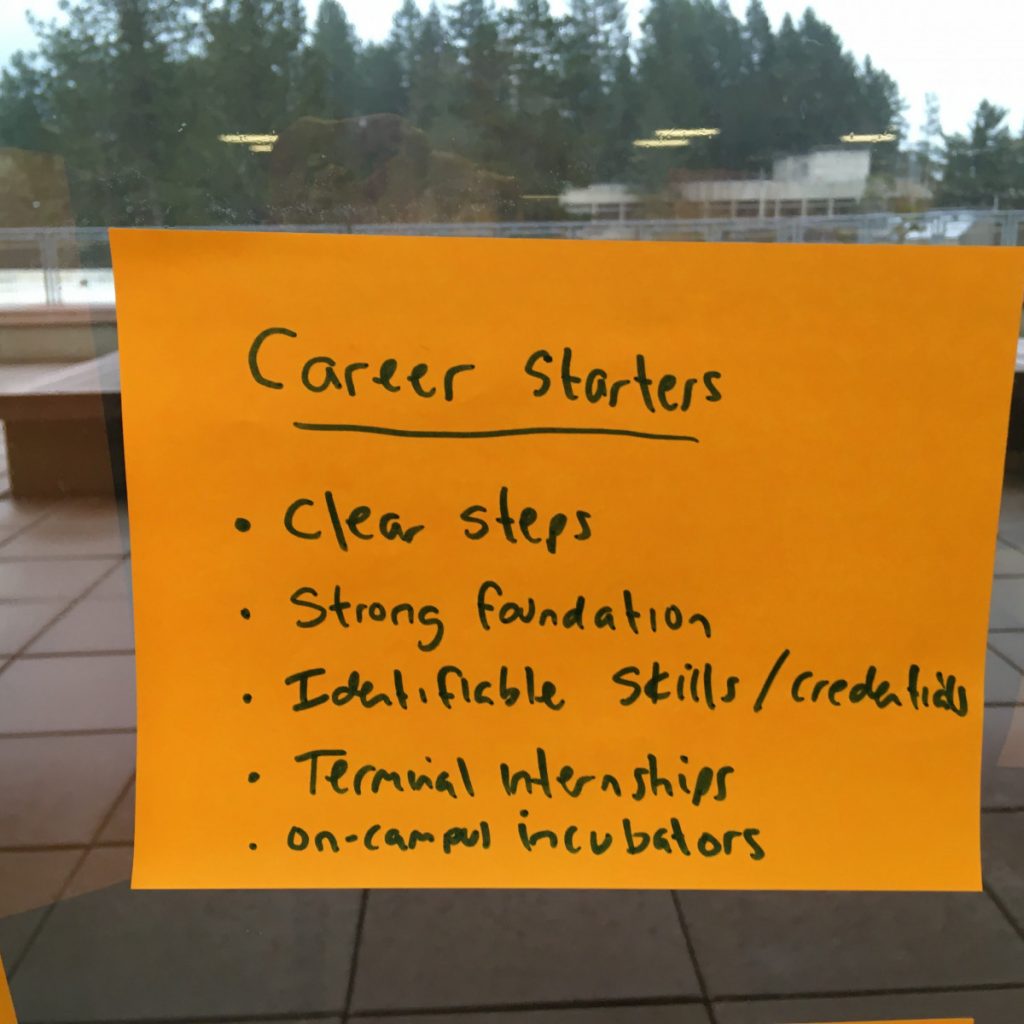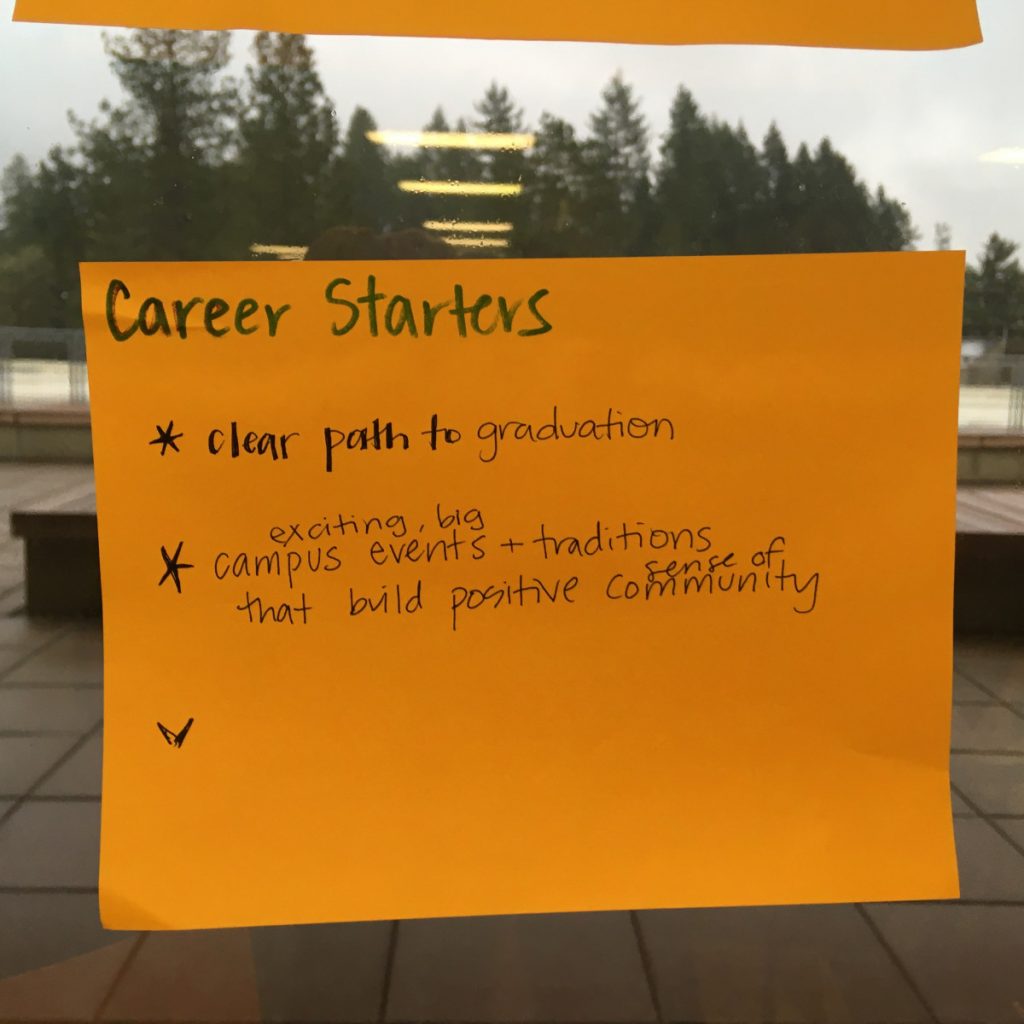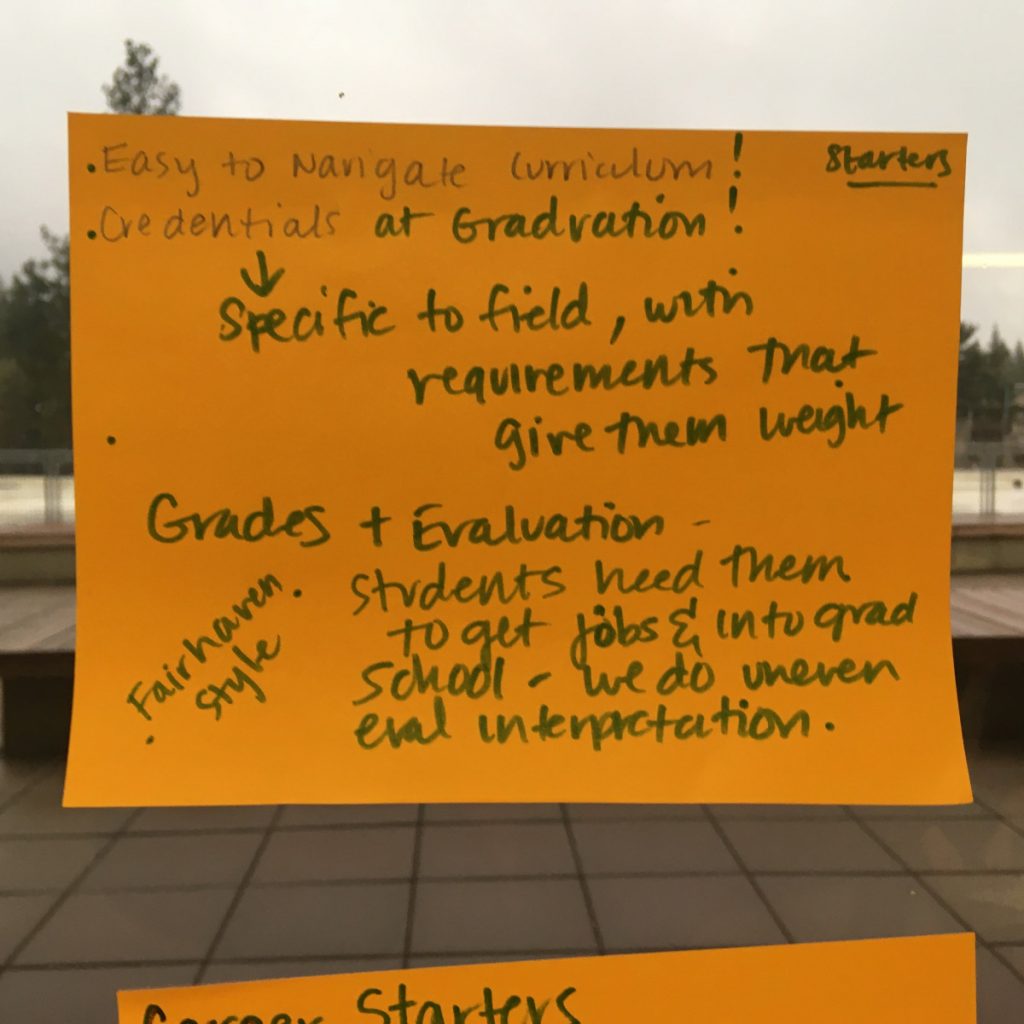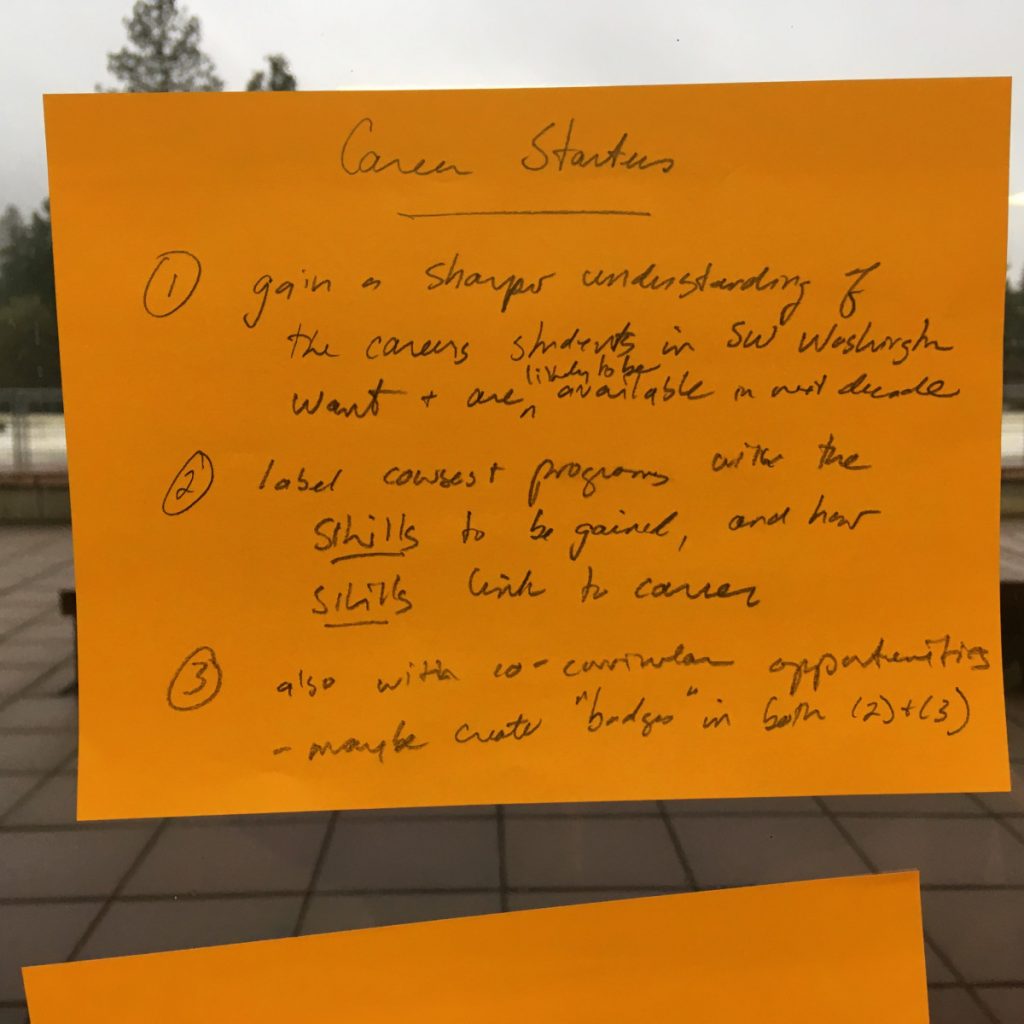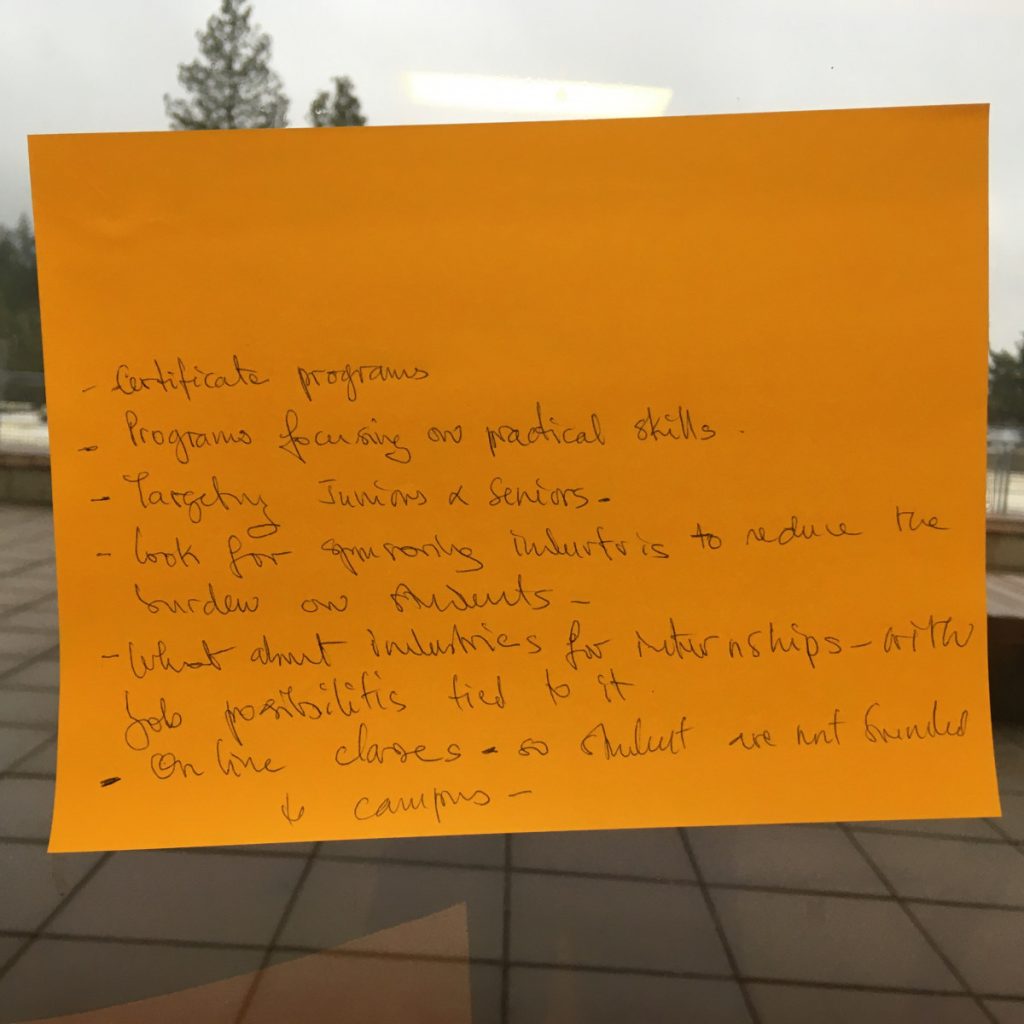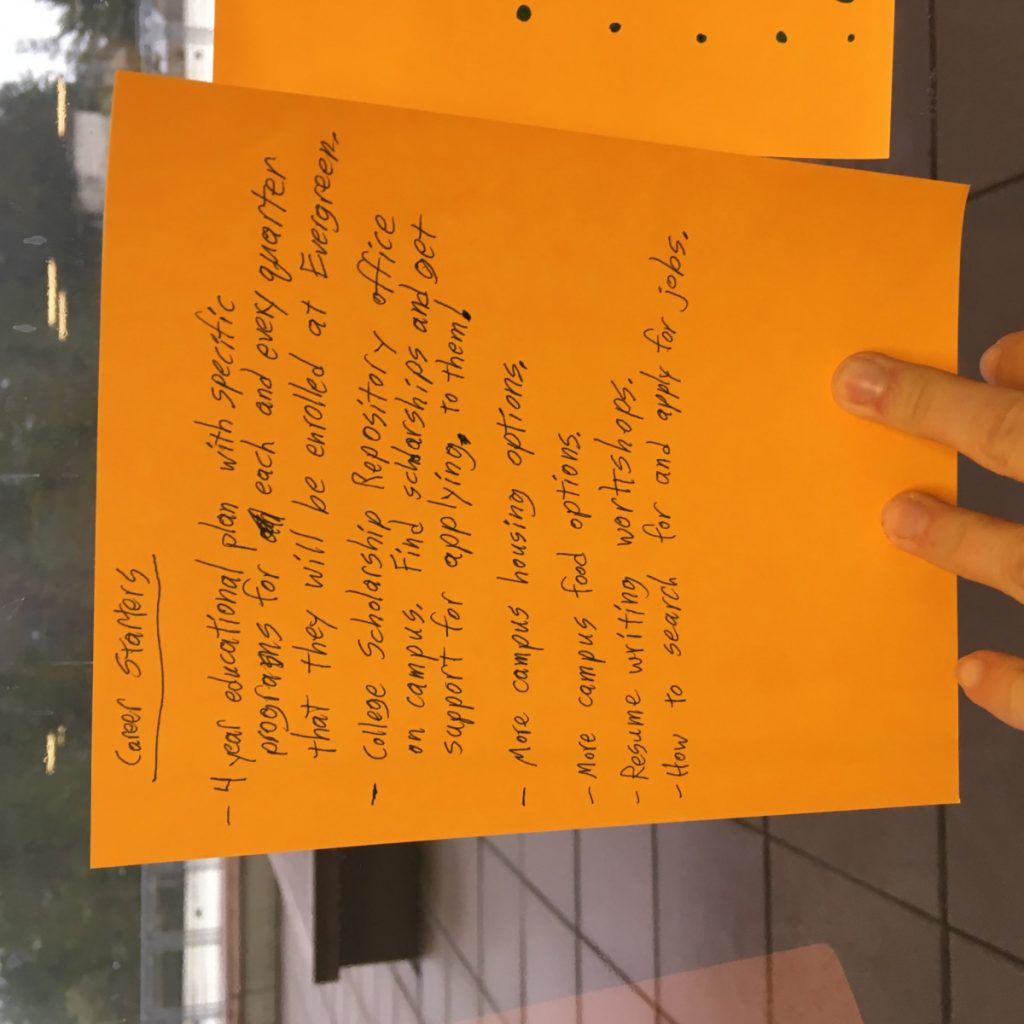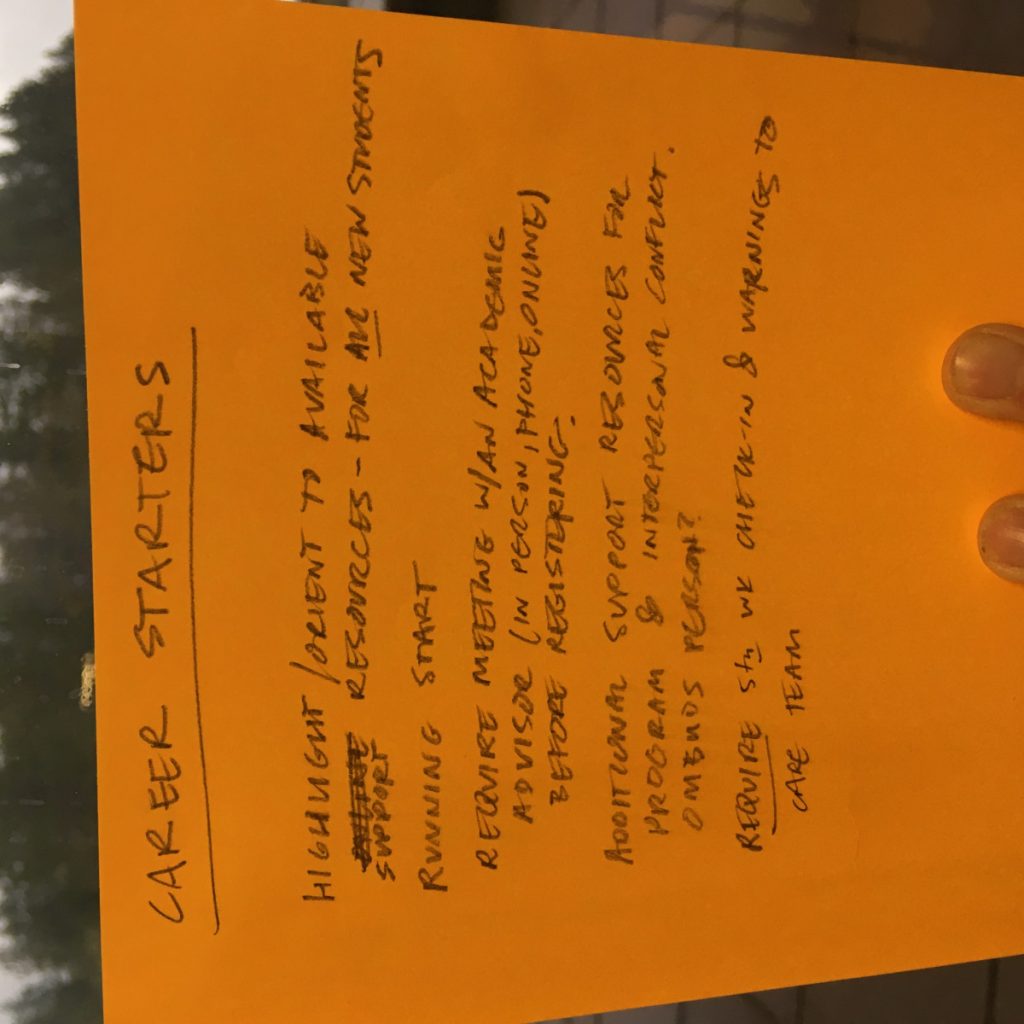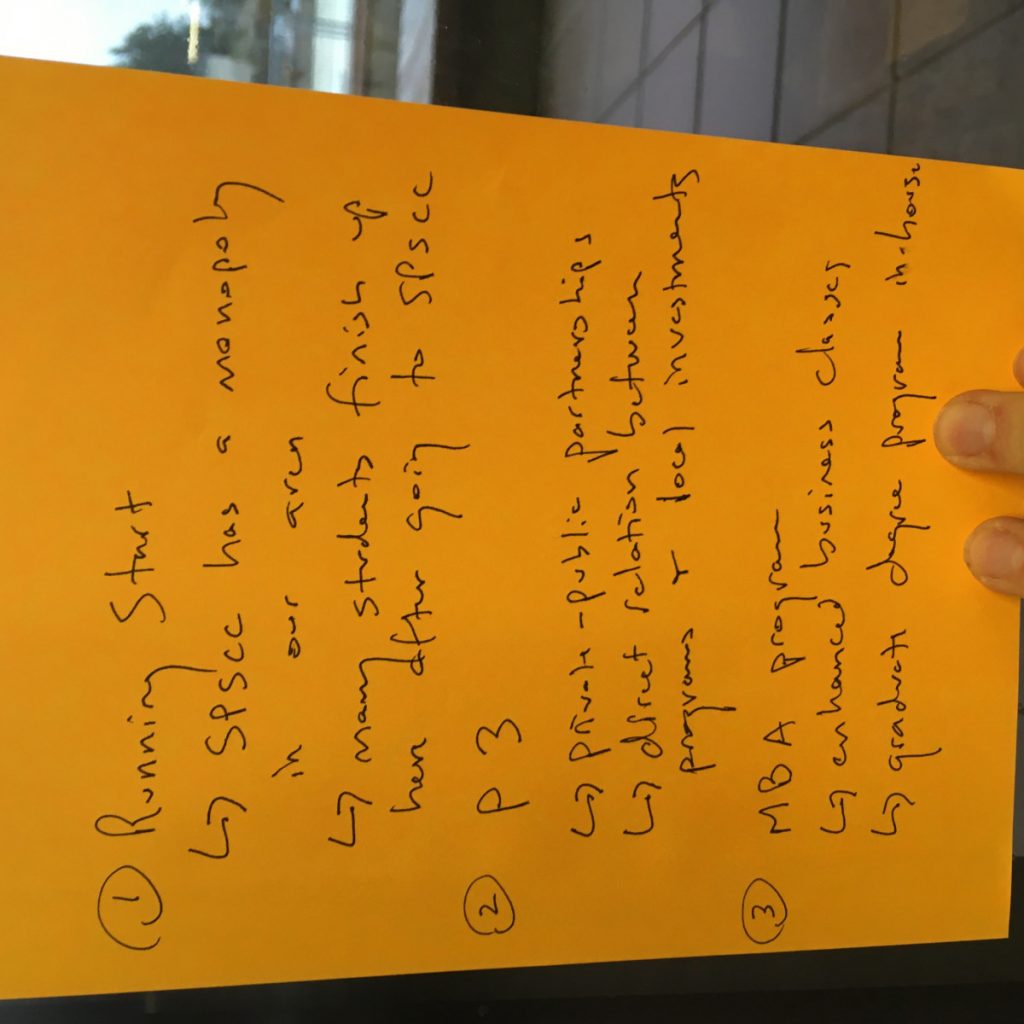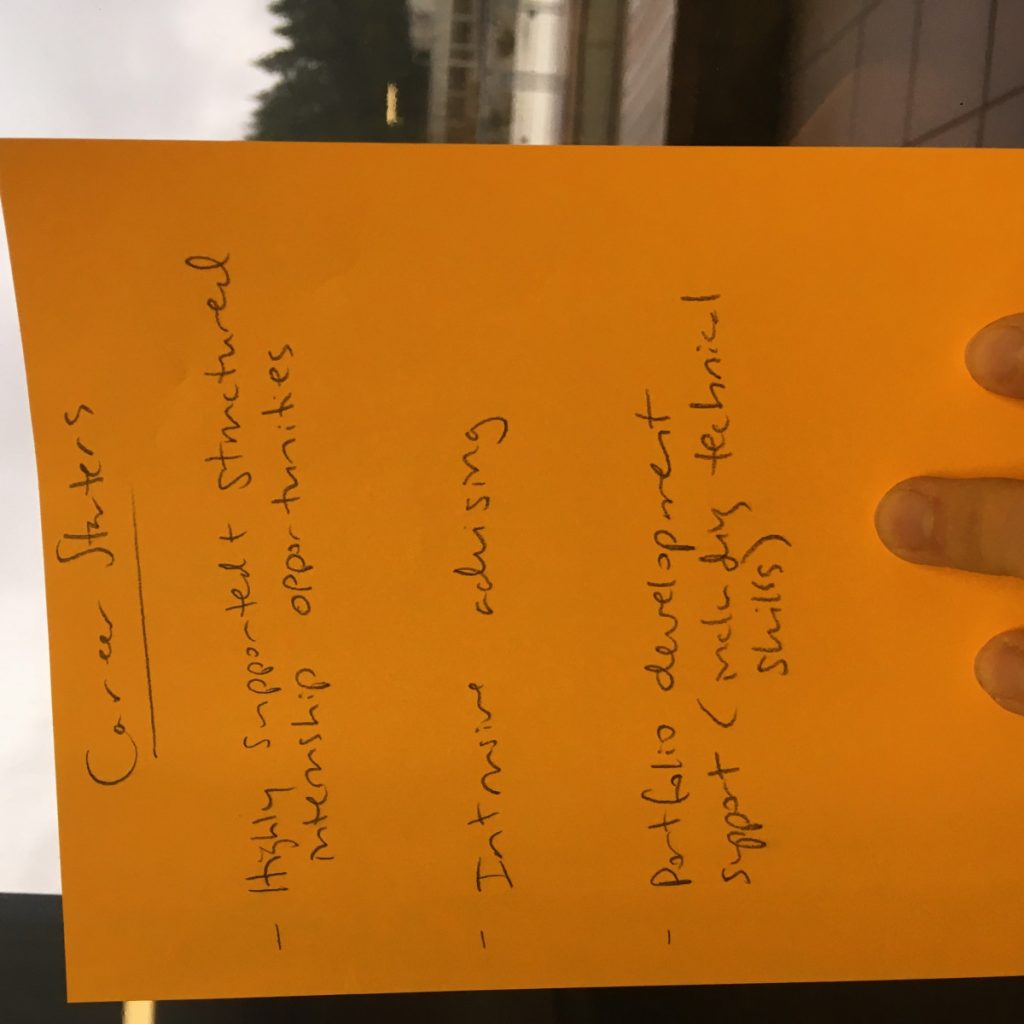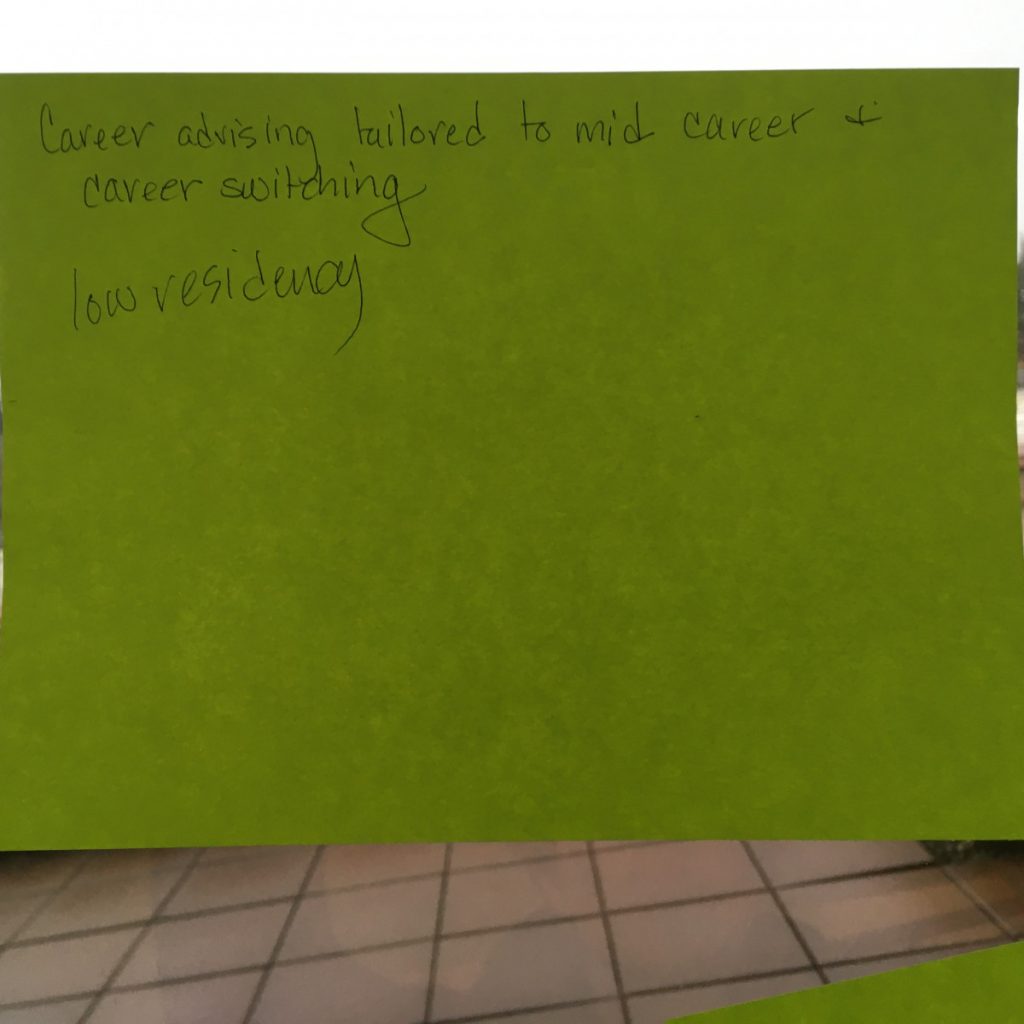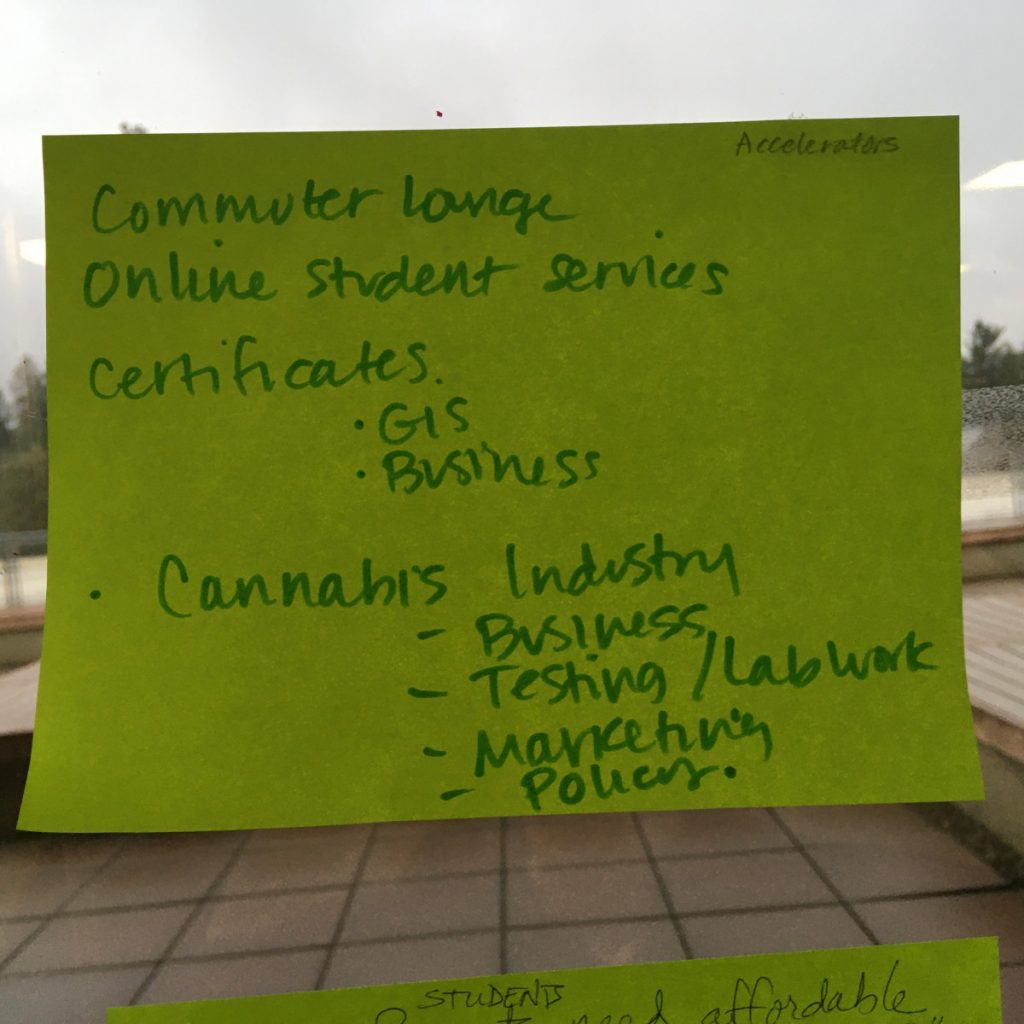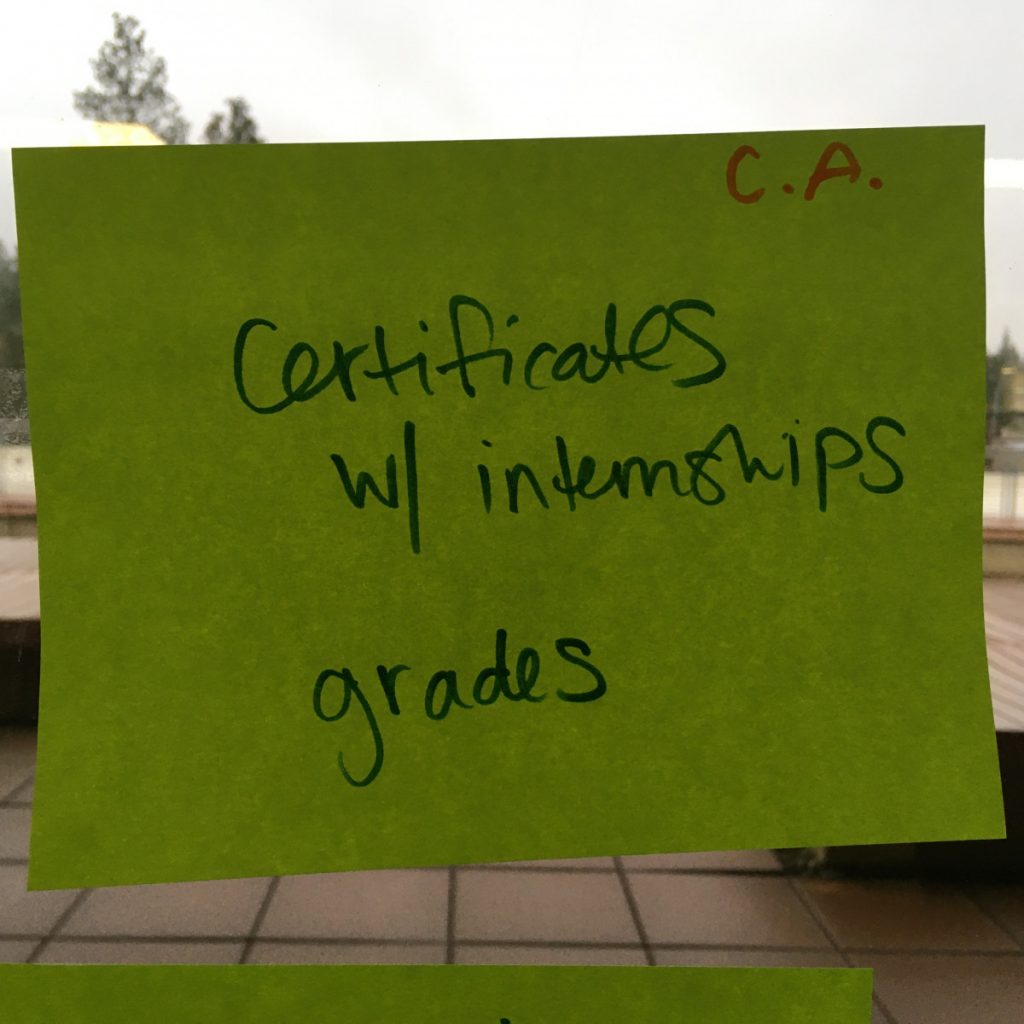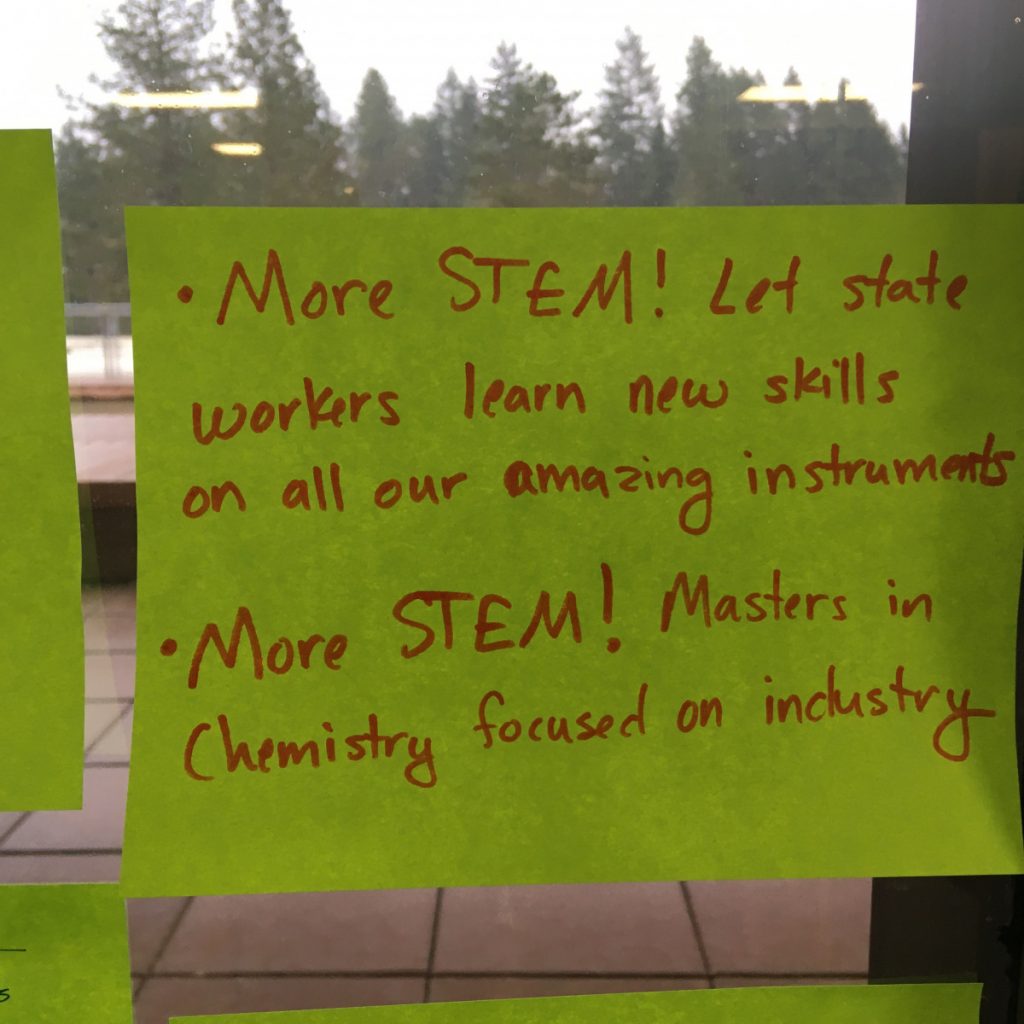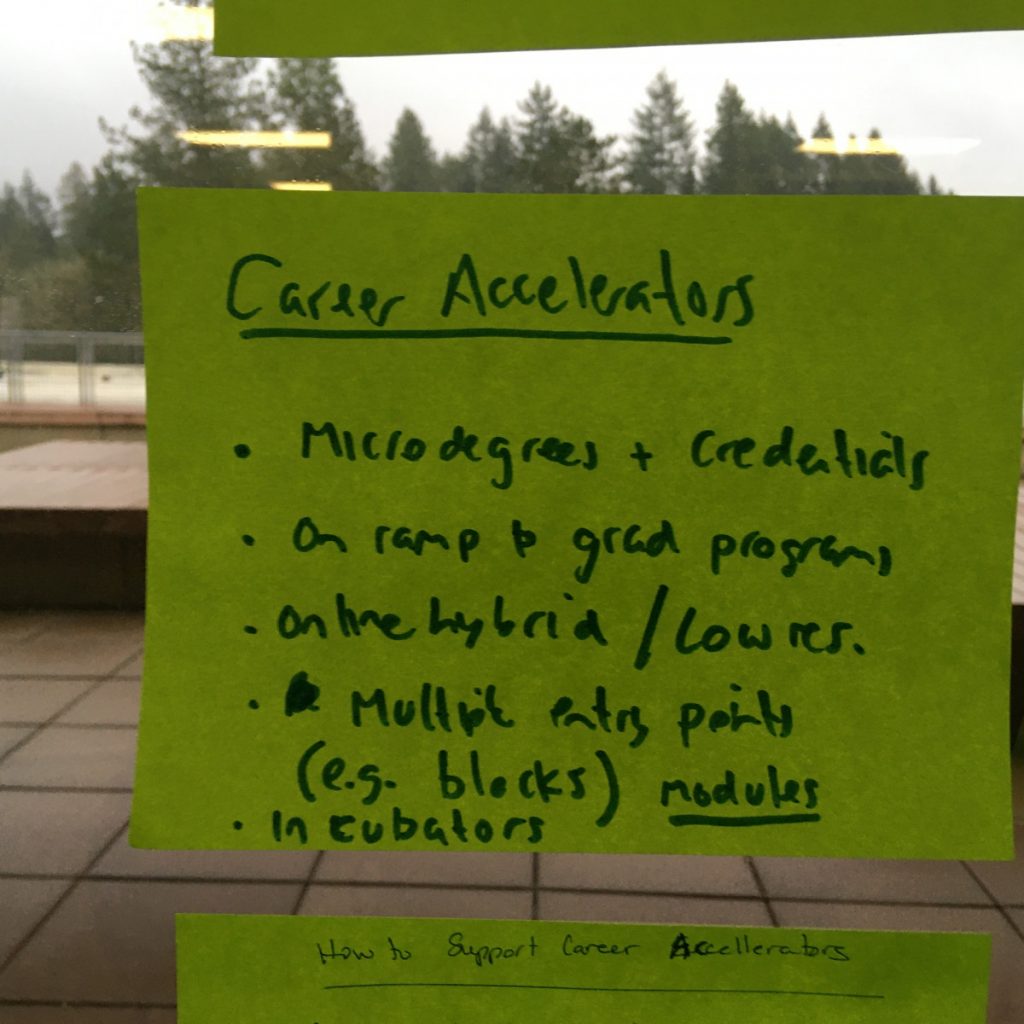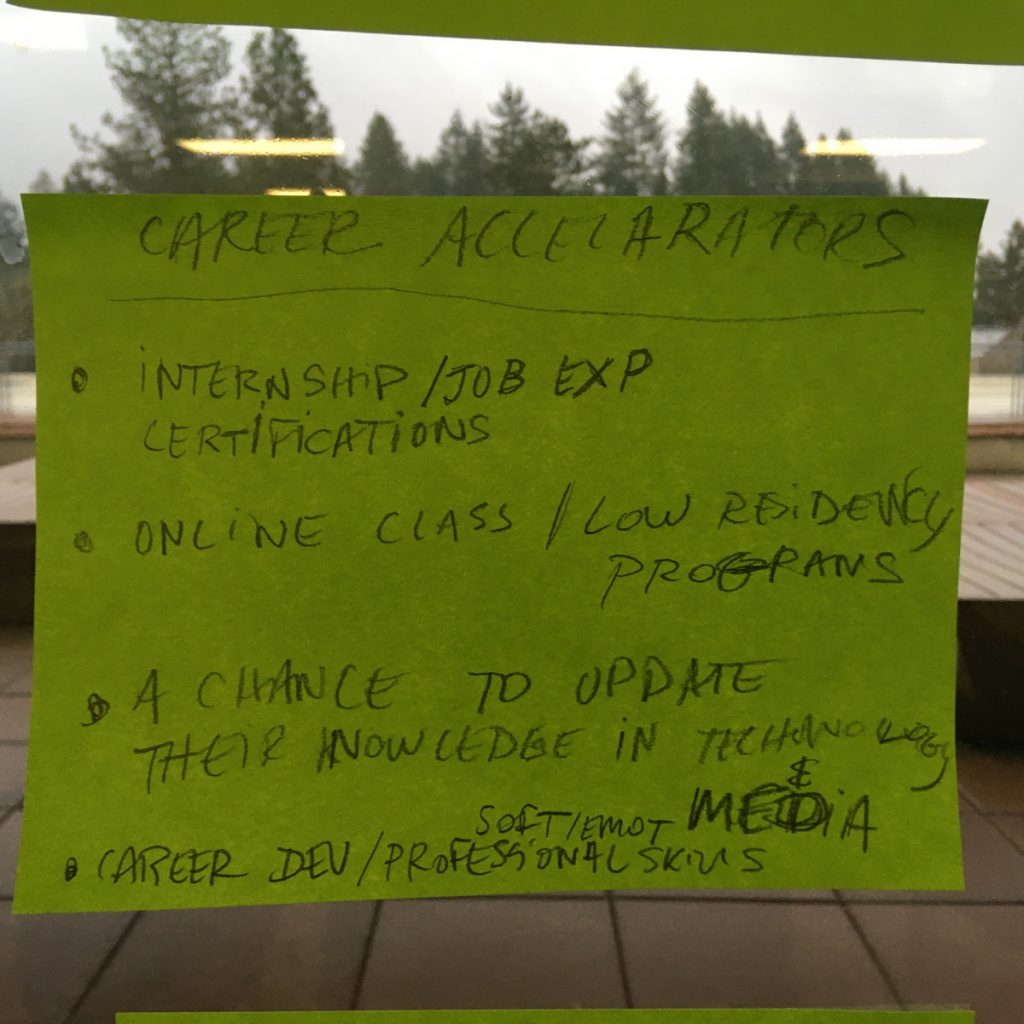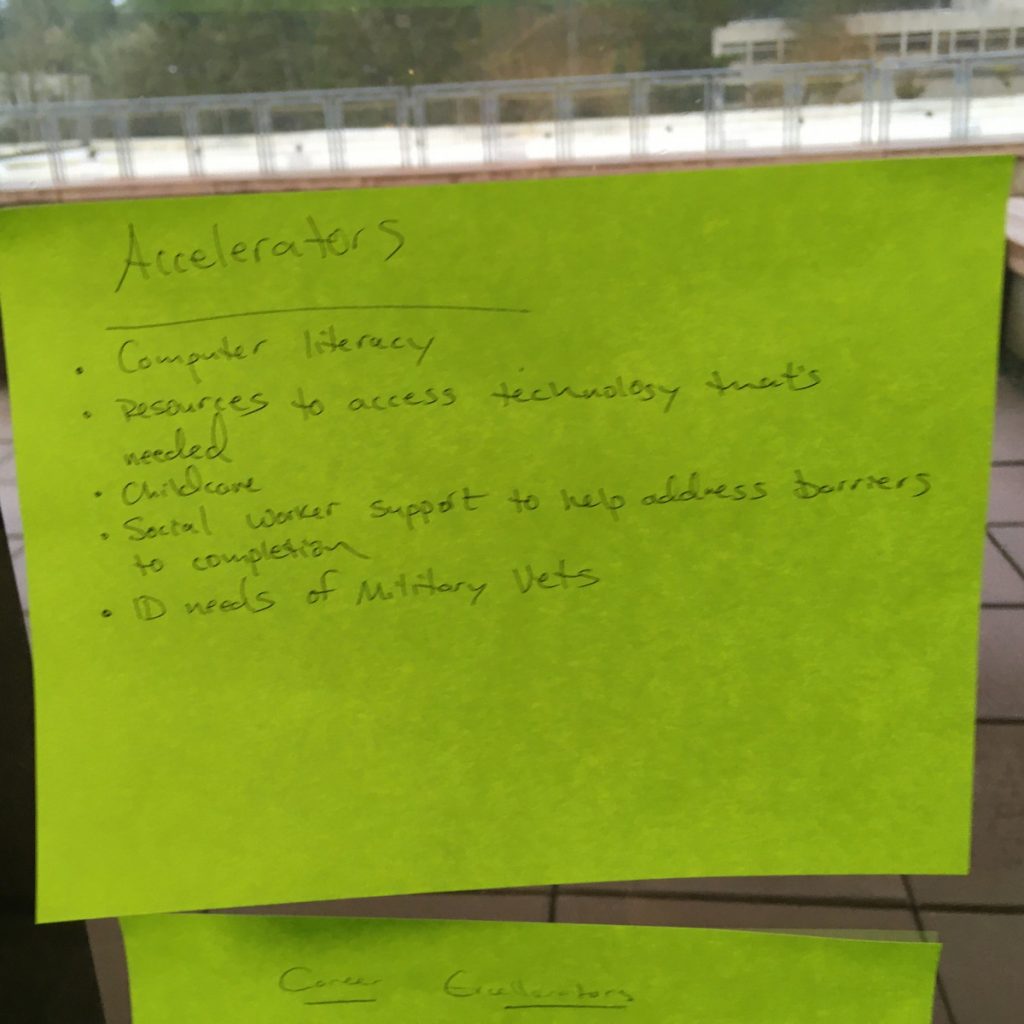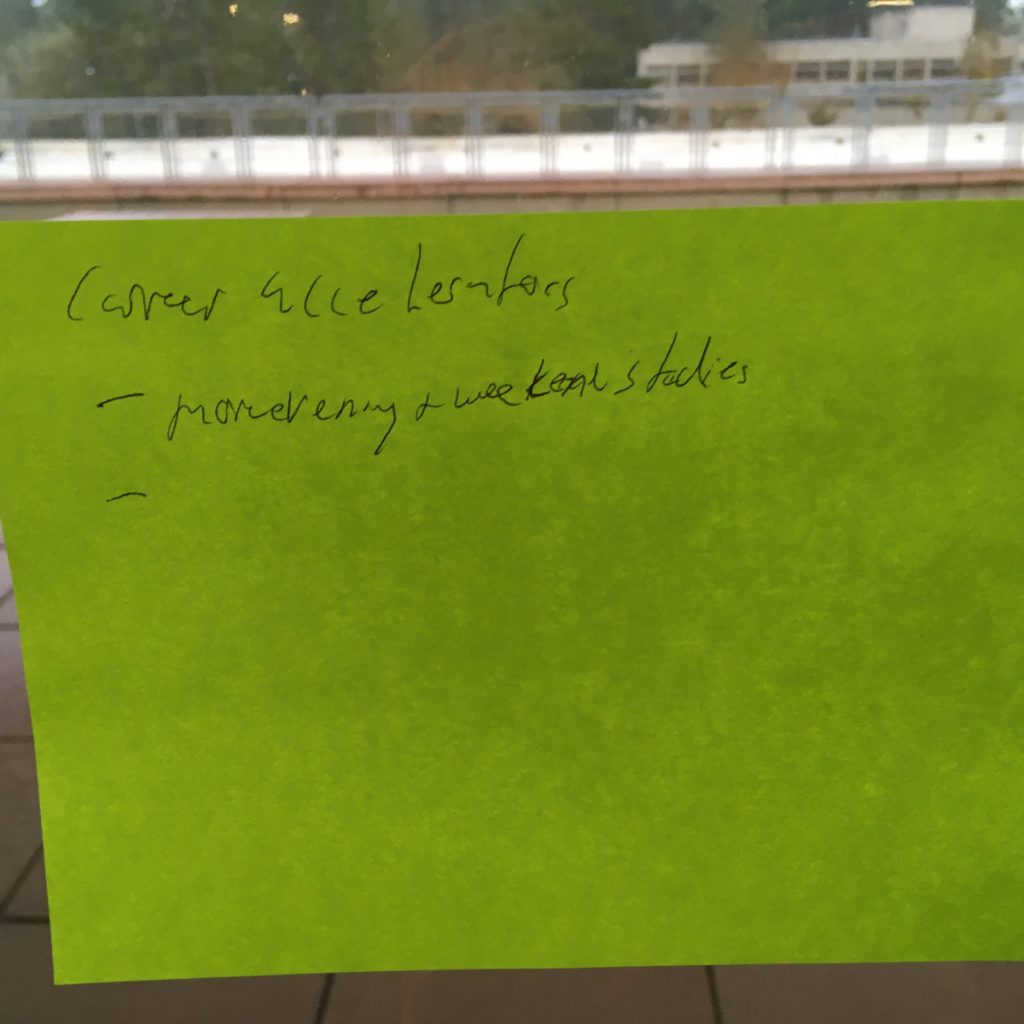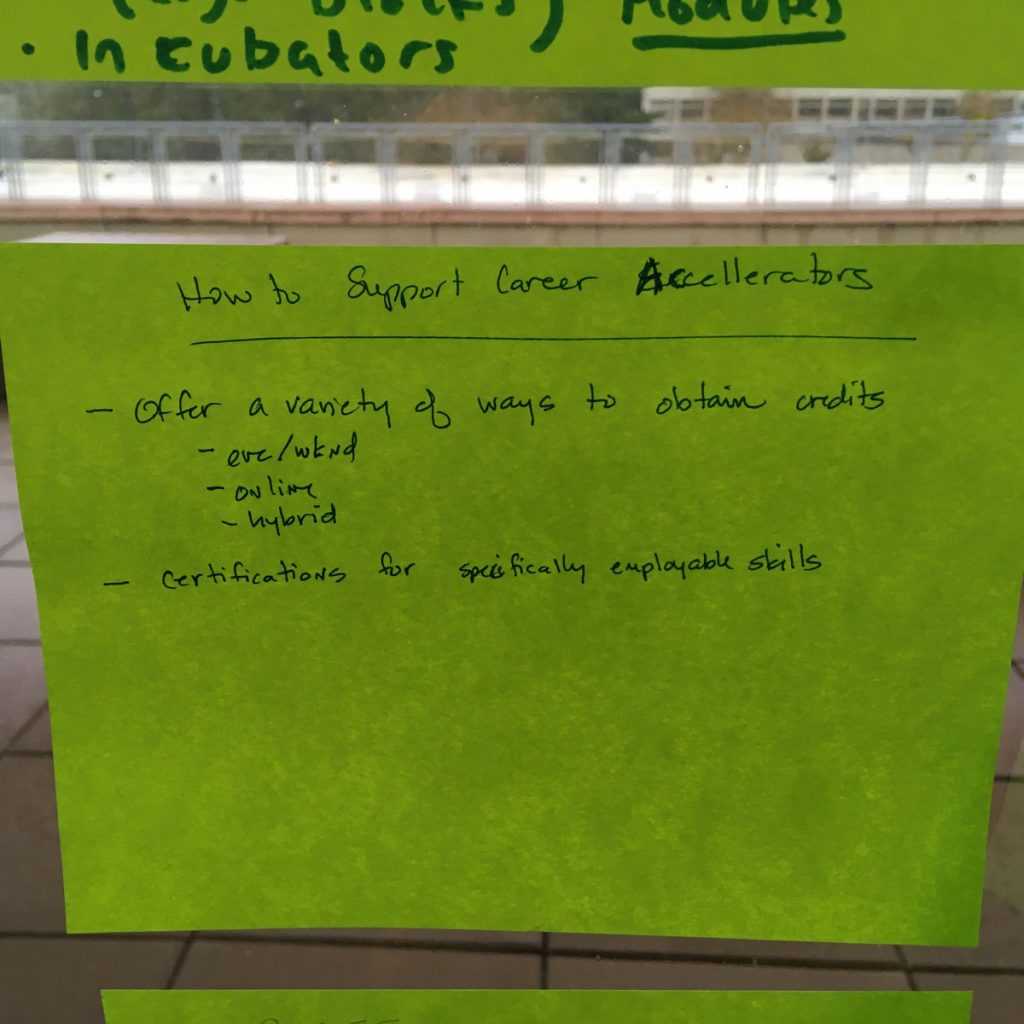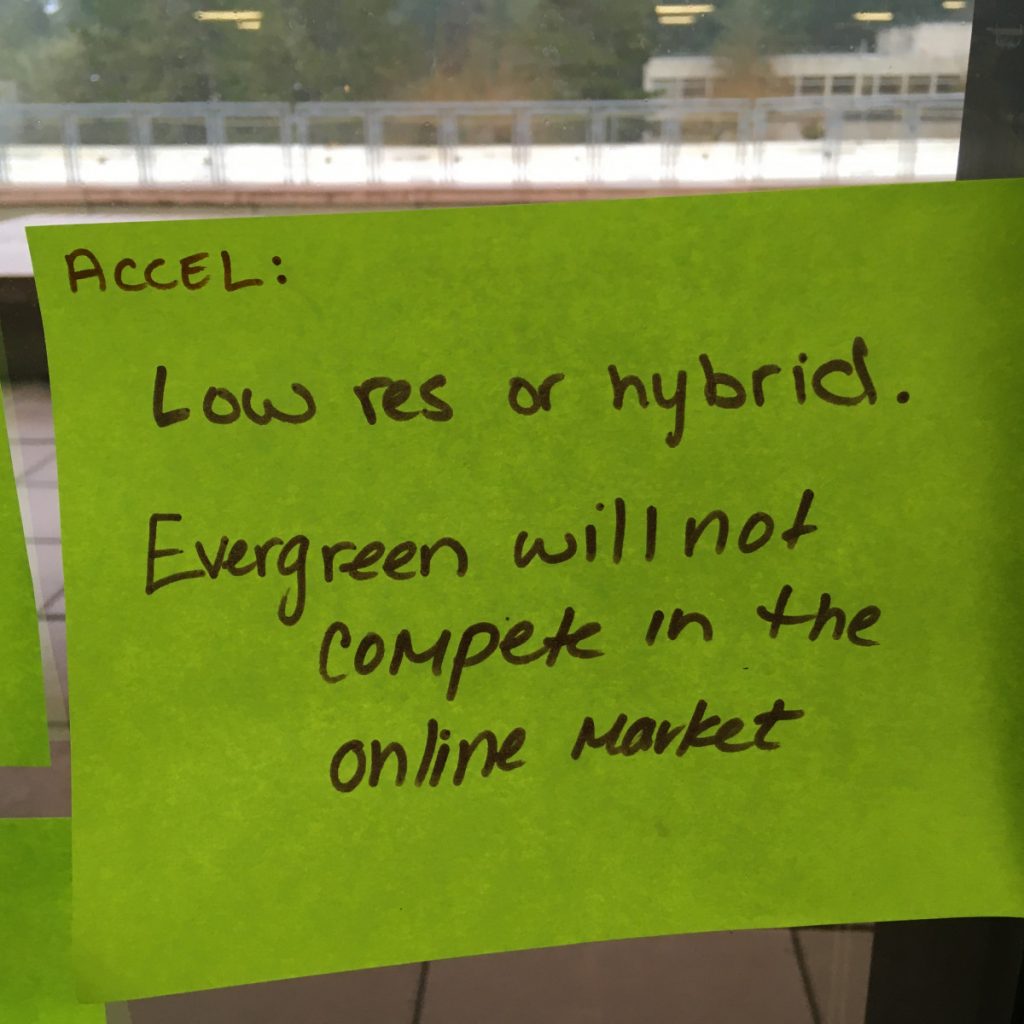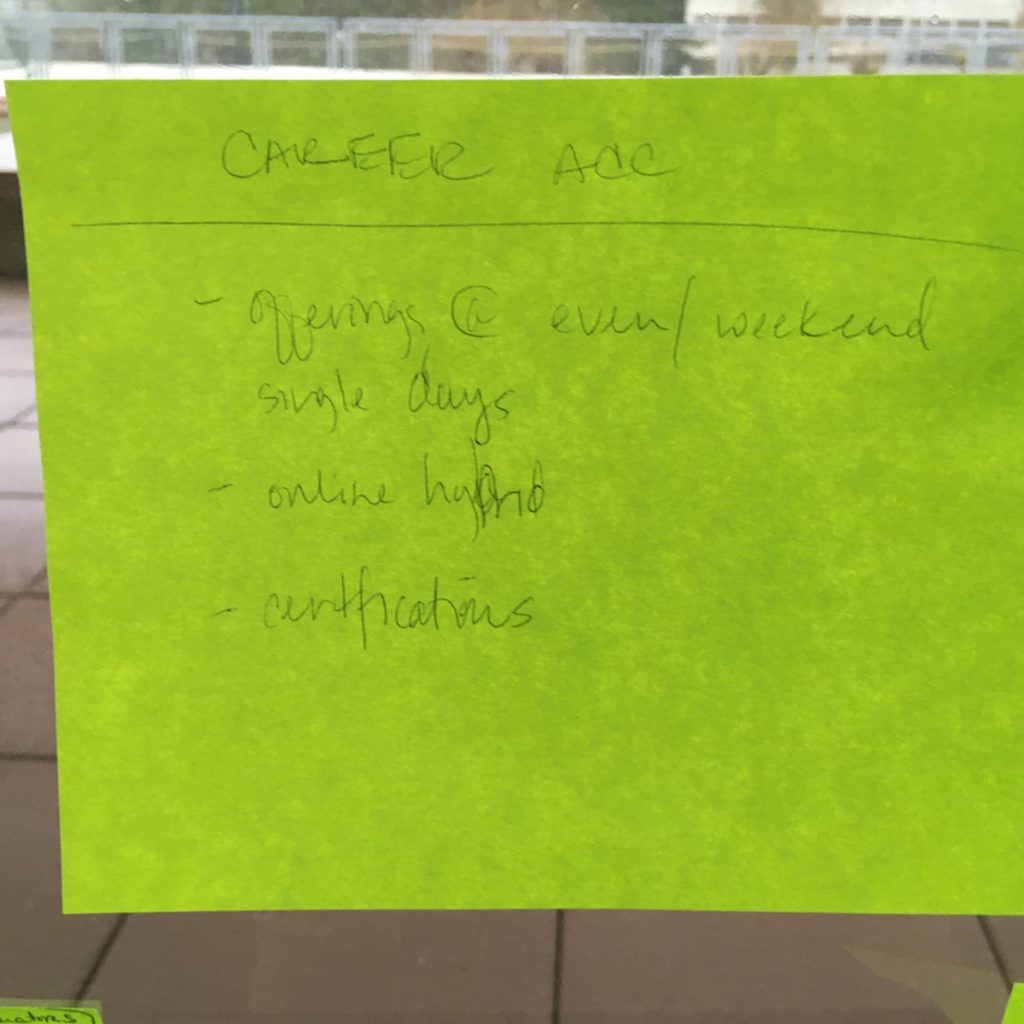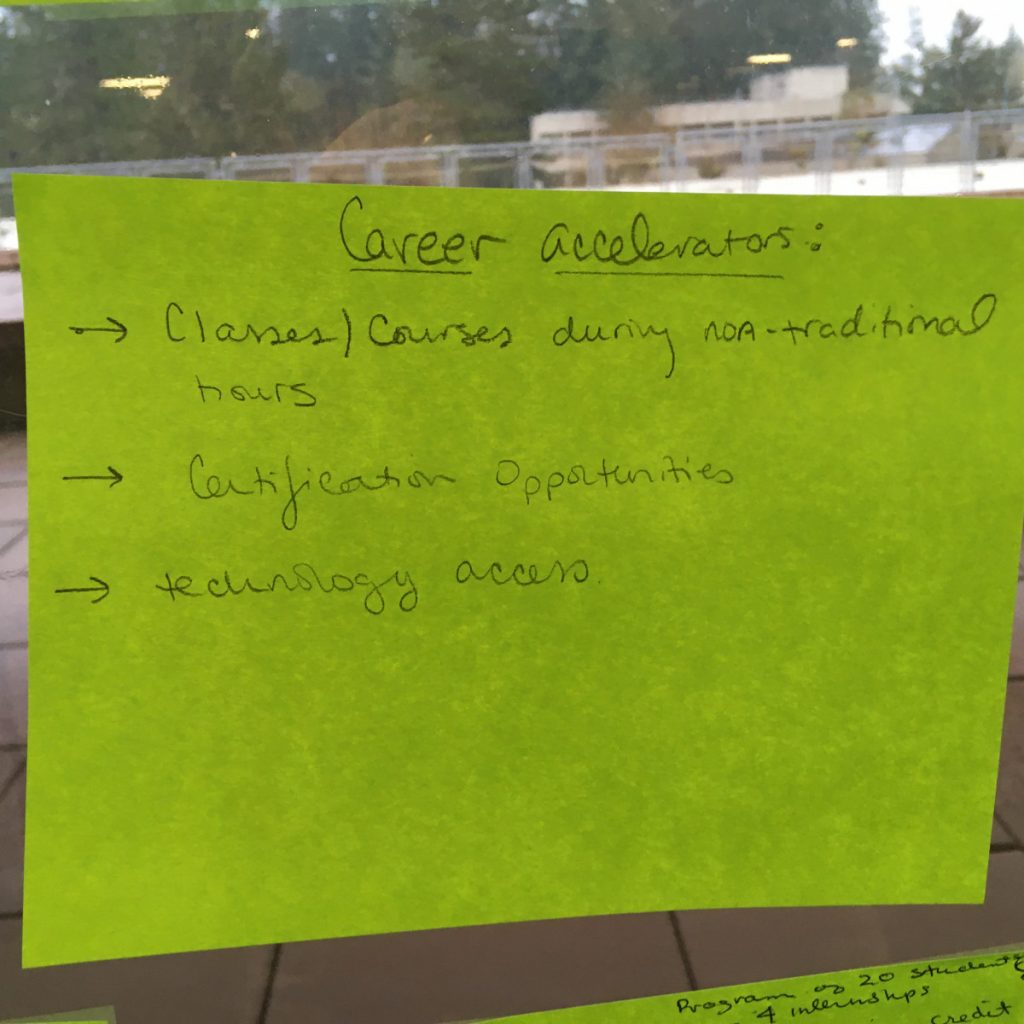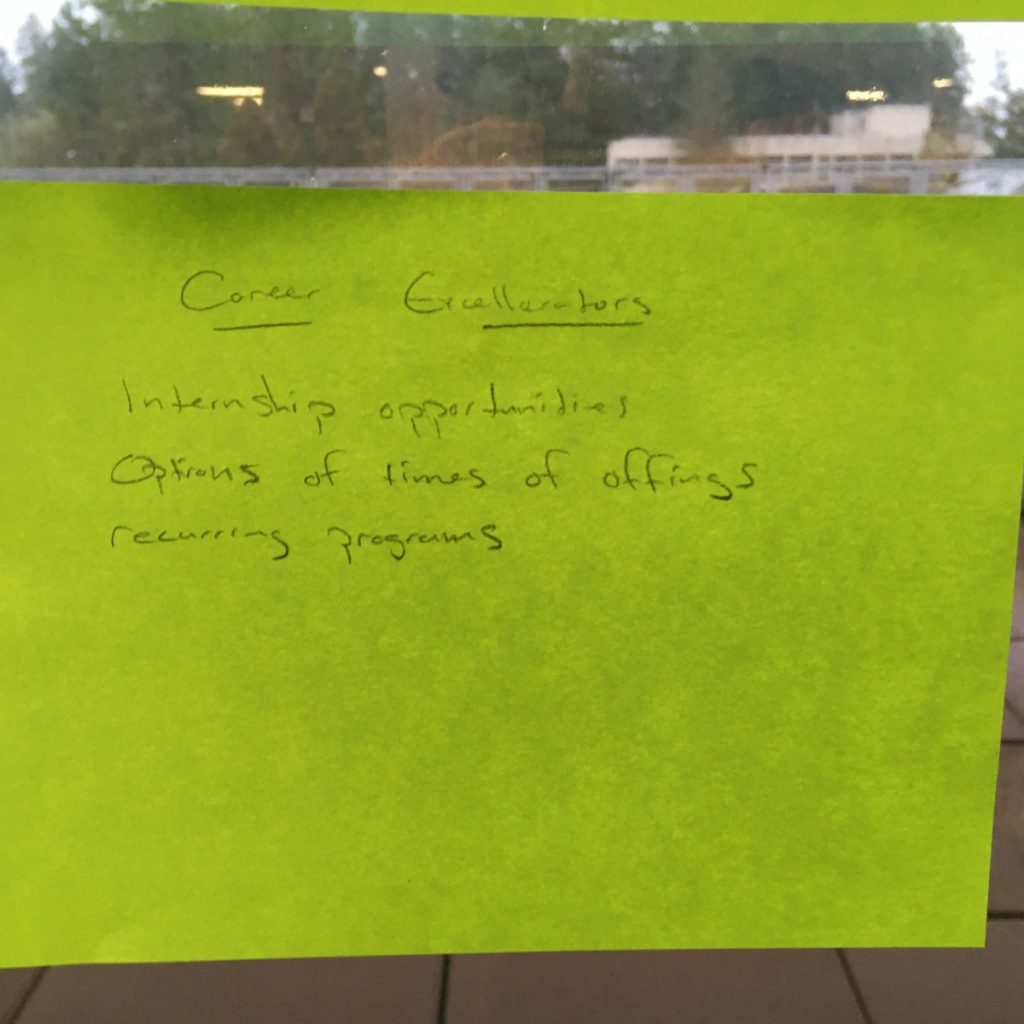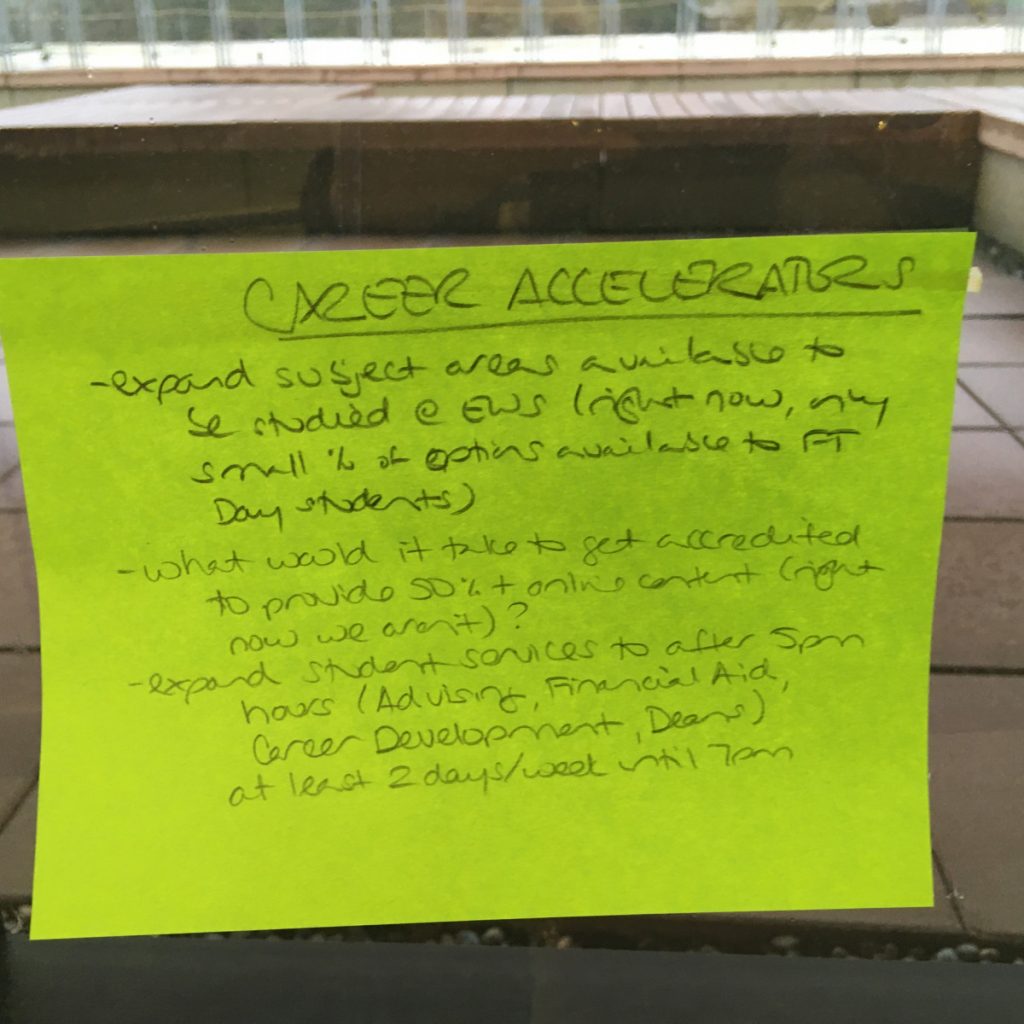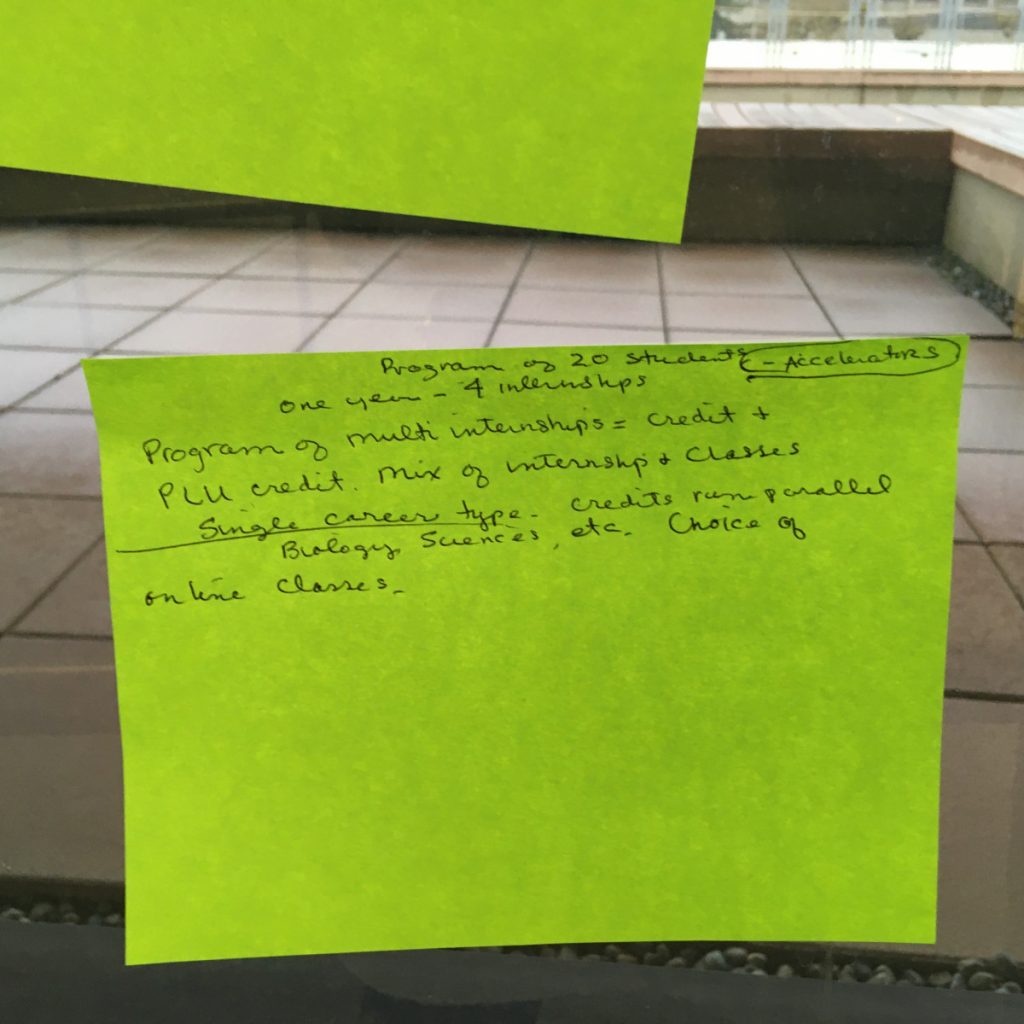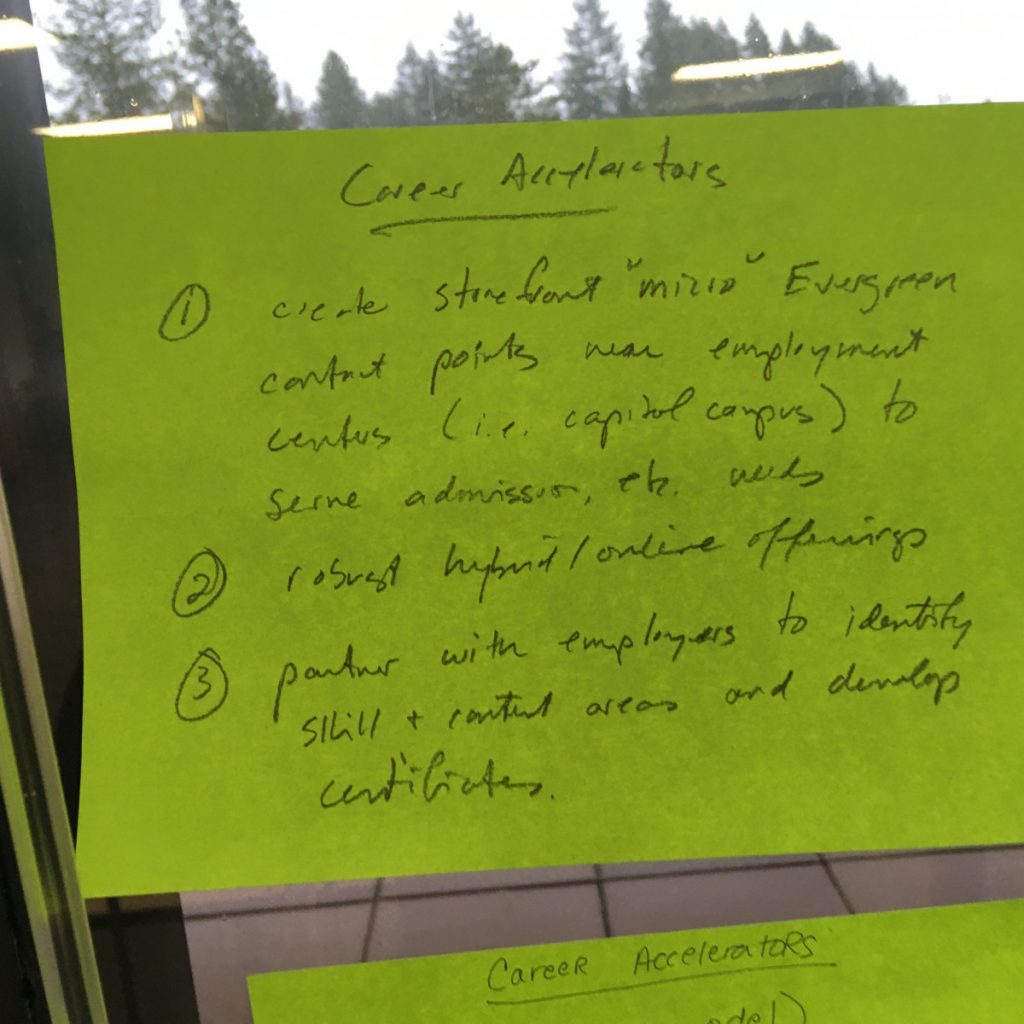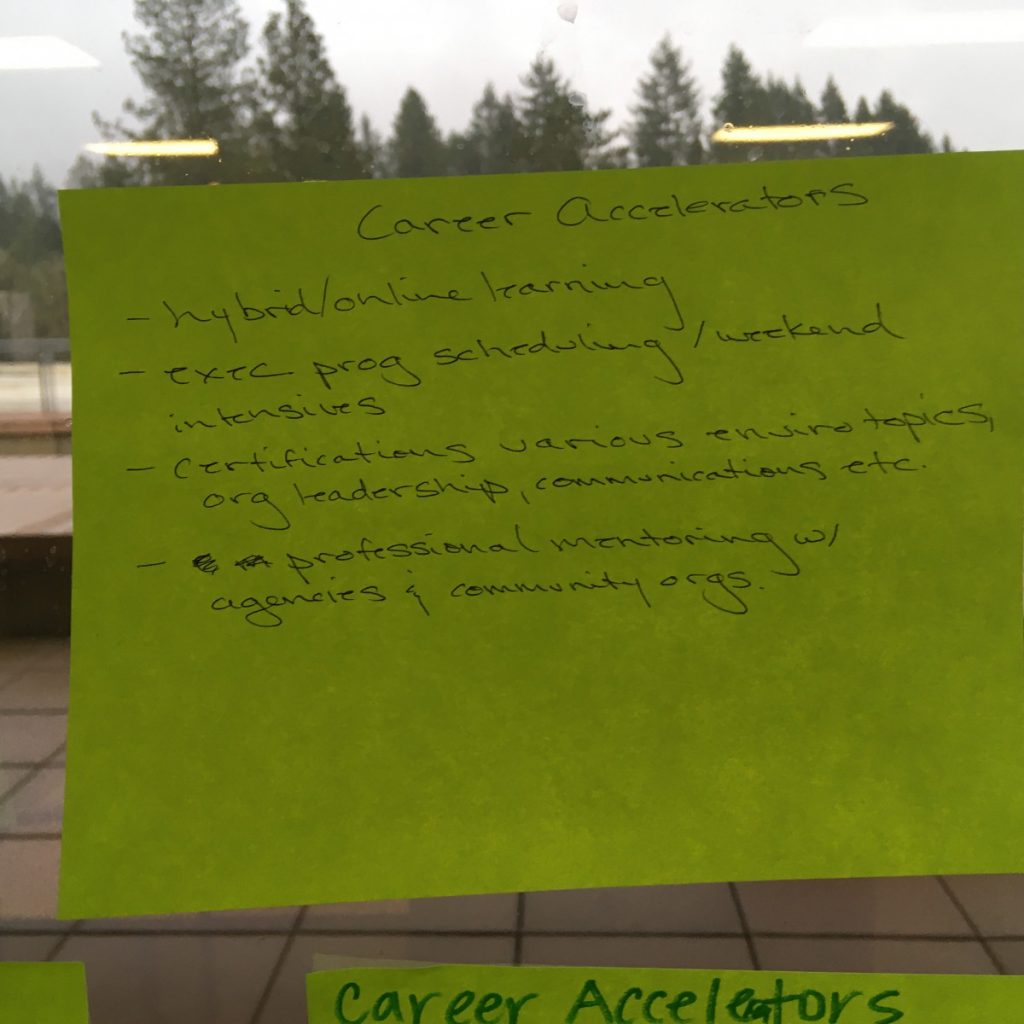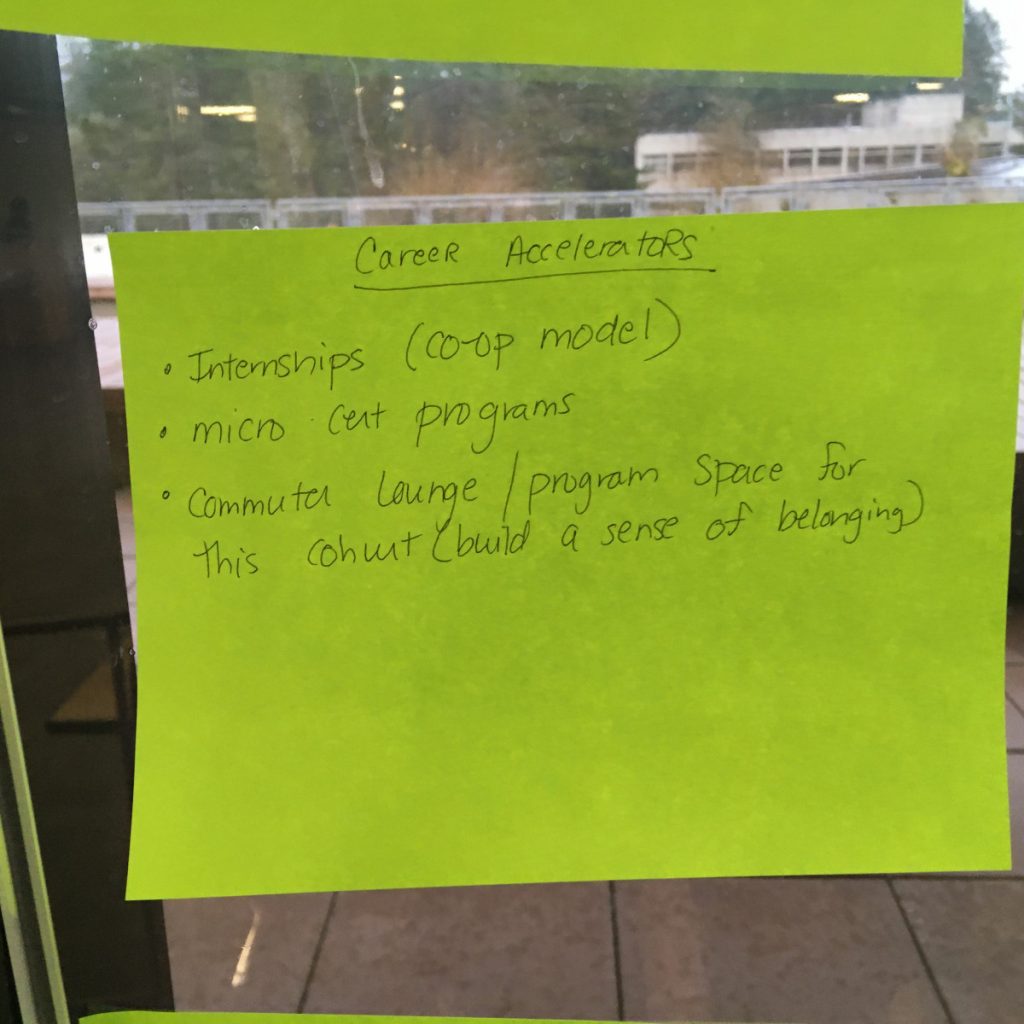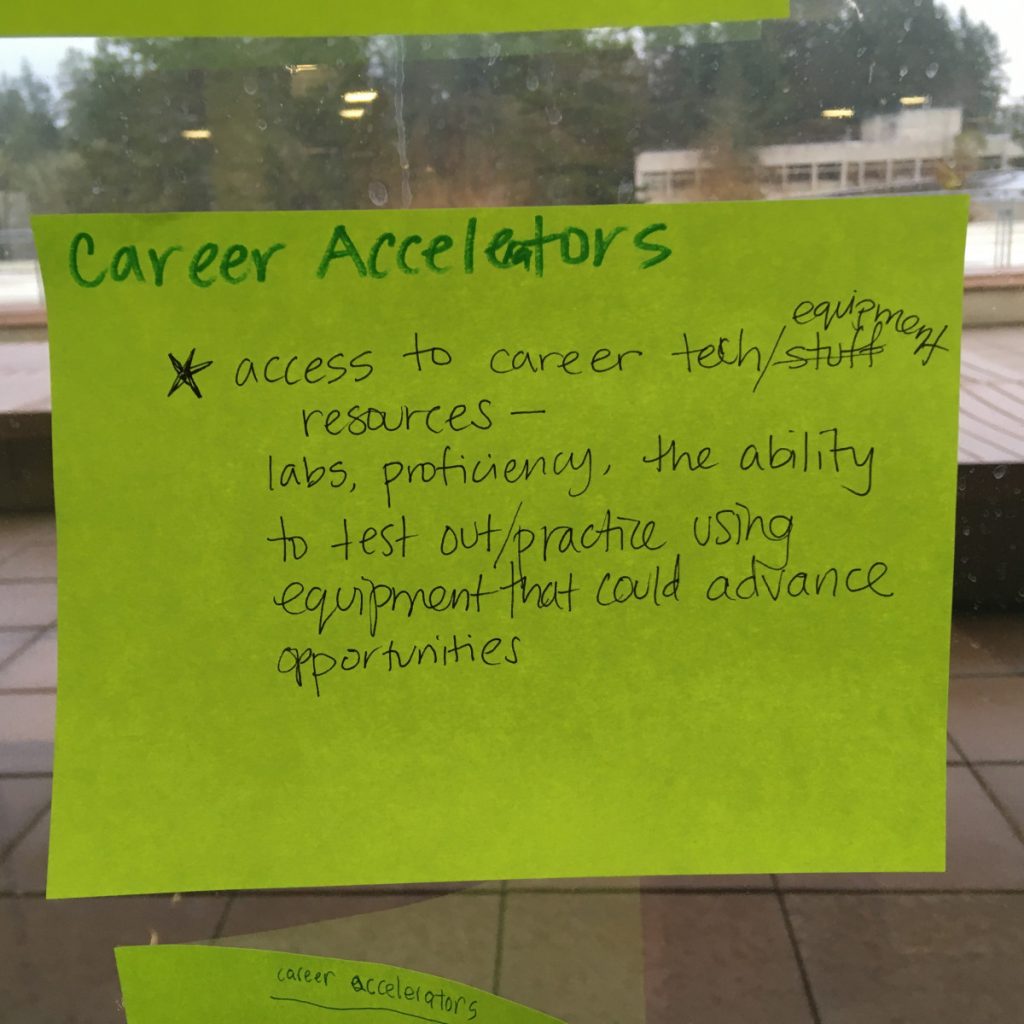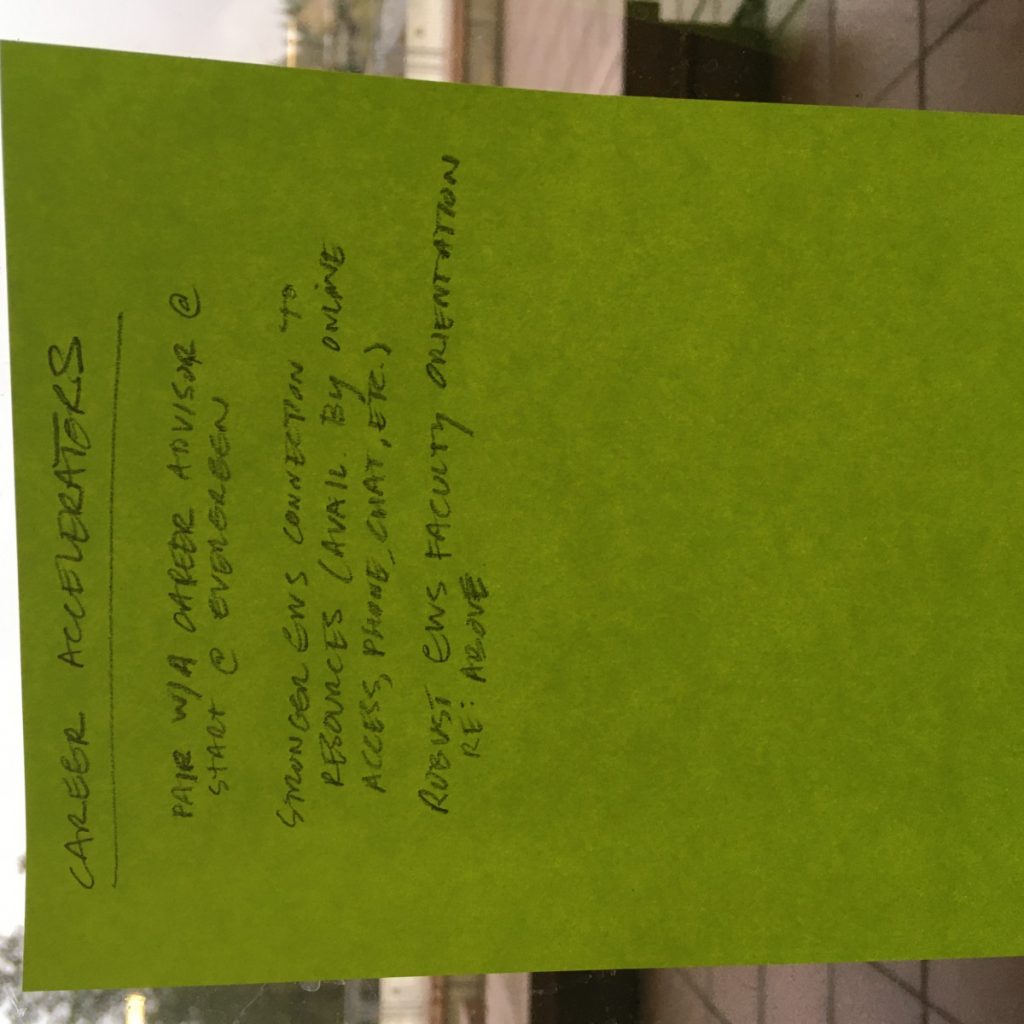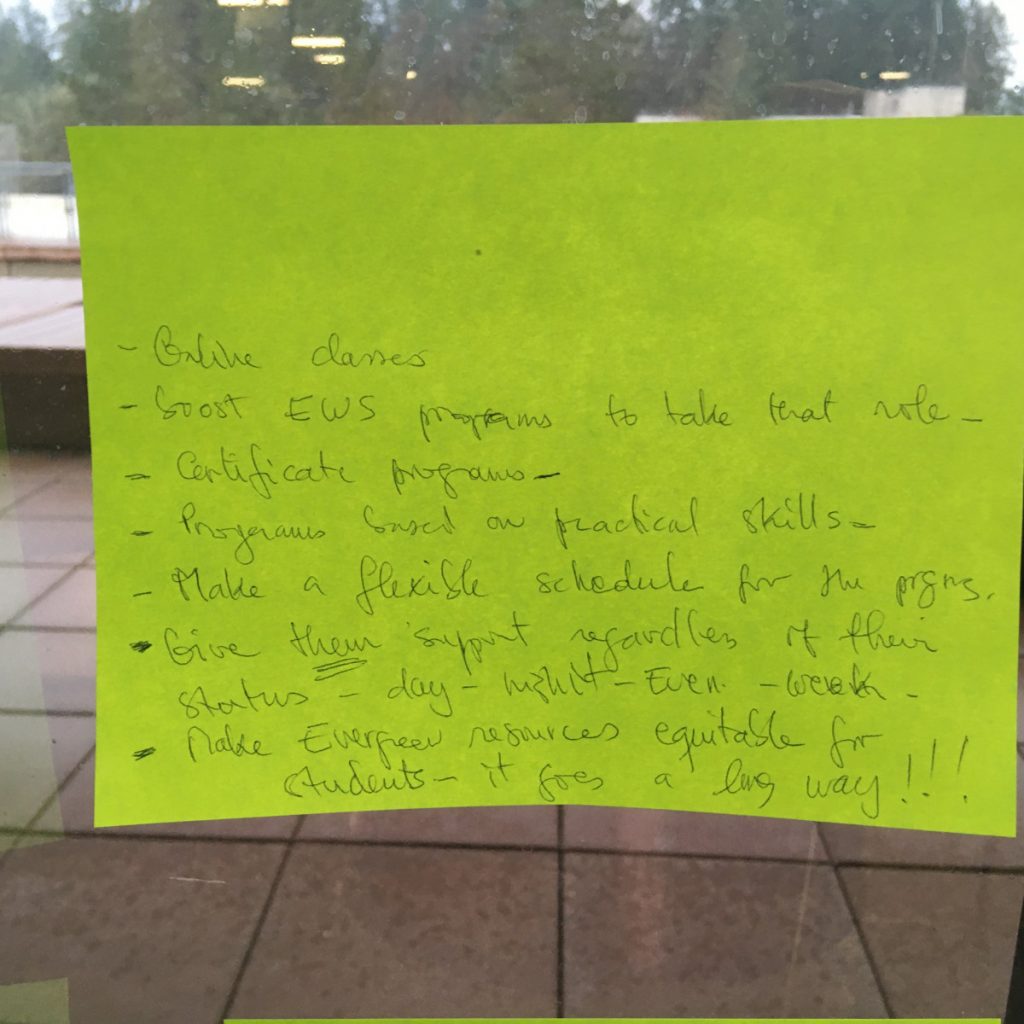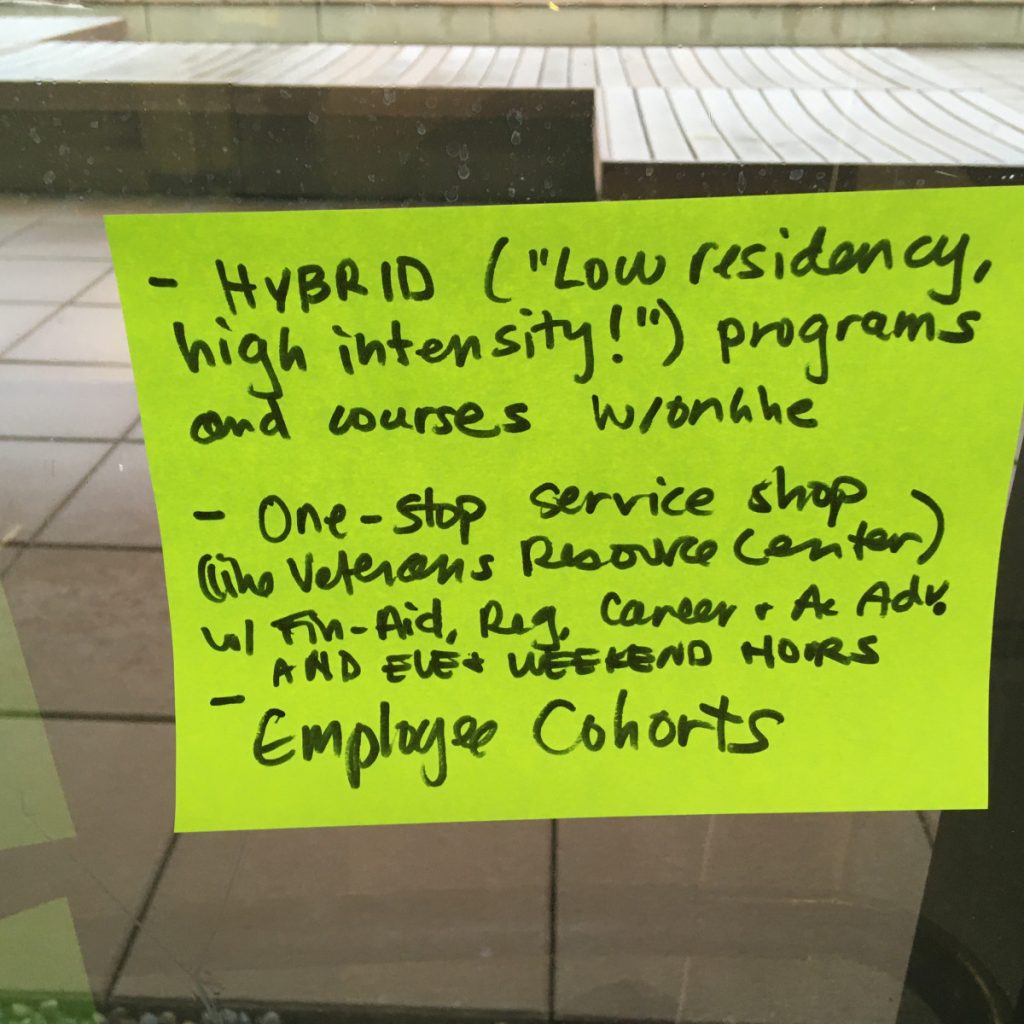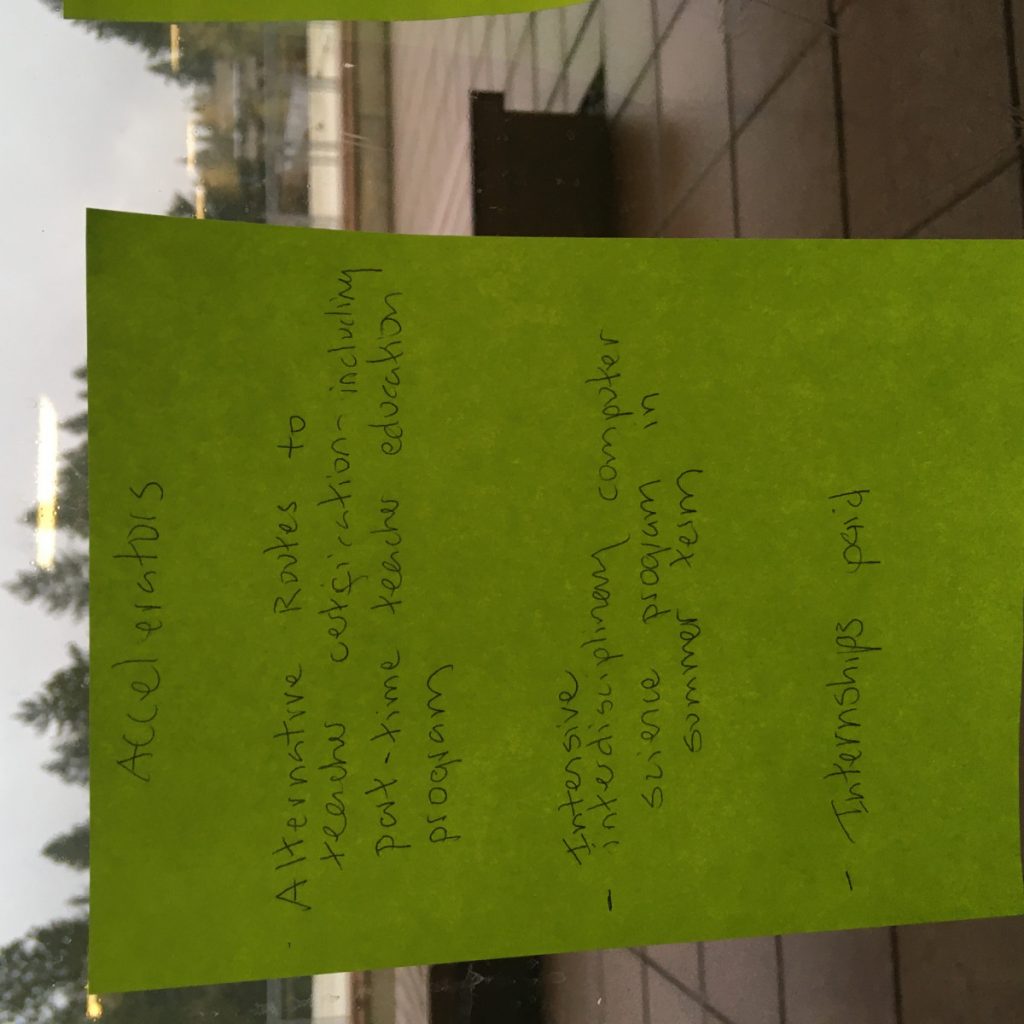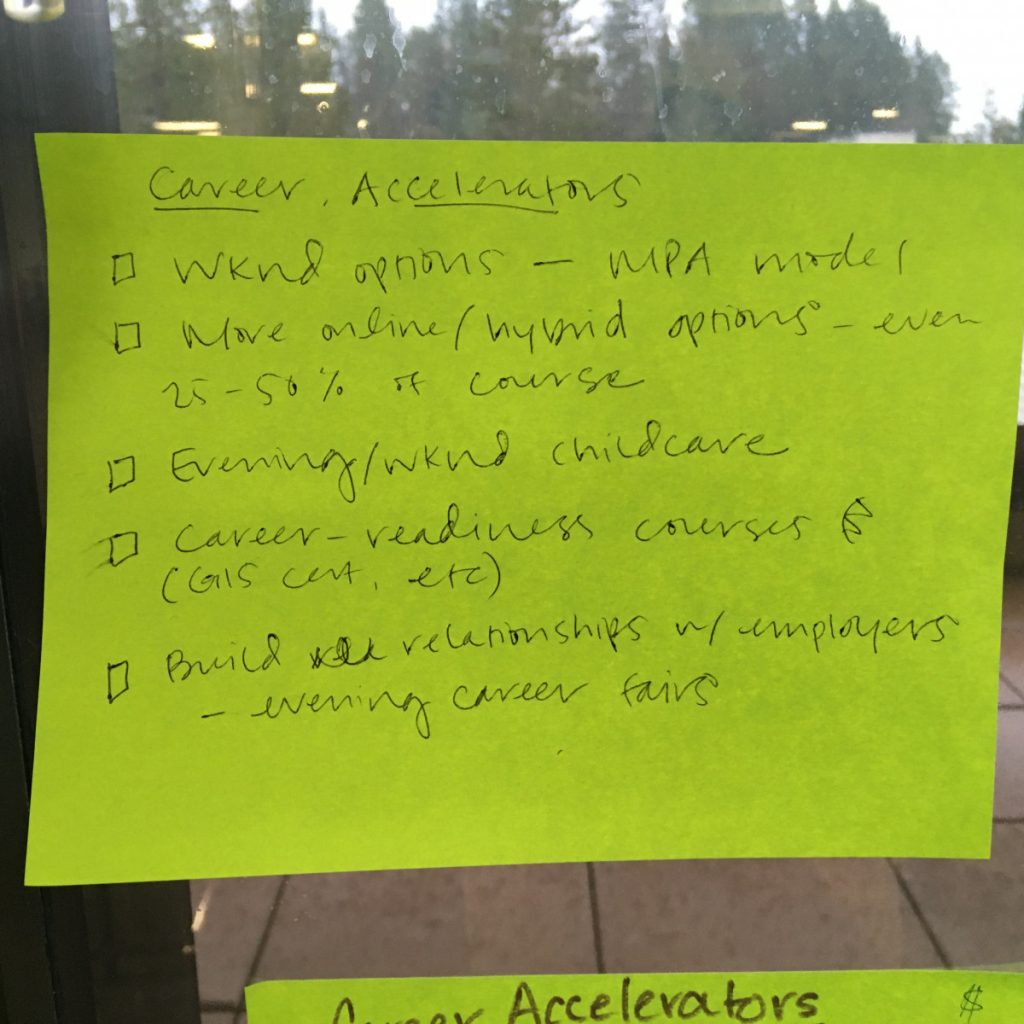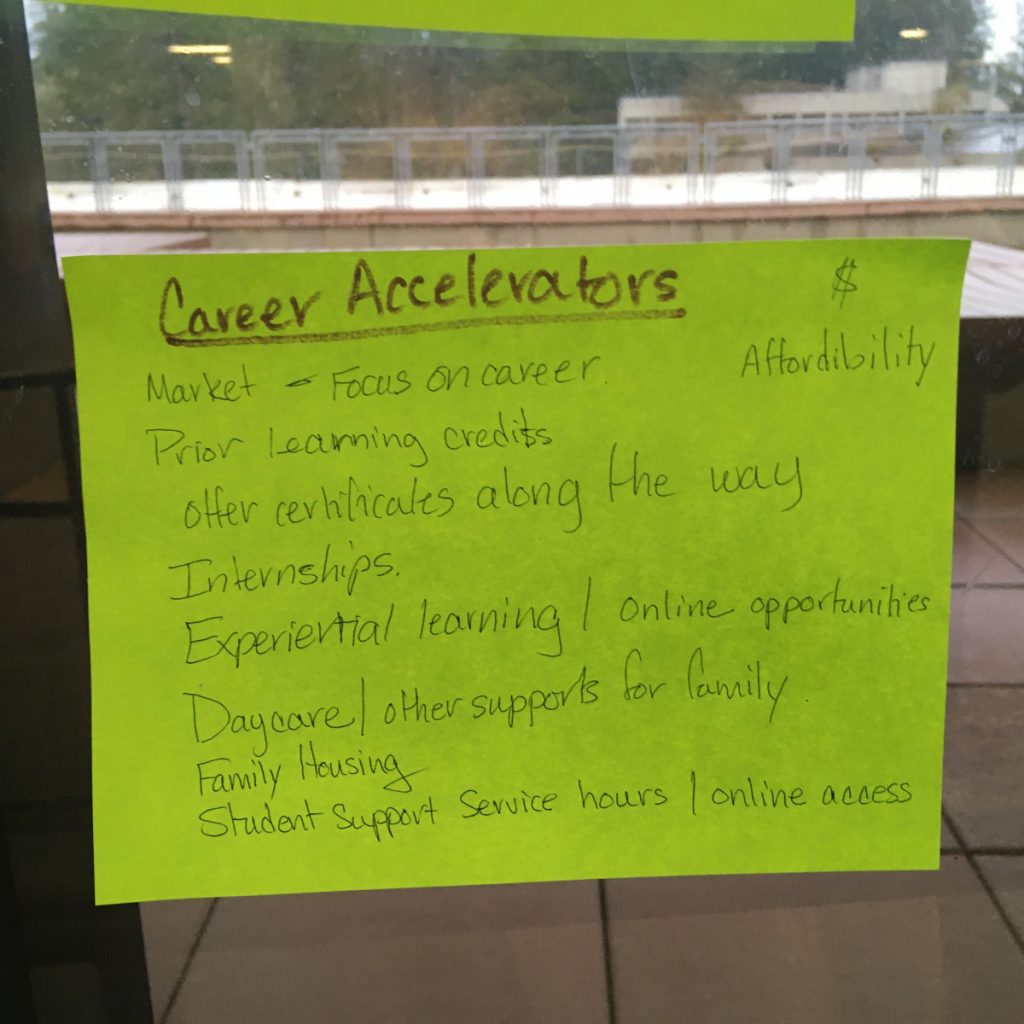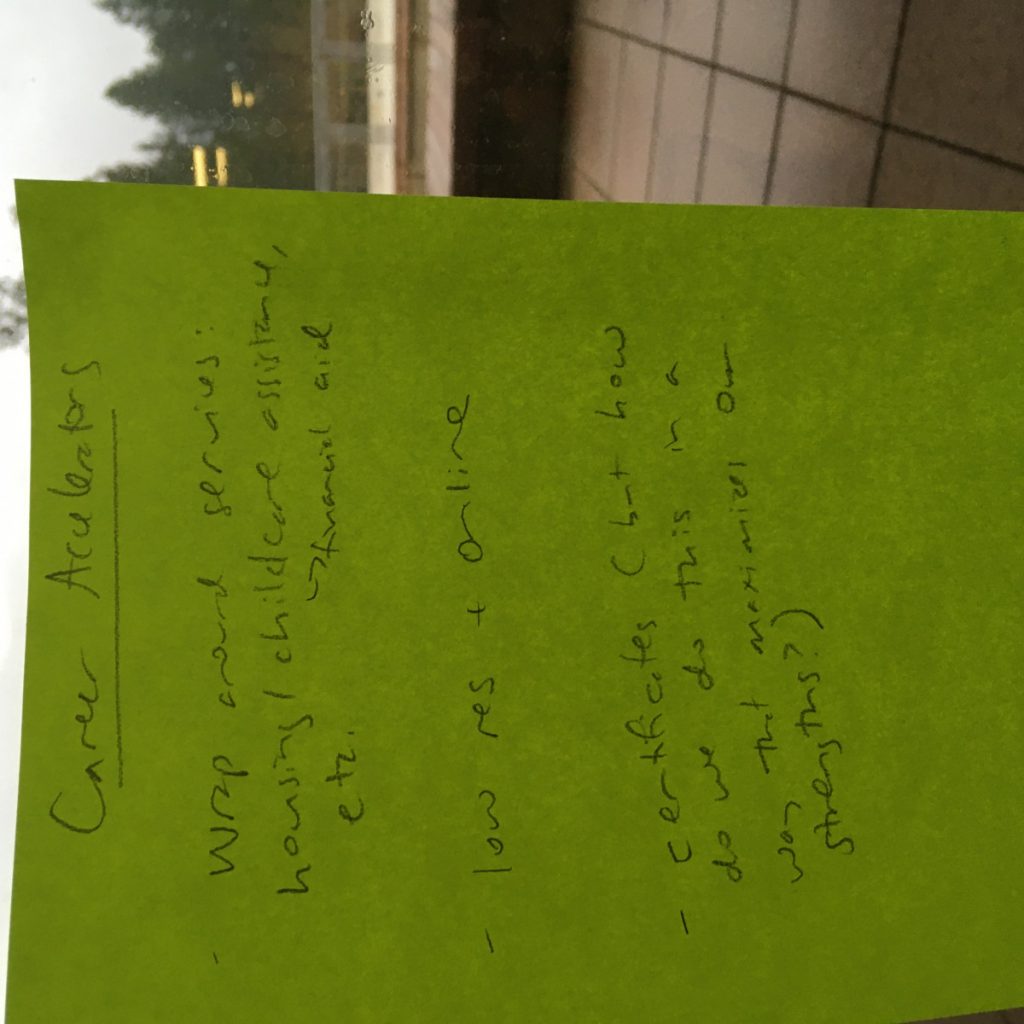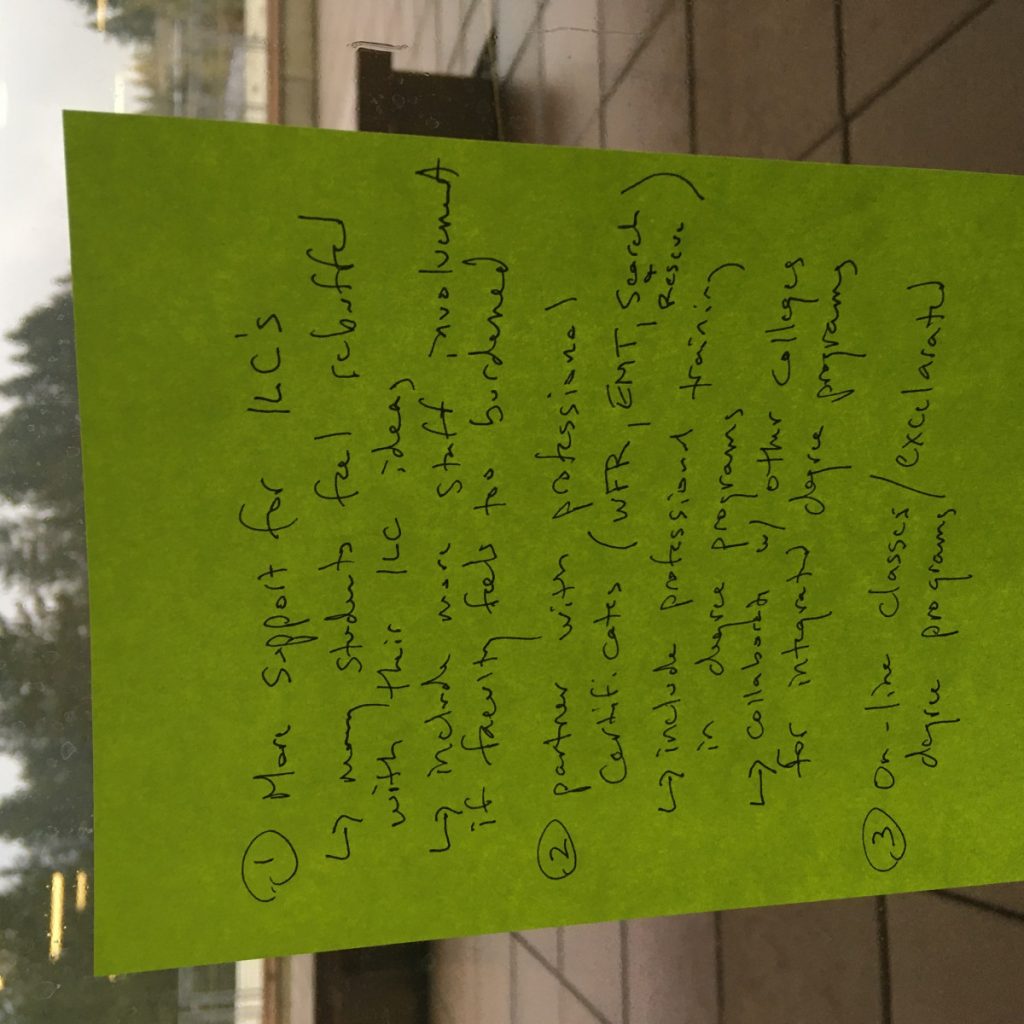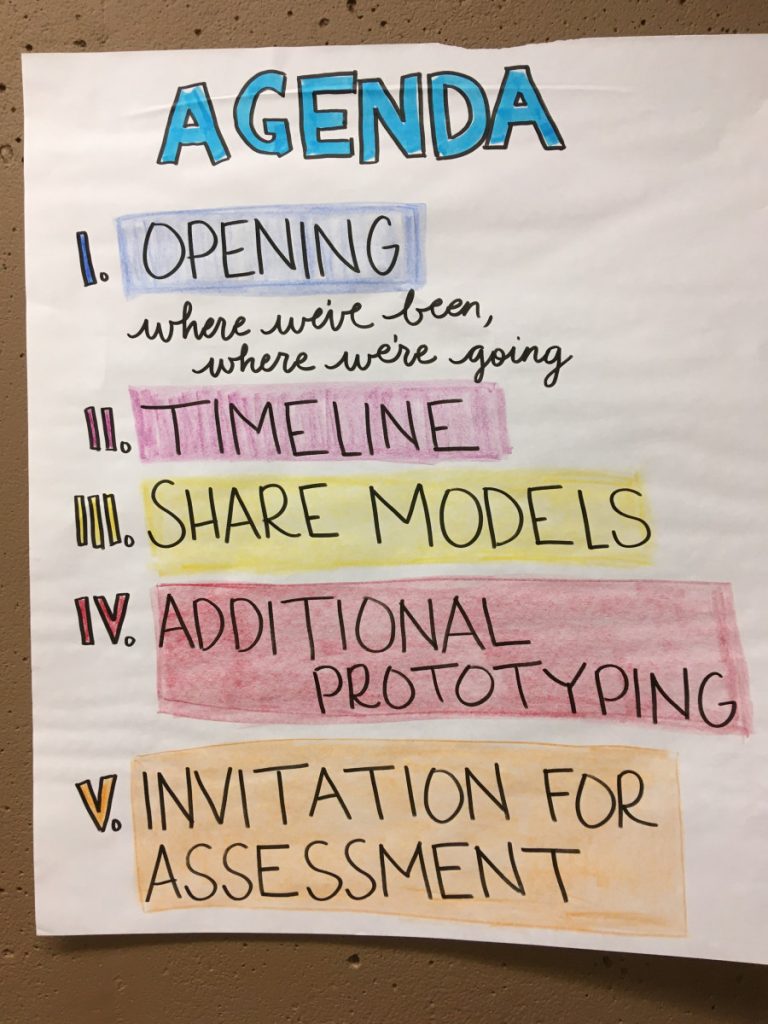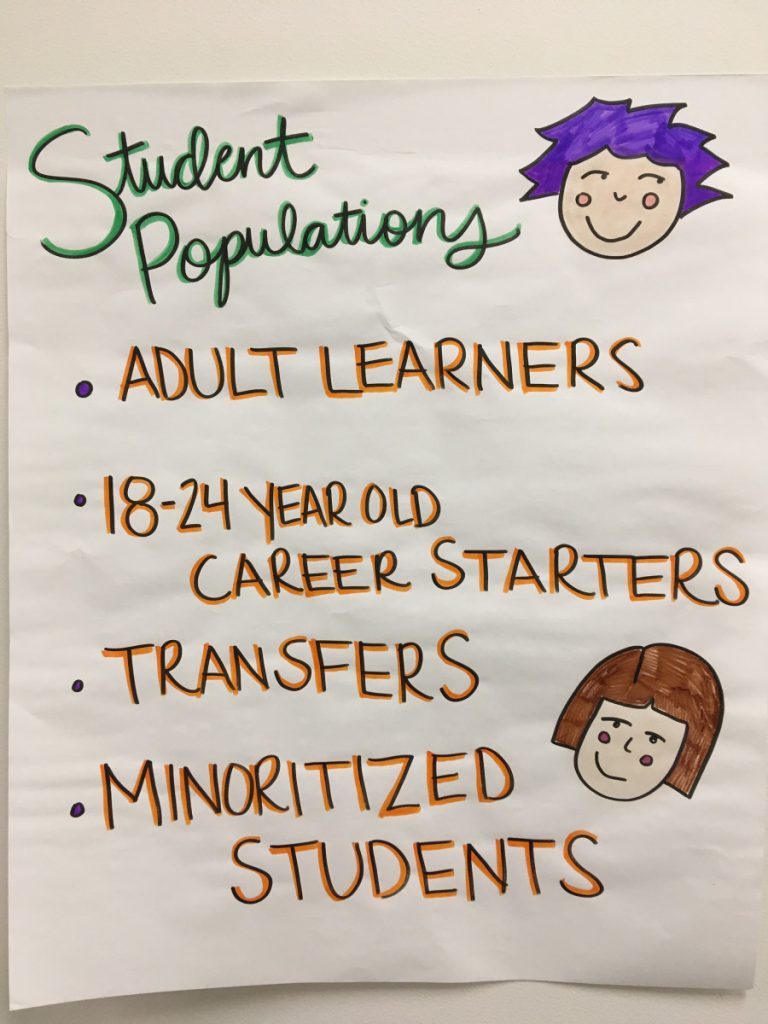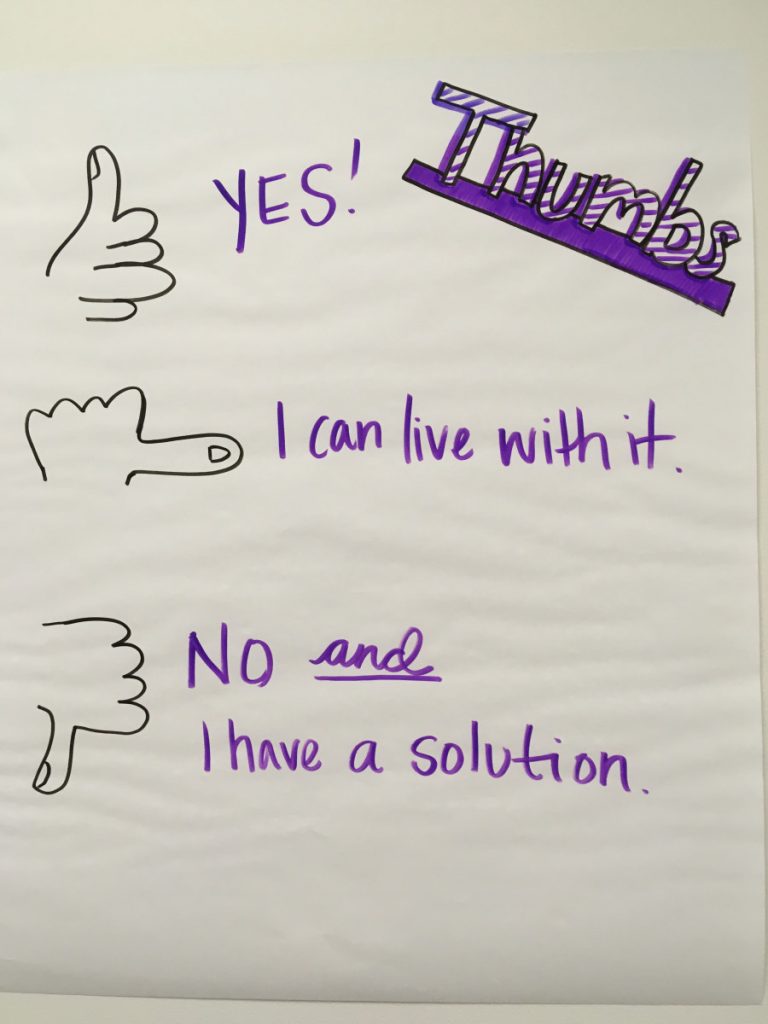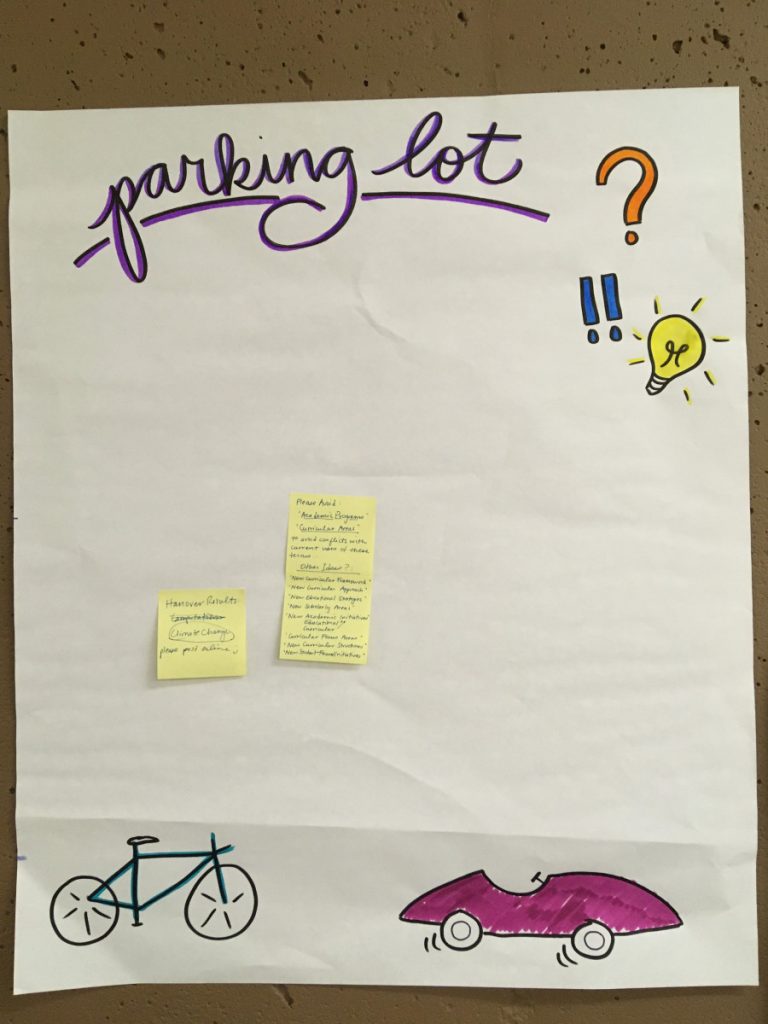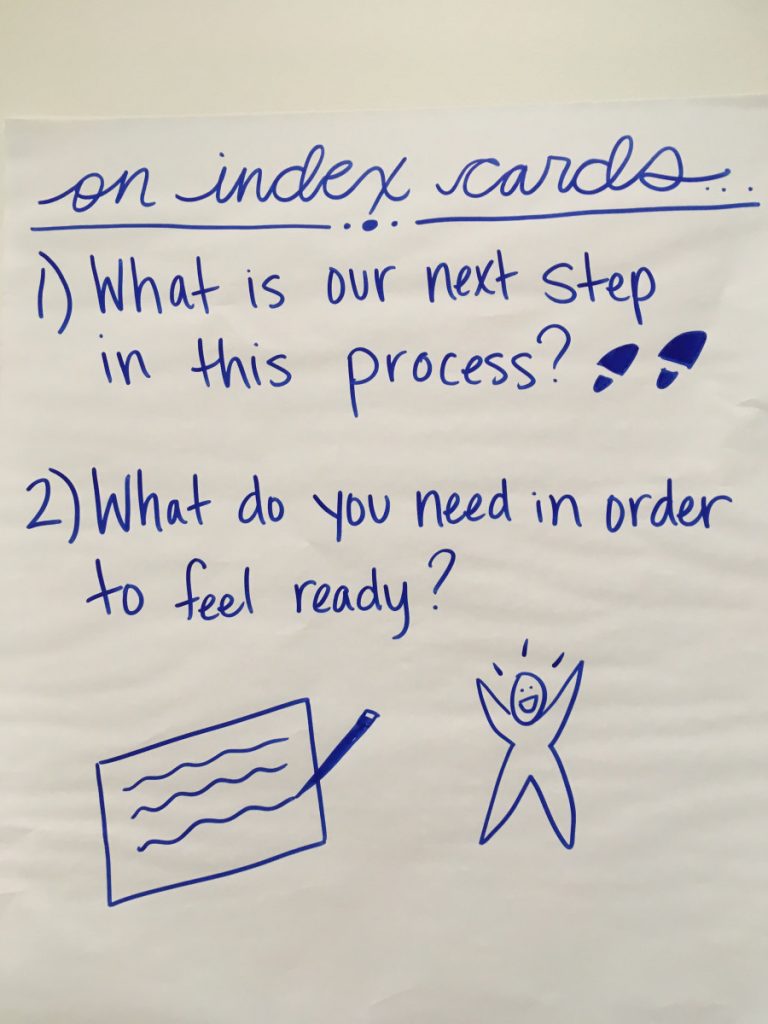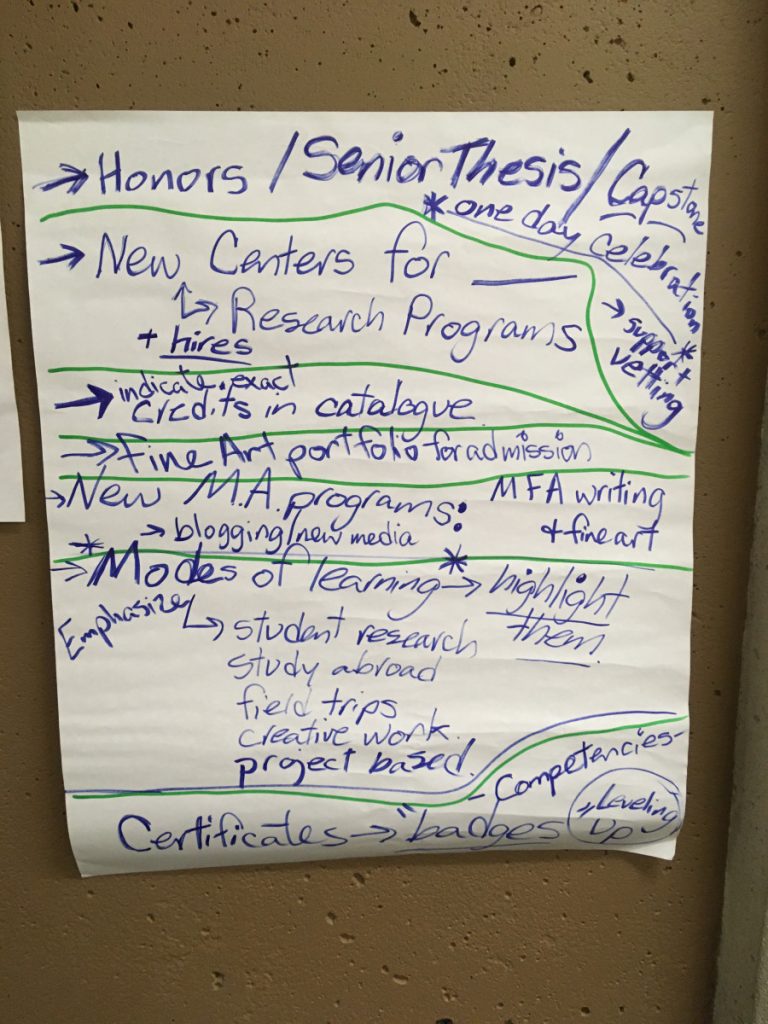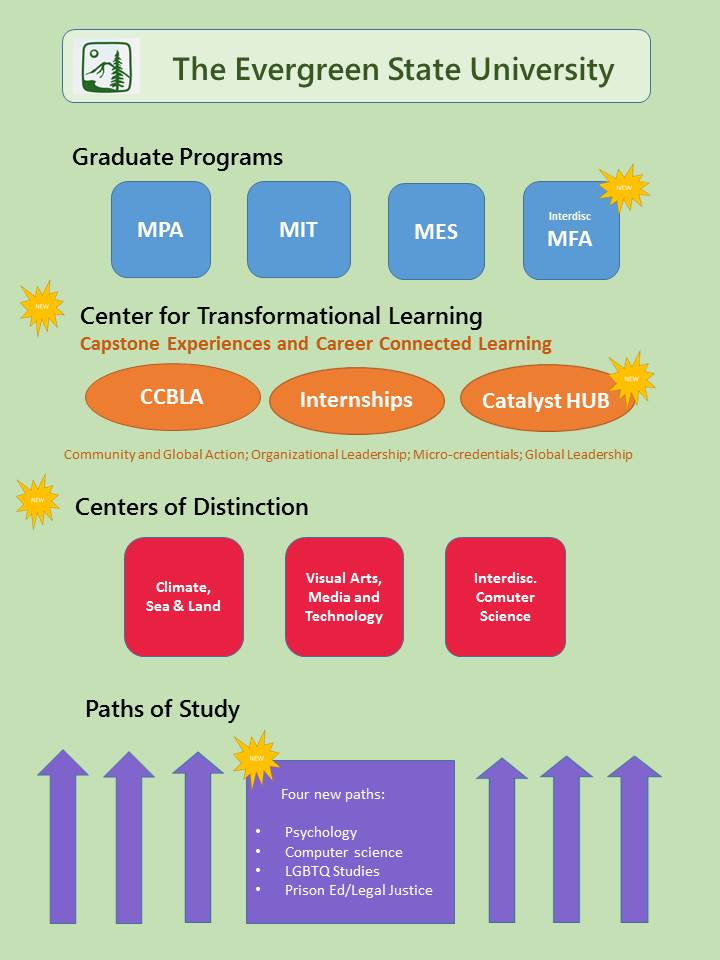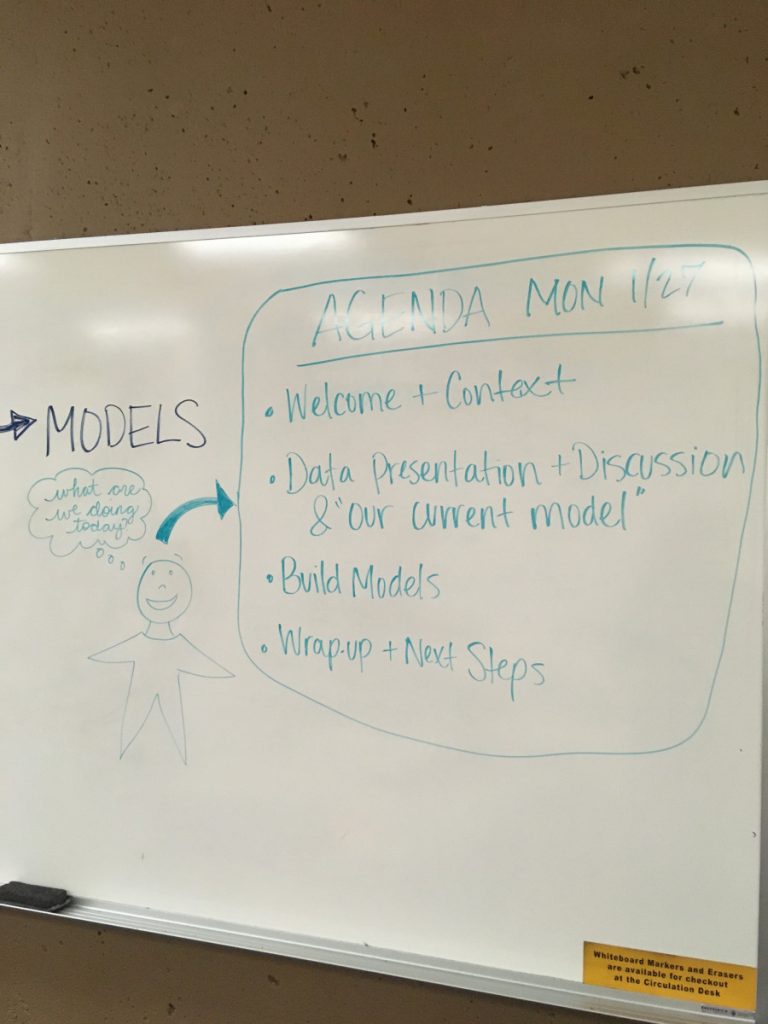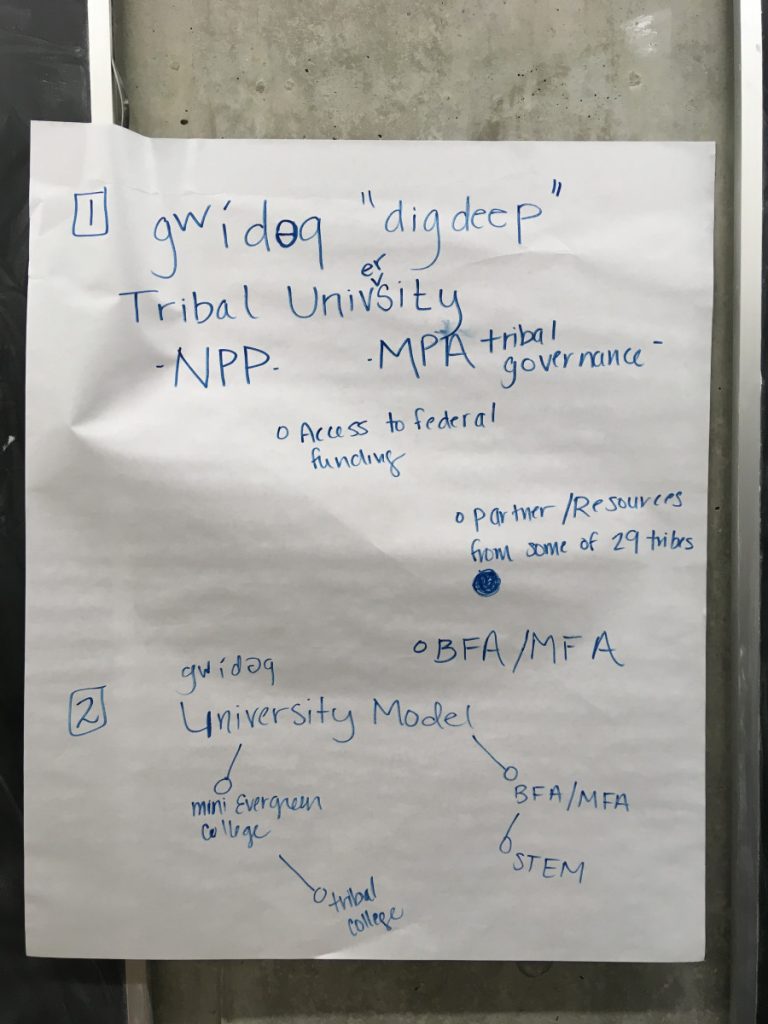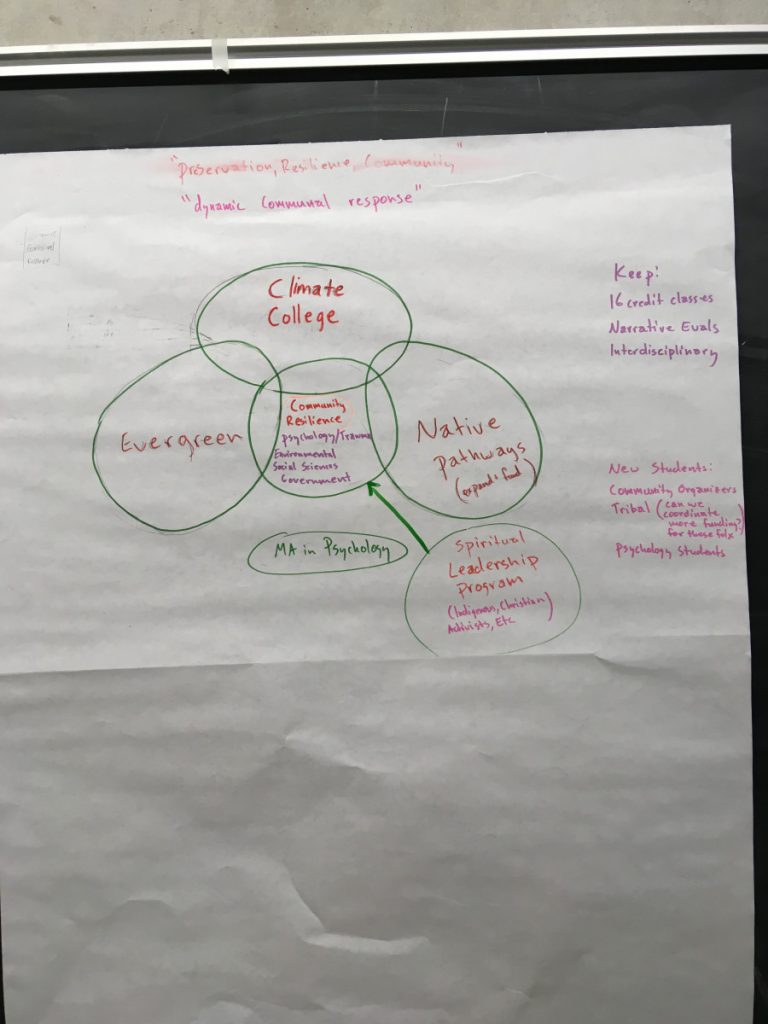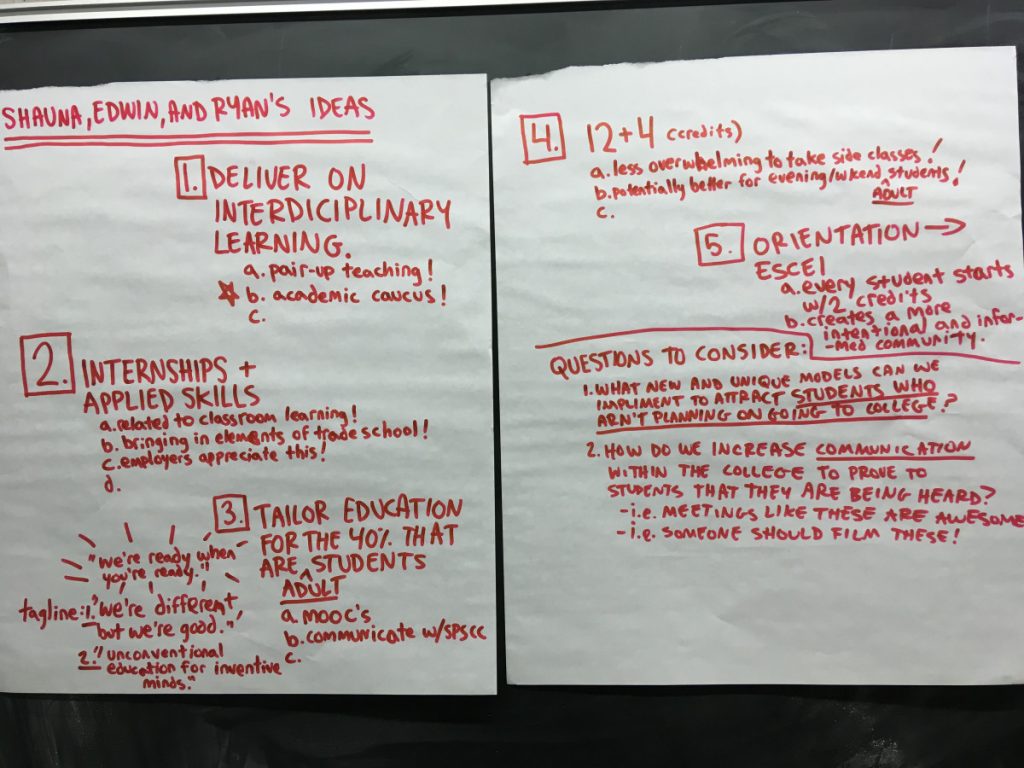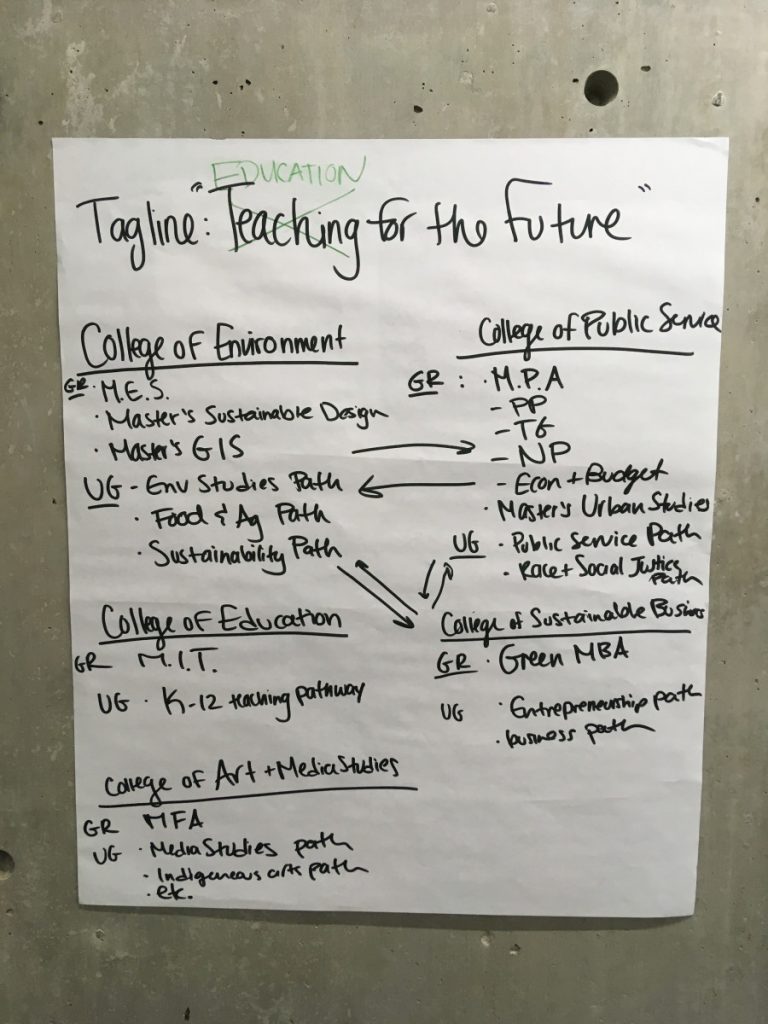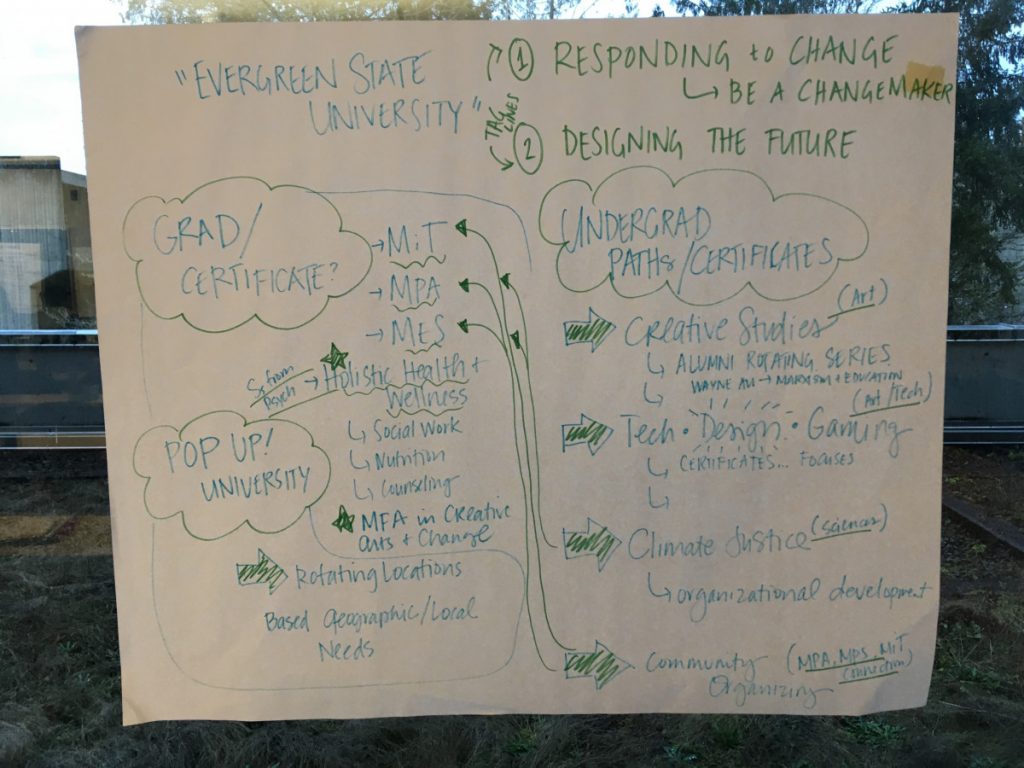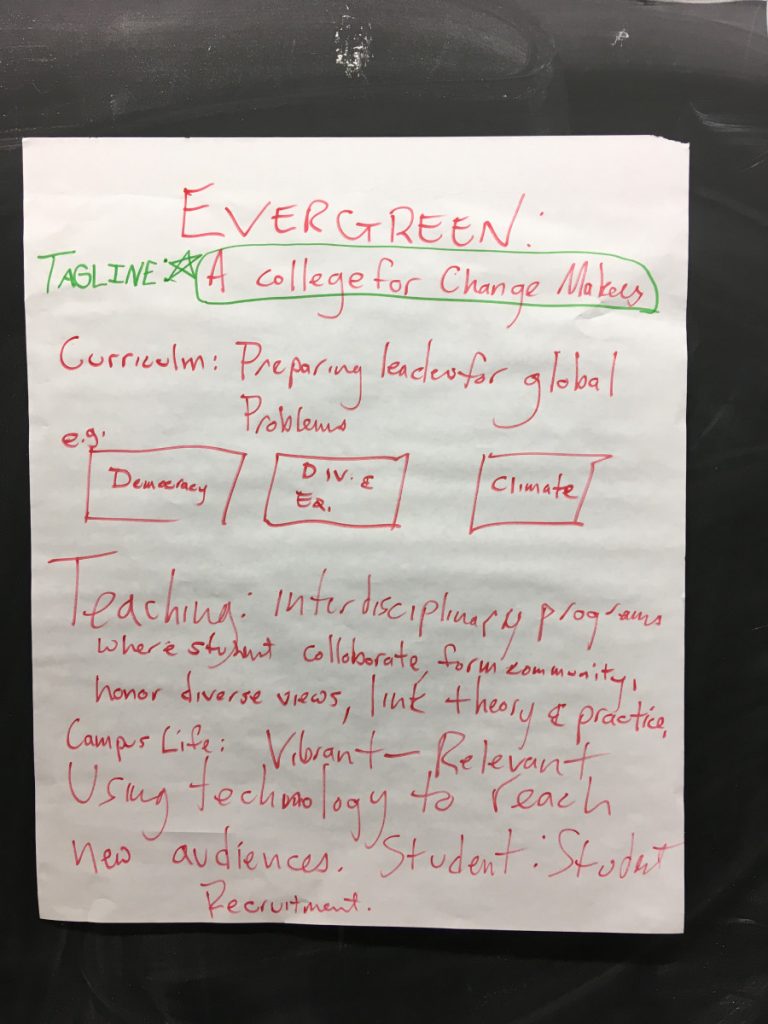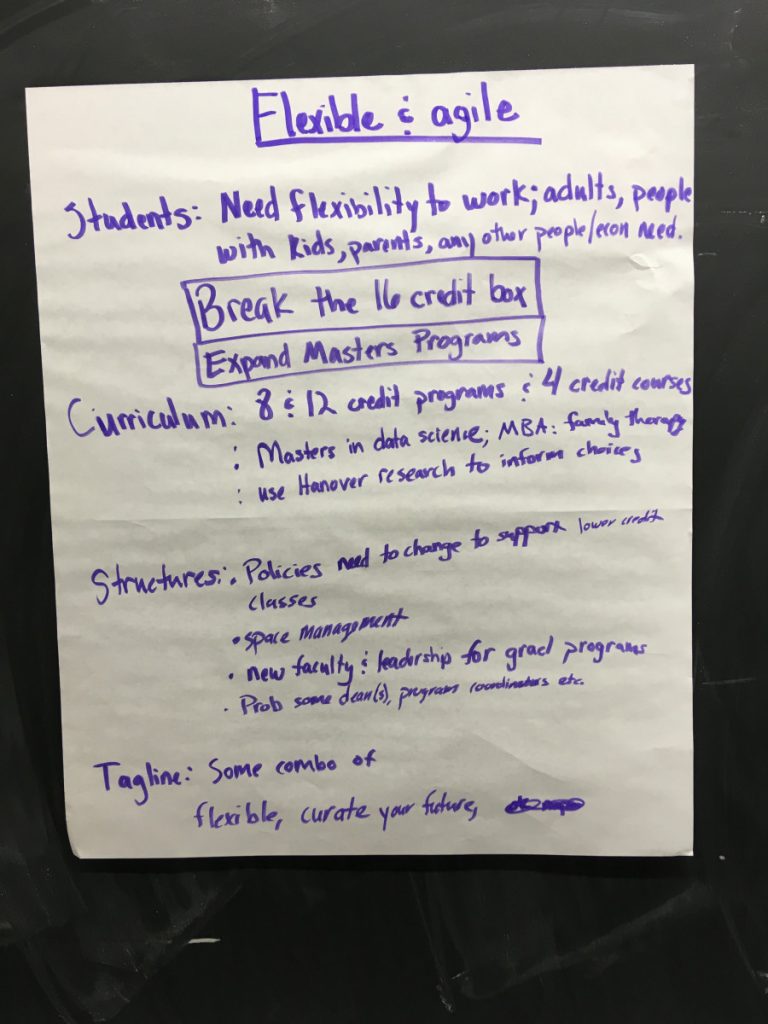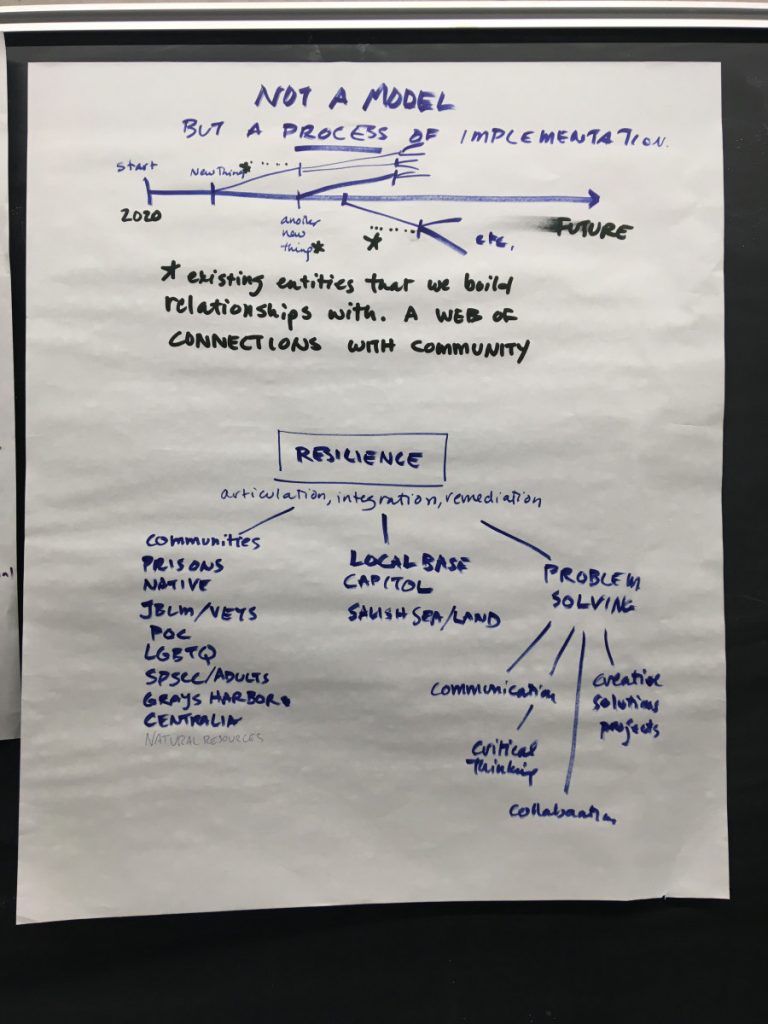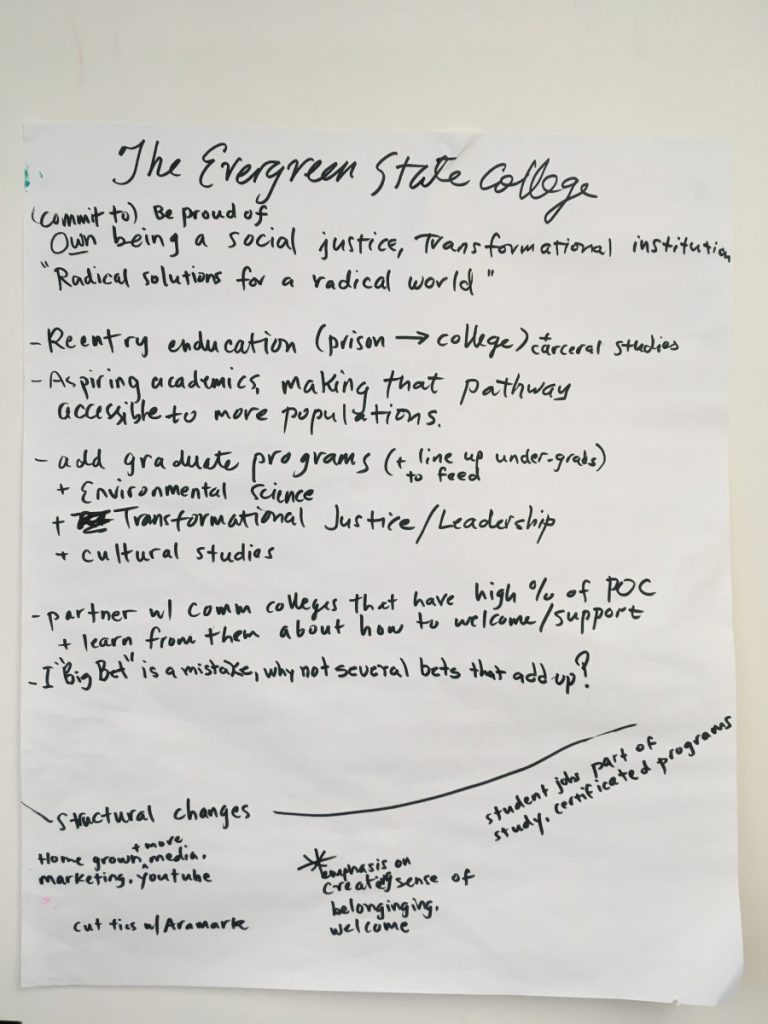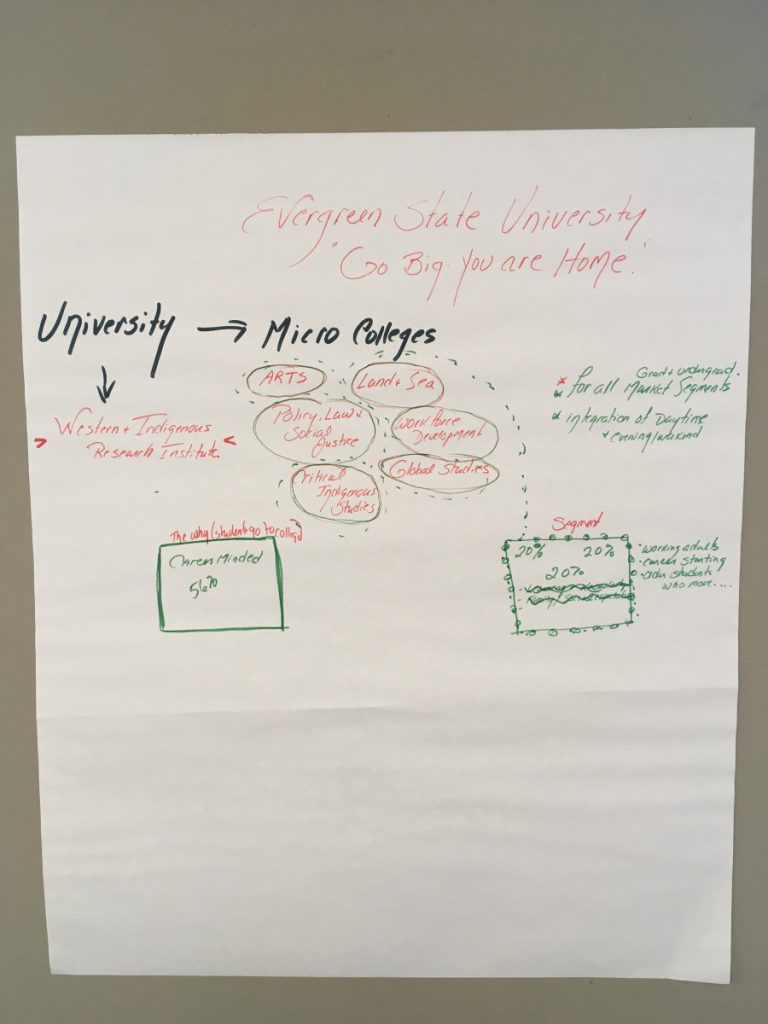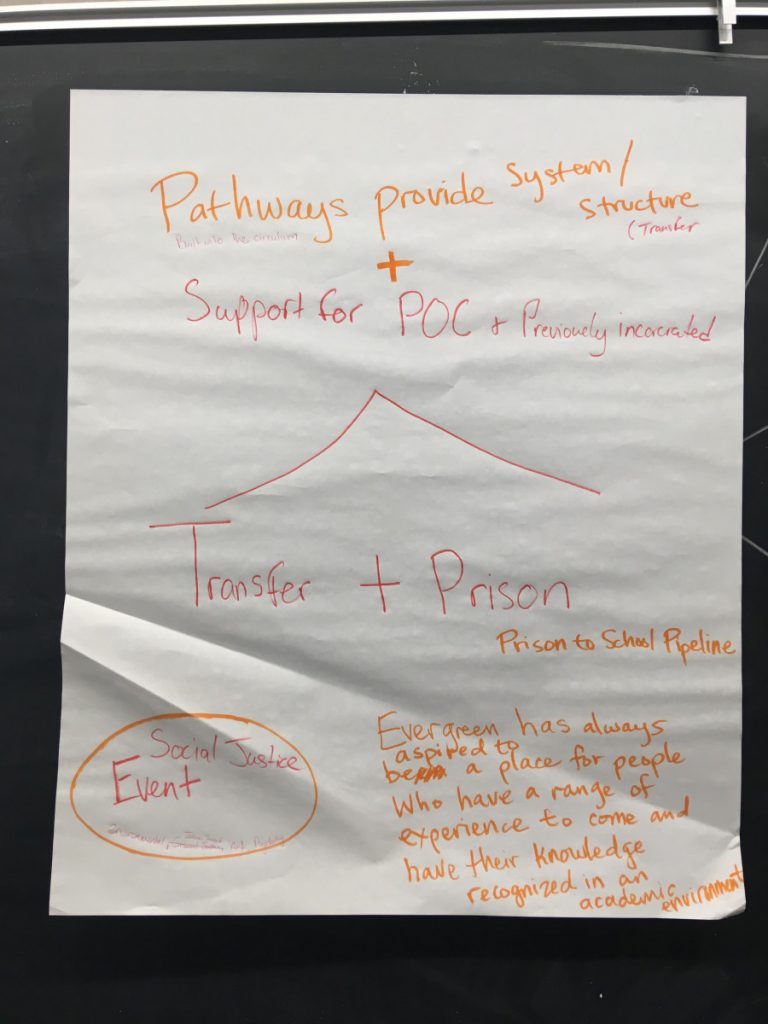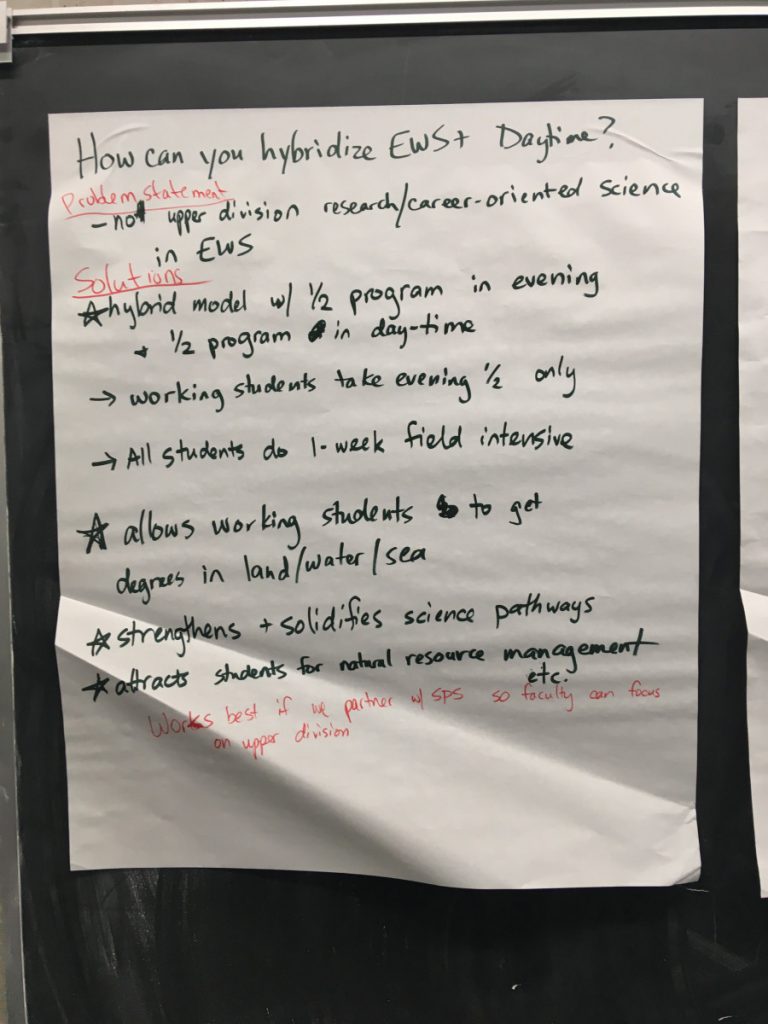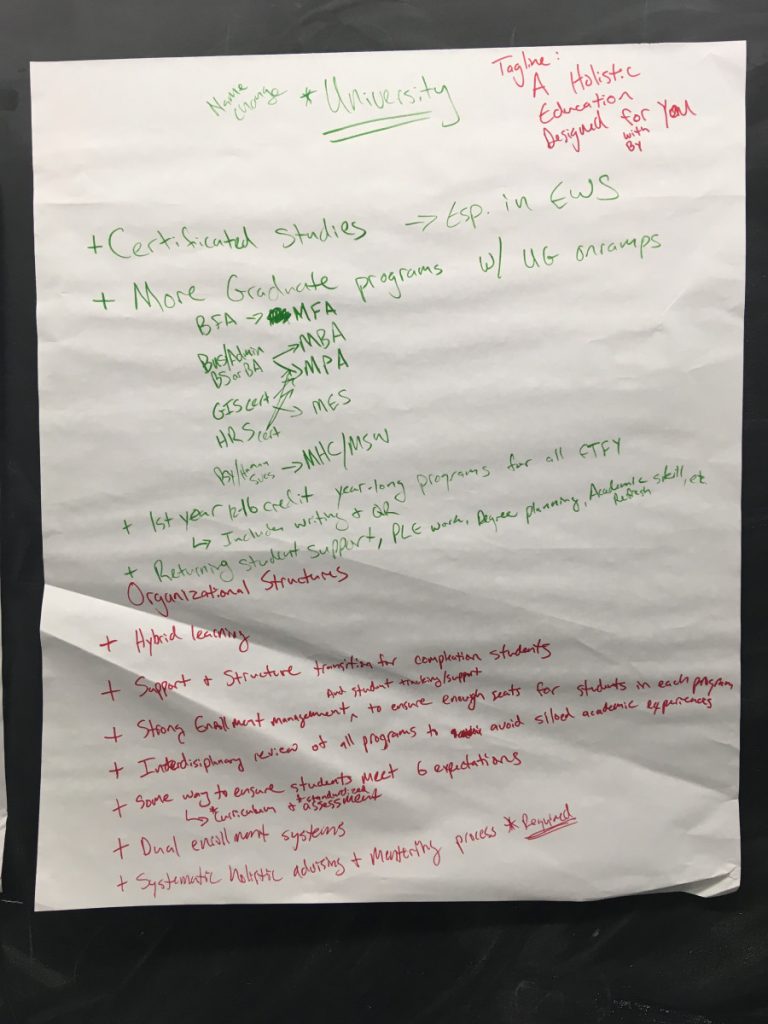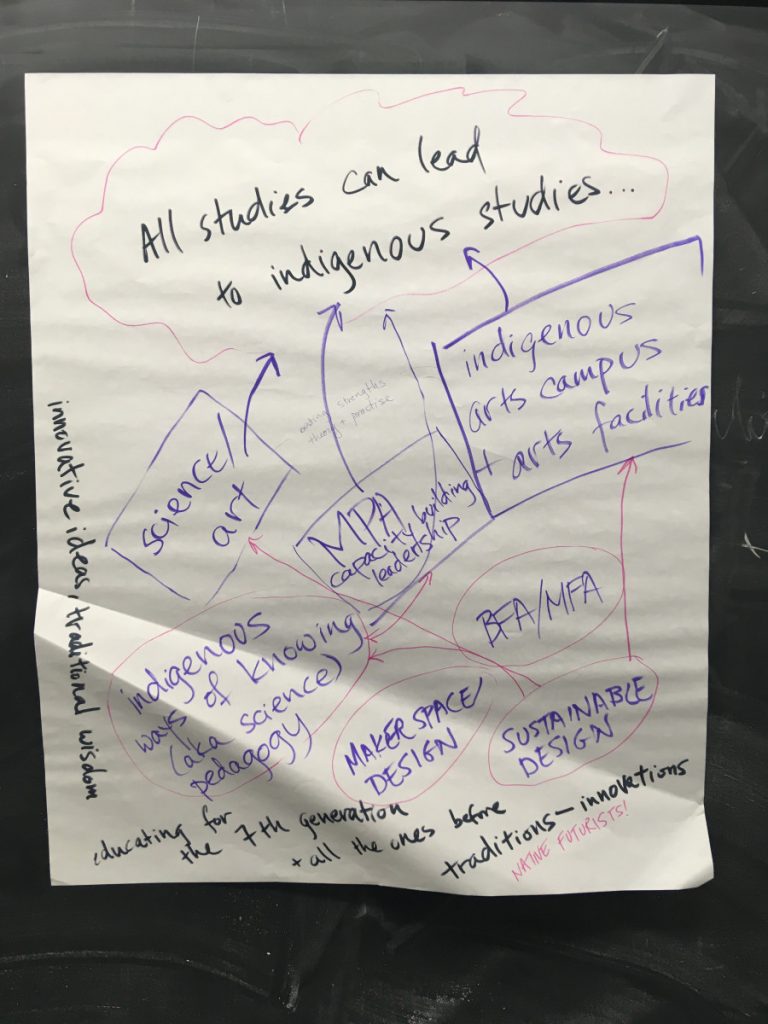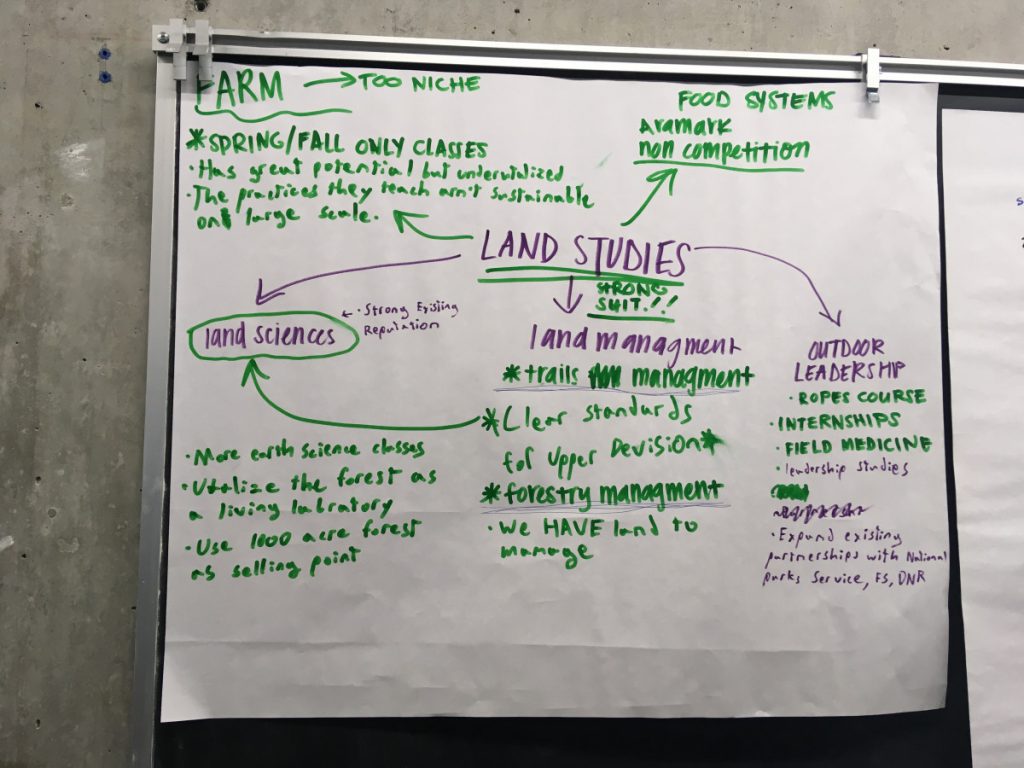For accurate and up-to-date information about COVID-19 and how it impacts Evergreen as a whole, please visit https://www.evergreen.edu/covid19
From my remote office (read: dining room table) to yours, greetings in the midst of a strange mid-March!
I’ll start by thanking each of you for your continued commitment to our students and campus community right now. I don’t think it can be said enough that we are all in this together. I have been moved by my colleagues’ thoughtful responses and impressed by our collective creativity in the face of emergent needs.
I’m sure the number one question on all of your minds right now is this: What’s happening with big bets?!?! (amiright?)
Here’s what’s new:
- All members of the Coordinating Group have been invited to join the Big Bets Slack channel! If you have Slack questions (like what the heck is Slack?), please let me know. I’m no expert, but I am a millennial, so I’ll see what I can do. ❤
- Slack is a way for us to visit quickly and in real time, share documents in one place, and keep track of all conversations.
- All upcoming Coordinating Group meetings will be held remotely for the foreseeable future. I created Zoom meetingsfor our upcoming meetings and sent out the Zoom instructions in the Outlook calendar invitations you should have already received. Questions about that? Let me know! ?
- I’m working on a Canvas site for the Big Bets process. (God bless Canvas.) I’ll send information out about that once I have it landed, and I hope that will be a central space for us to all check in about this work.
- NEXT STEPS: The meeting we had set for today (3/18/20) got cancelled. Instead, we have asked a small group of colleagues to work on aggregating models (which we mentioned in an email last week, before we all started trying to #flattenthecurve). Those models will be ready for presentation on Wed 3/25, at which time I’ll (hopefully!) post them to our Canvas site. I am working with a handful of folks to put together asynchronouswork that can be done between next Wednesday (3/25) and our next official meeting on Tues, 3/31 (remotely). At that Tuesday, 3/31, meeting, we’ll visit synchronously about where we’re at in the process, we’ll (hopefully!) make model recommendations for feasibility studies, and we’ll take stock of the situation.
- Here’s a recap on our timeline:
- Wednesday, March 25: models aggregated and up on the (forthcoming) Canvas site
- Request that Coordinating Group members engage in asynchronous work remotely via Canvas (and Slack and Zoom and and and…)
- Tuesday, March 31 is our next official Coordinating Group meeting (happening remotely via Zoom, instructions already in your email/calendar invitation)
- Into the future, and beyond! ? (ßit’s a rocket)
- Wednesday, March 25: models aggregated and up on the (forthcoming) Canvas site
- Lastly, while this is not expressly Big Bets related, I want to make sure all faculty are signed up for the remote teaching instruction sessions happening this week and next. I’m been working closely with the incredible team of computer and tech folks, as well as the WA Center, to support these trainings. THANK YOU for your willingness to meet the challenge of remote teaching head on!
Thank you, thank you, thank you!
Yours in handwashing and physical (but definitely not emotional!) distancing,
Emily
P.S. Allow me to proselytize about the importance of staying home?

